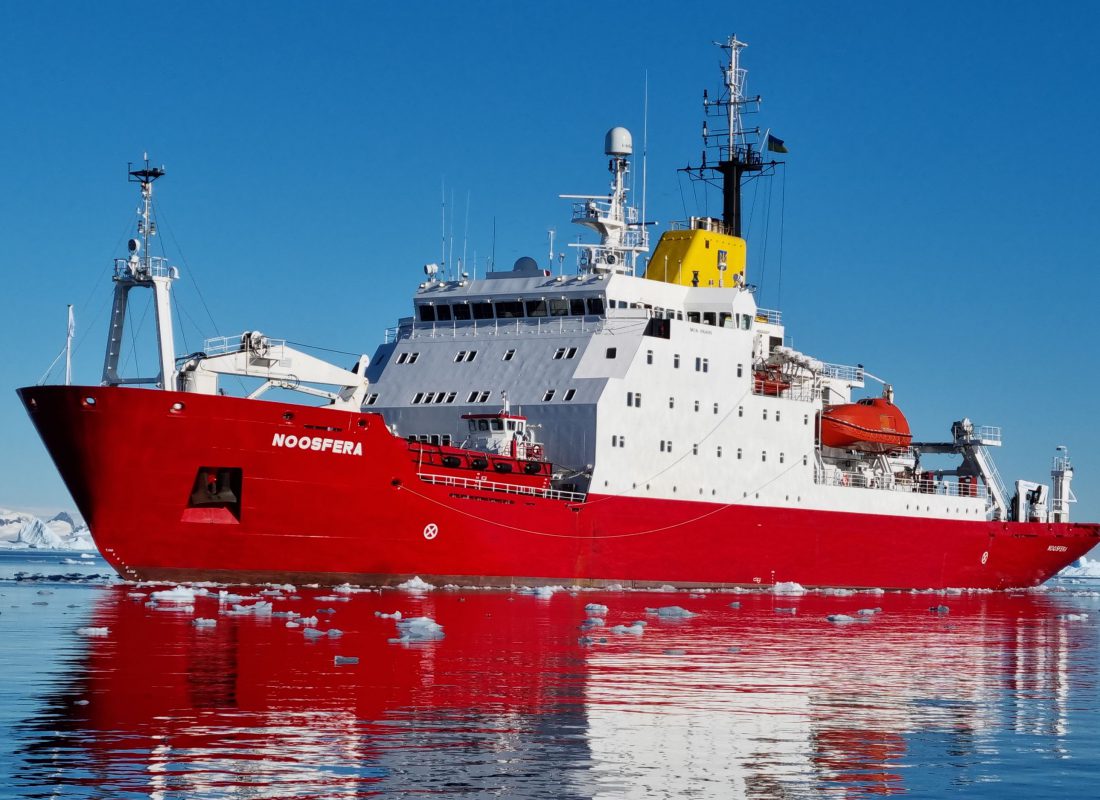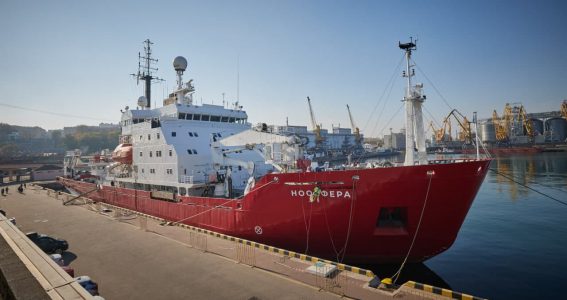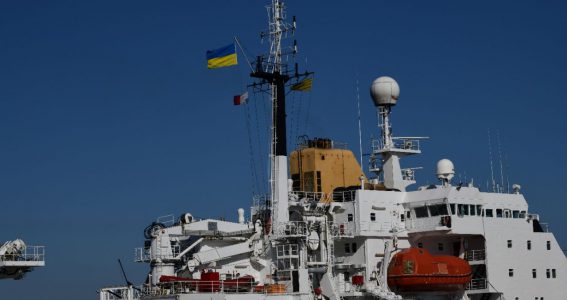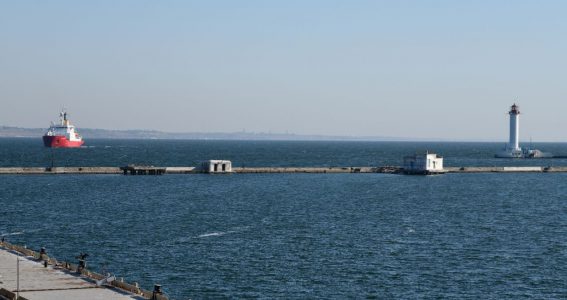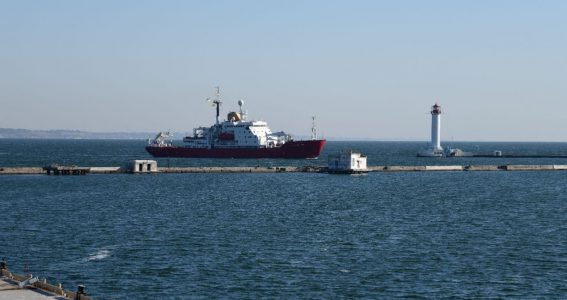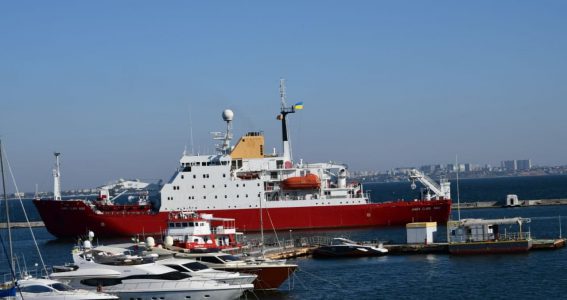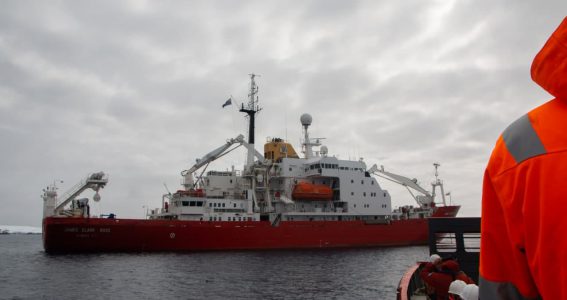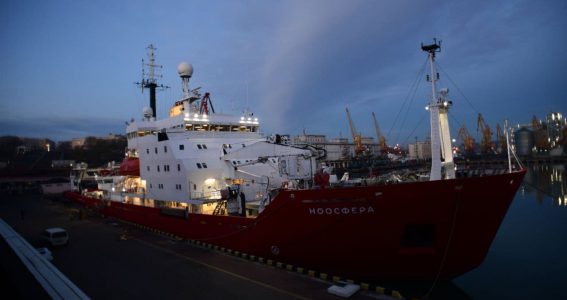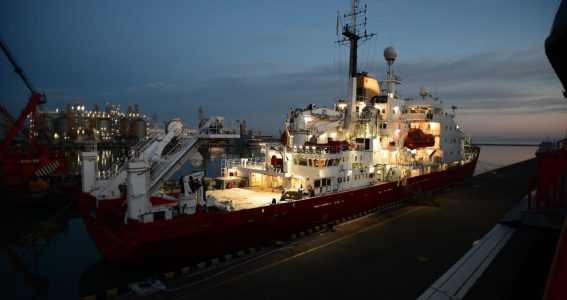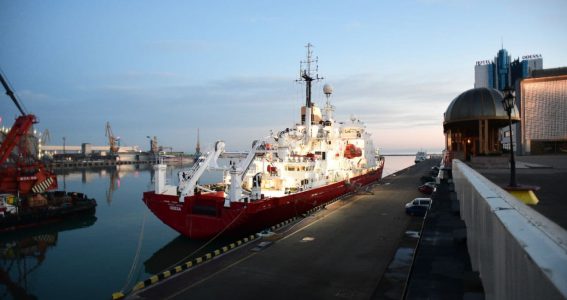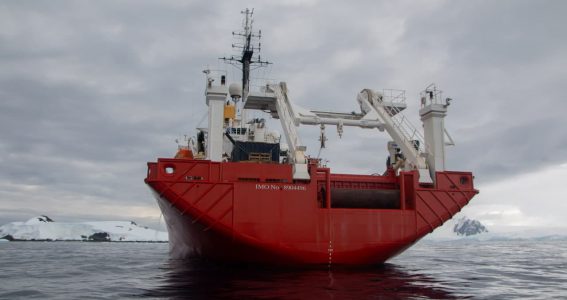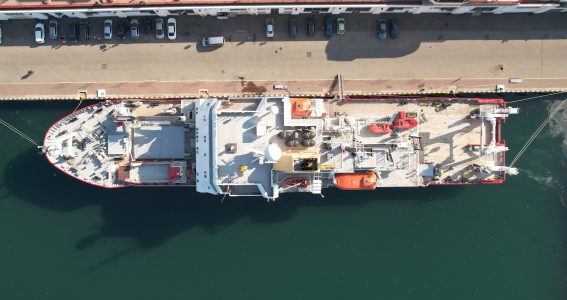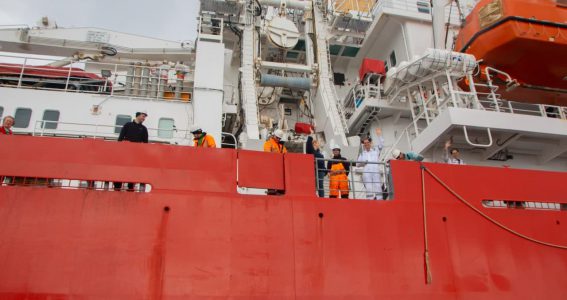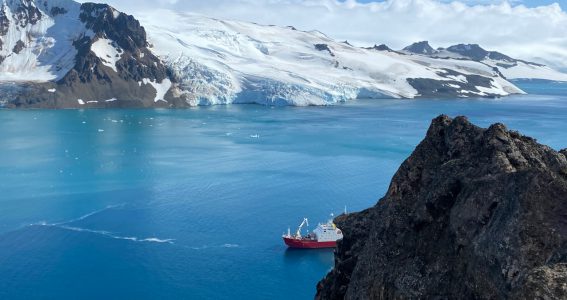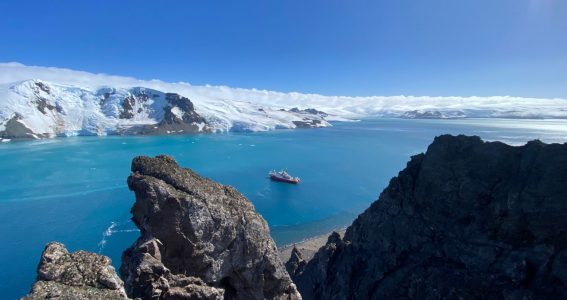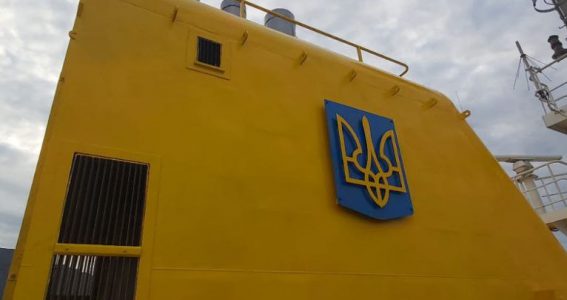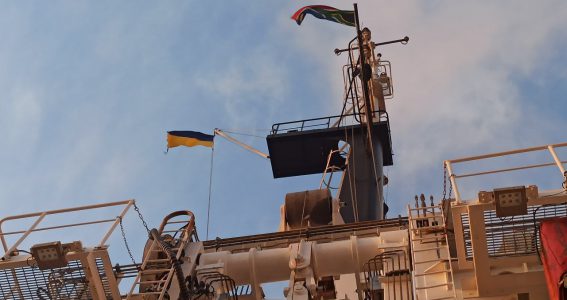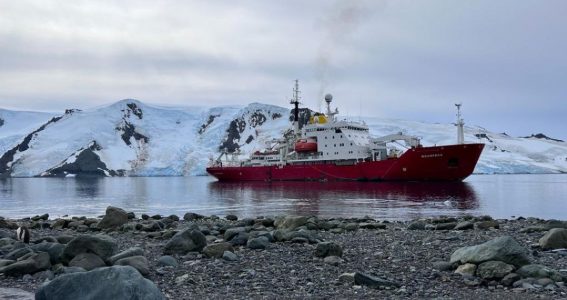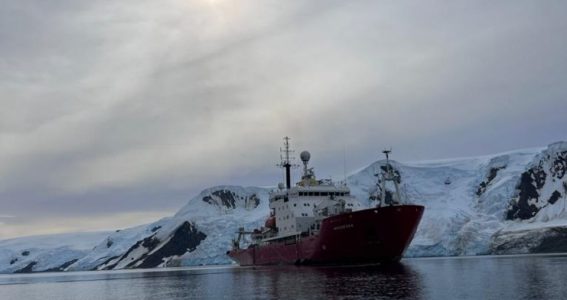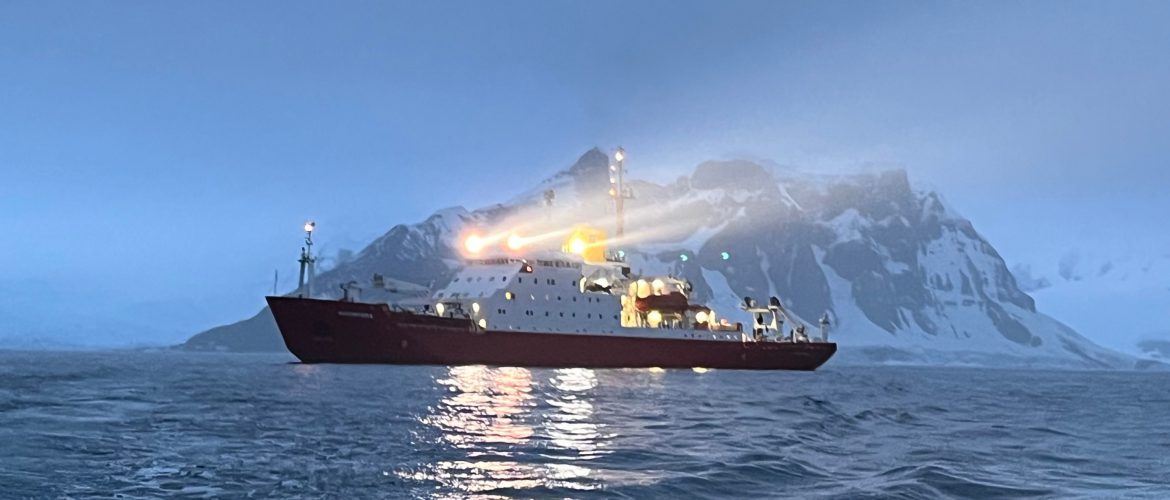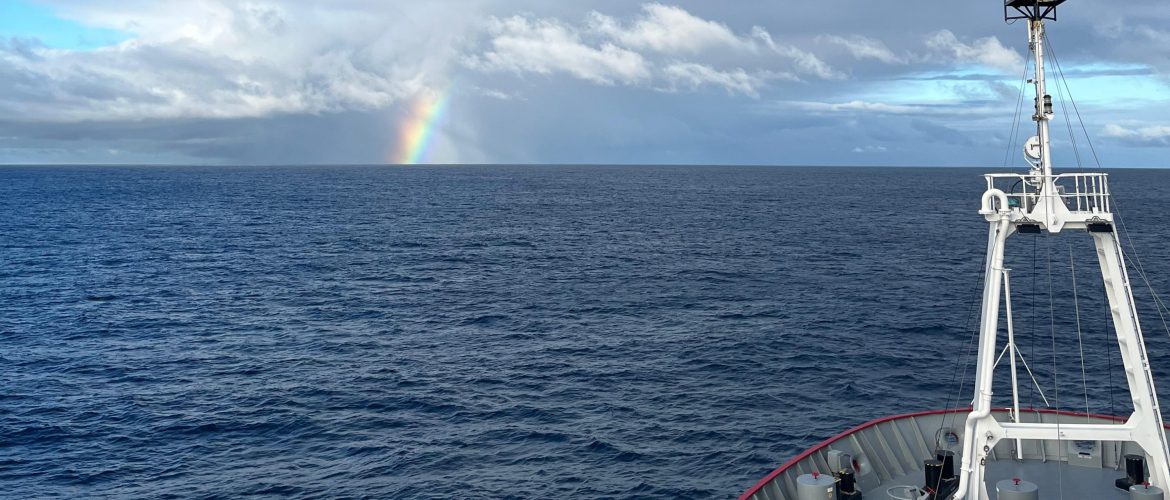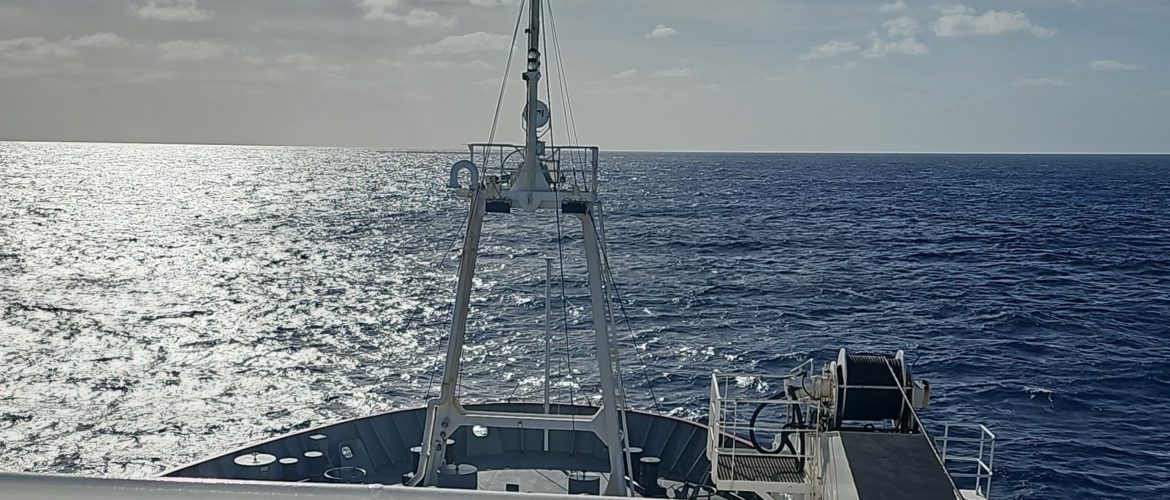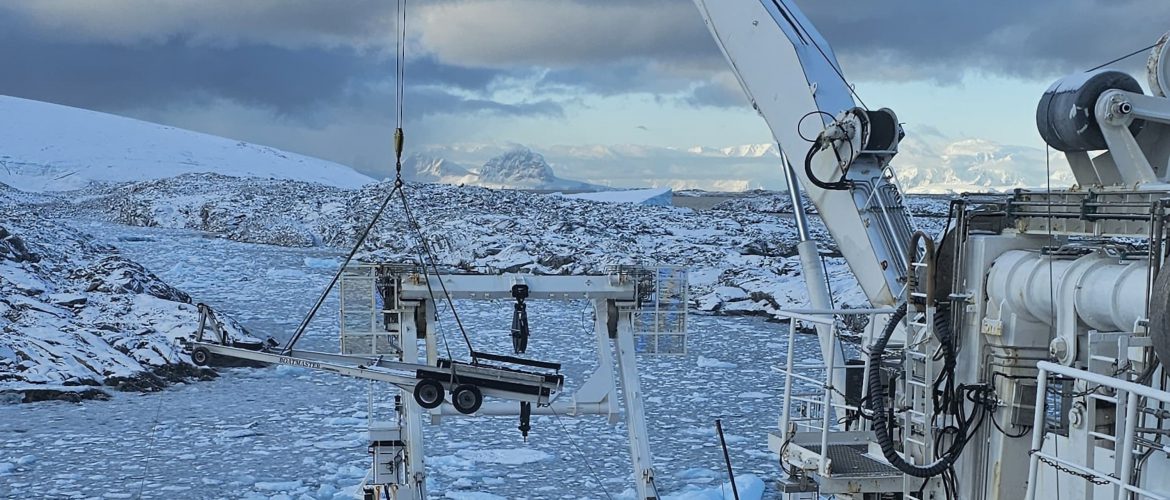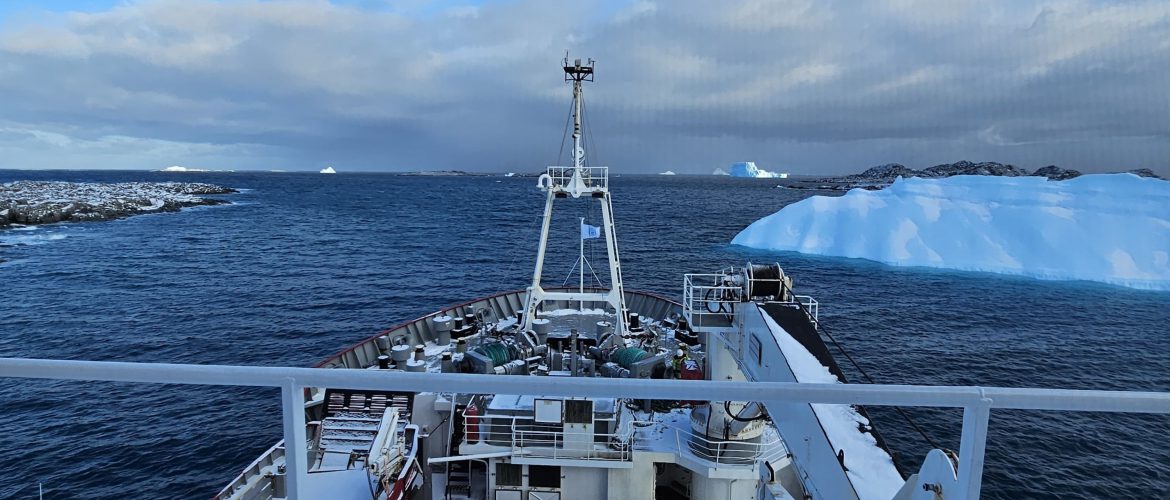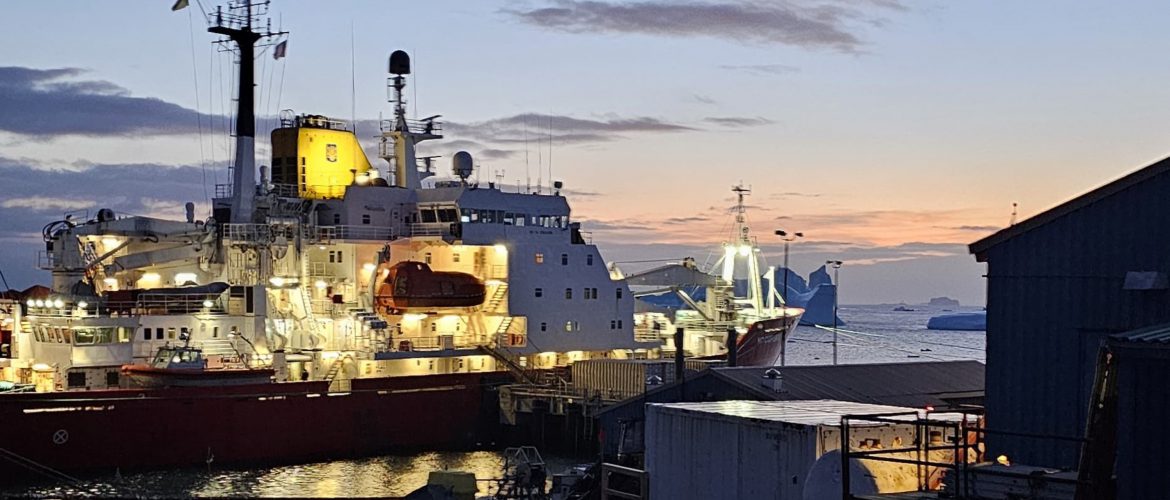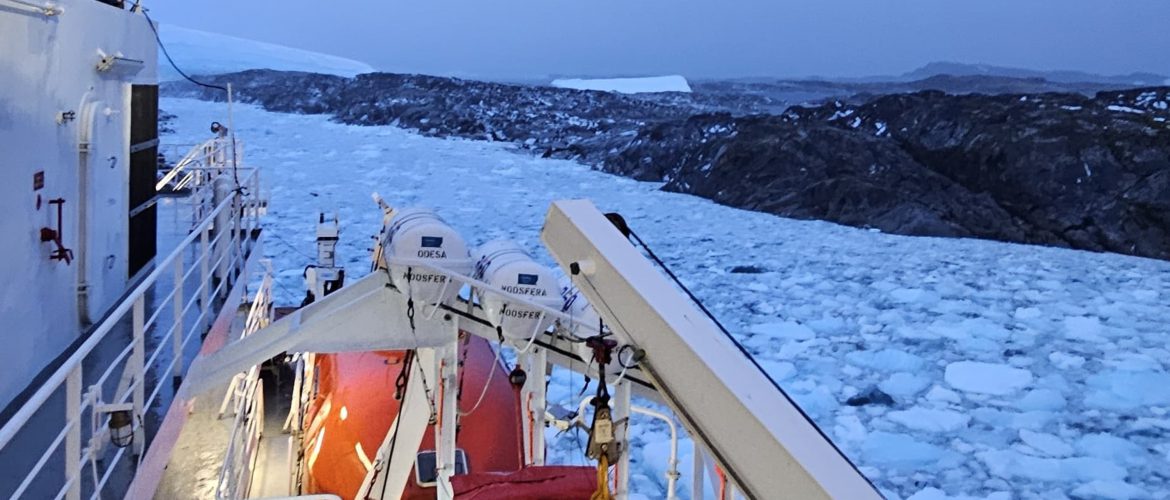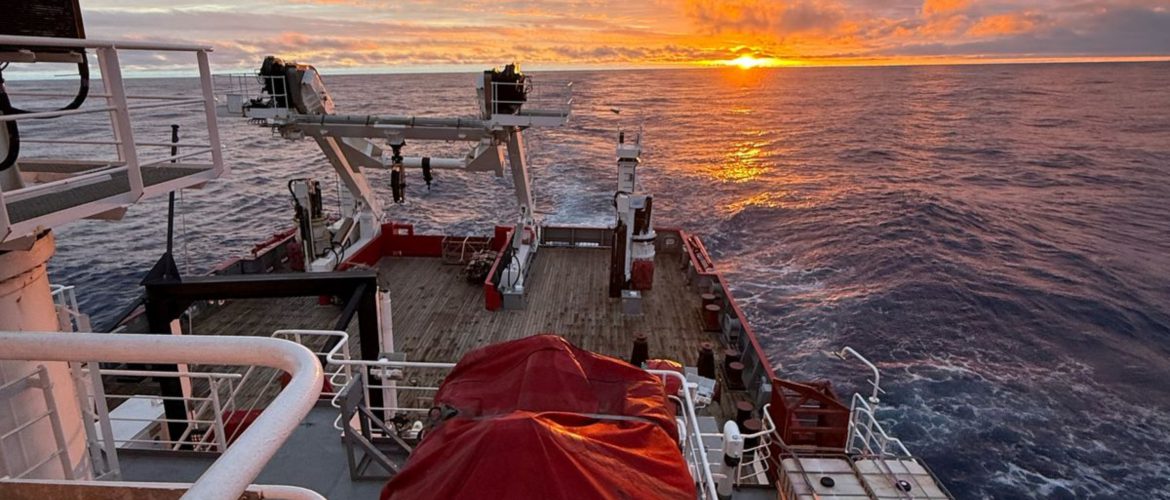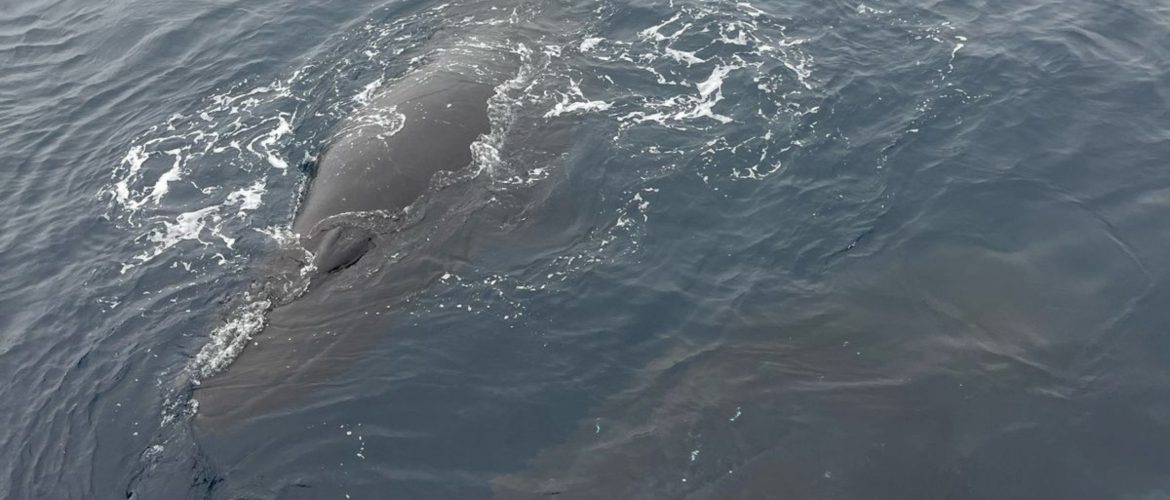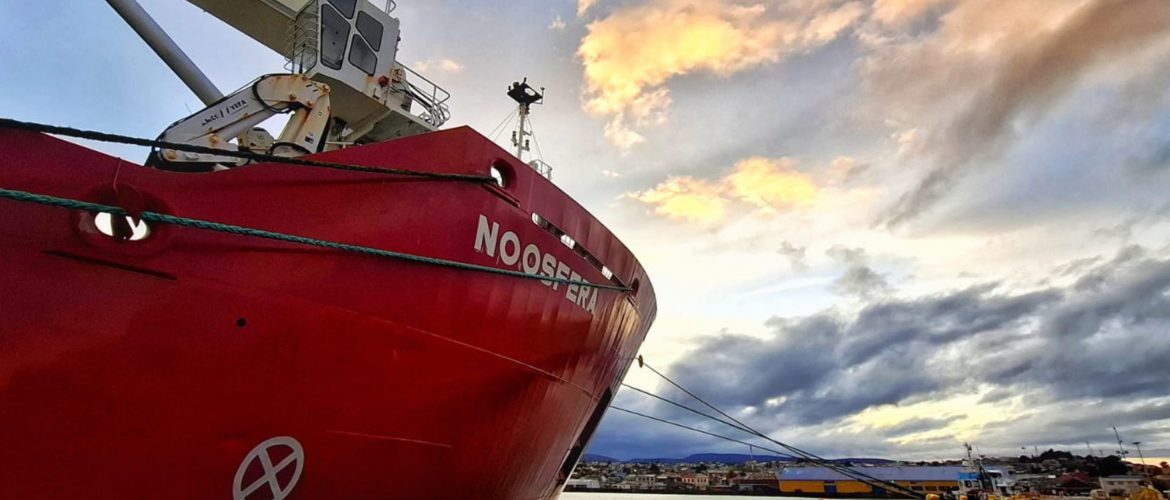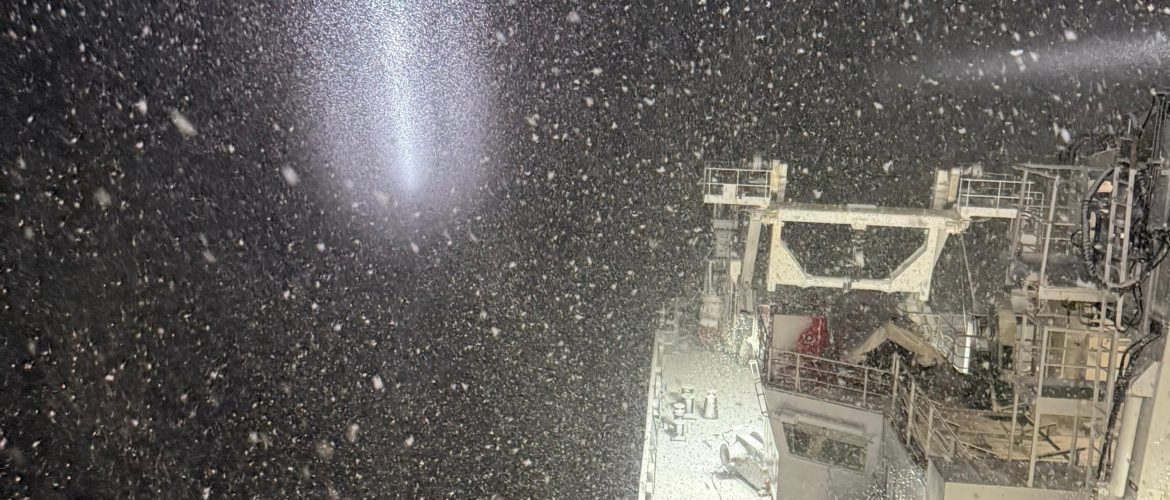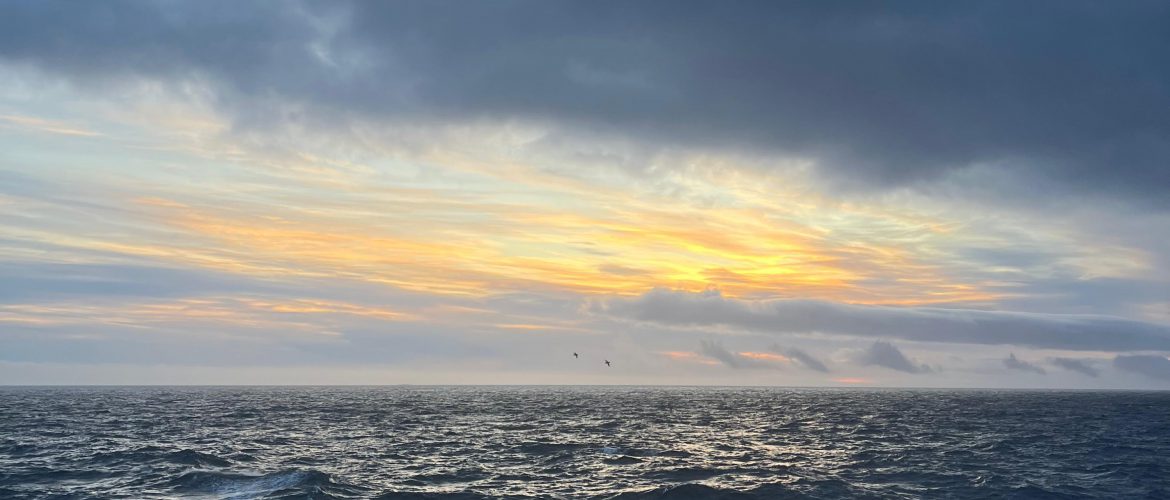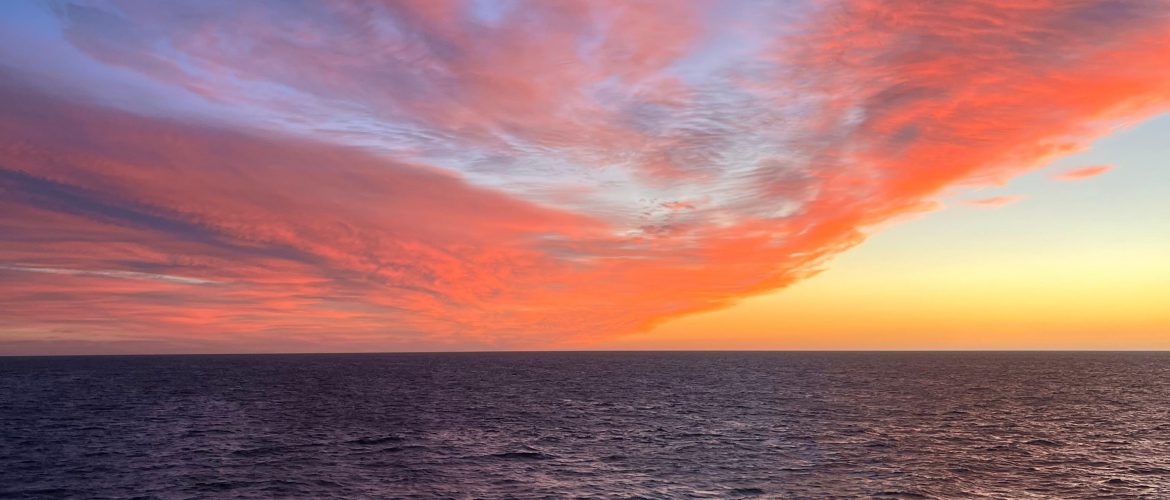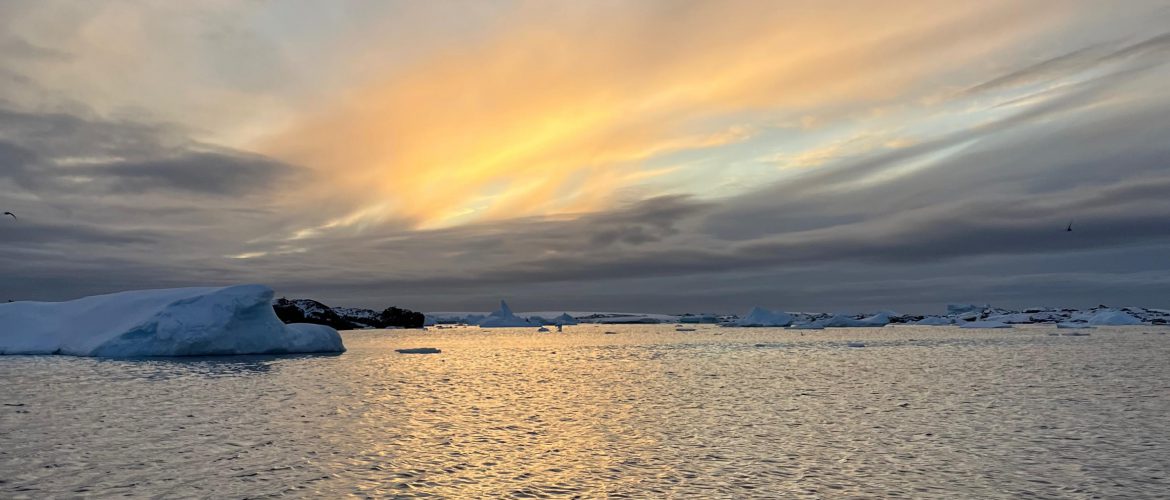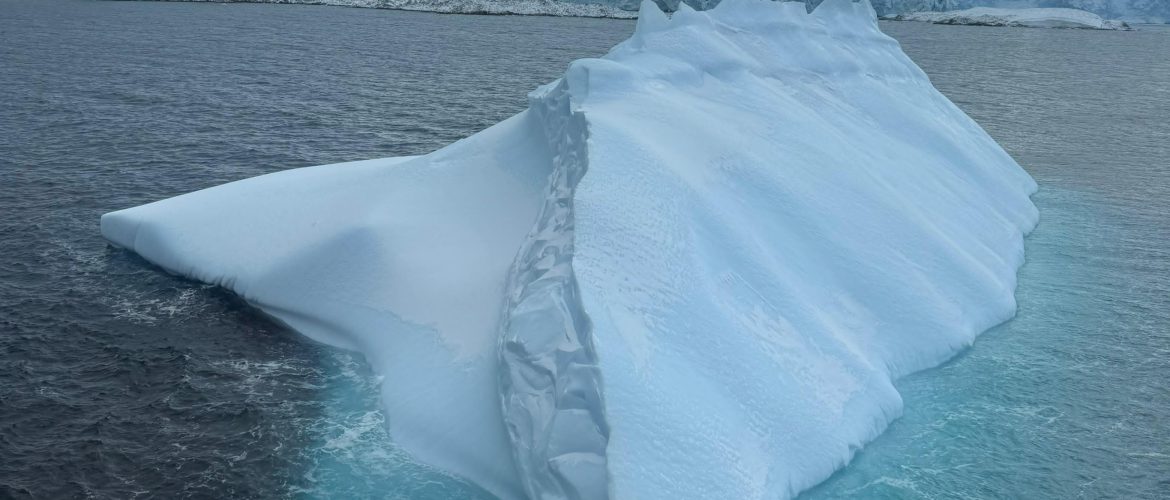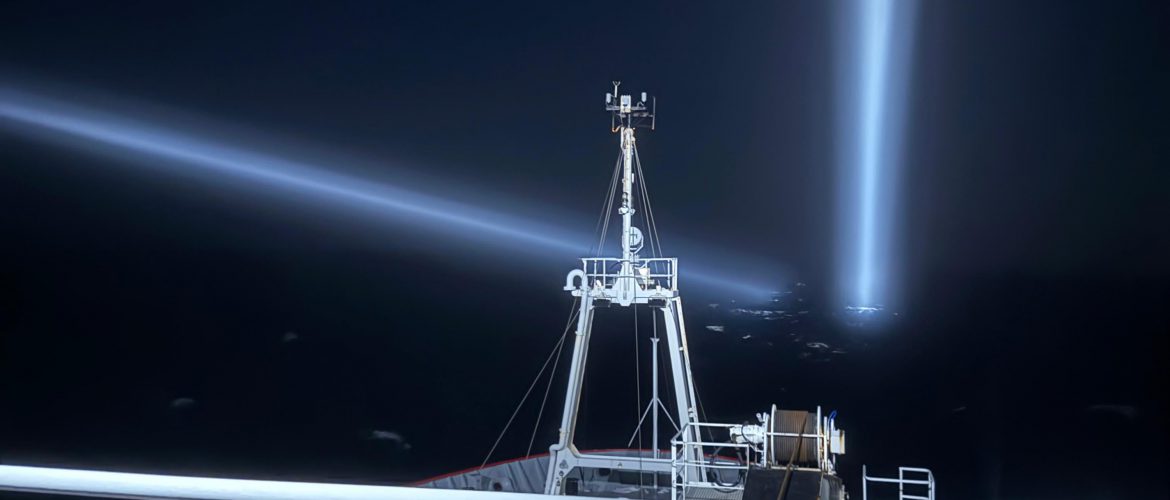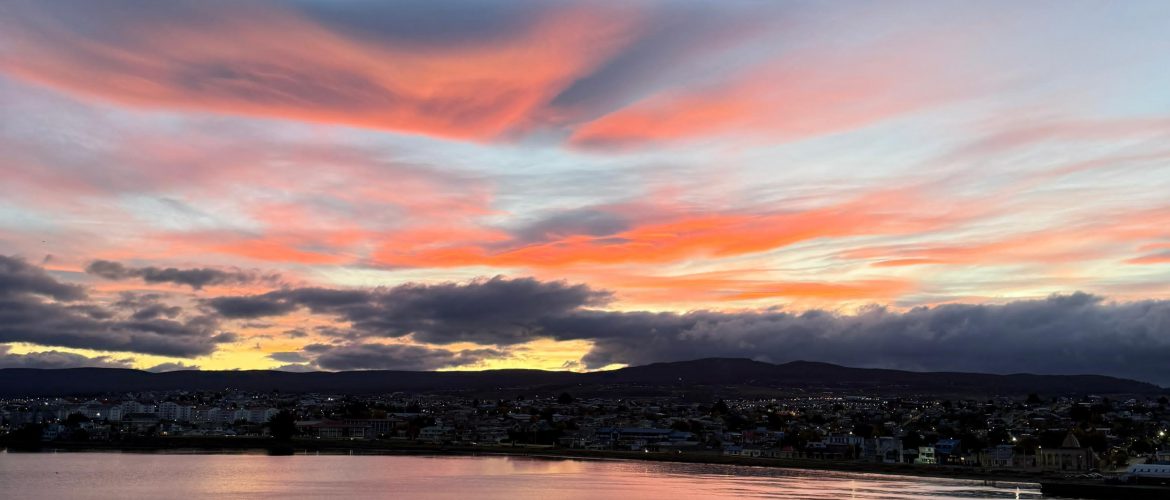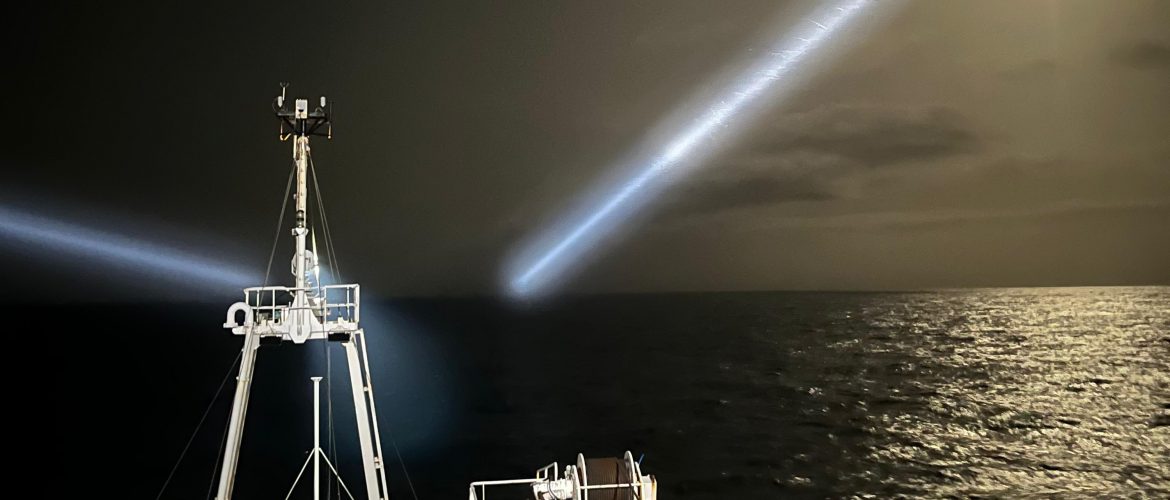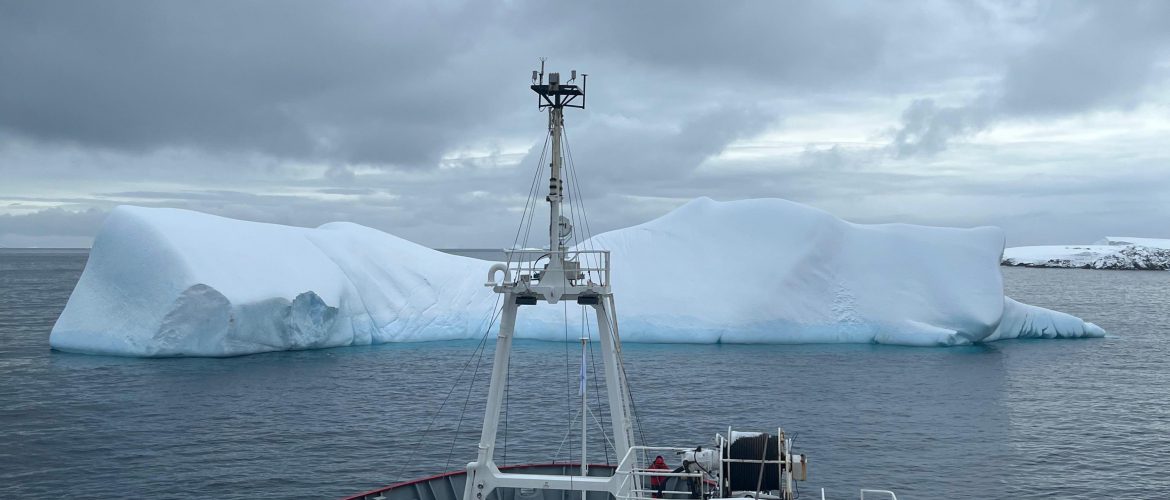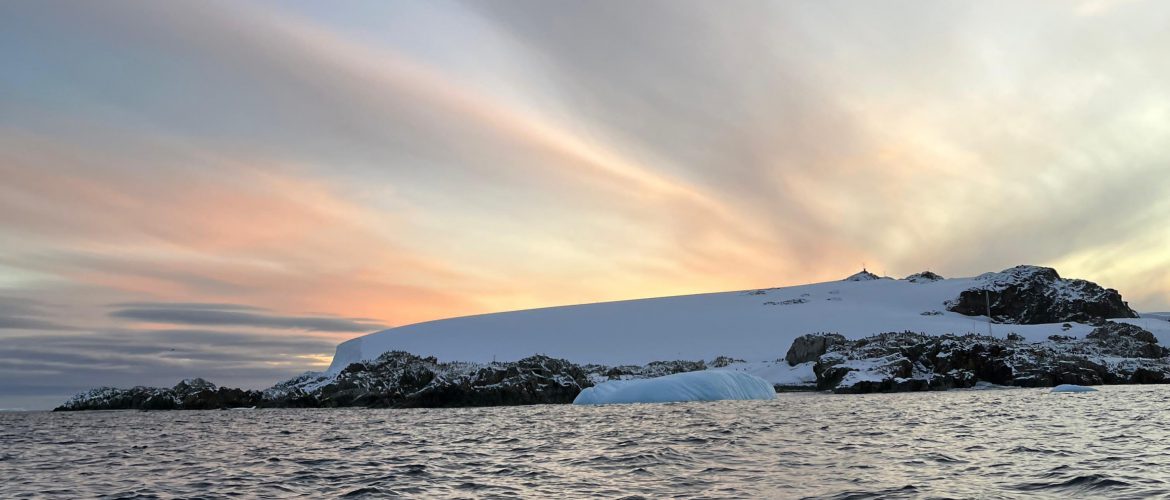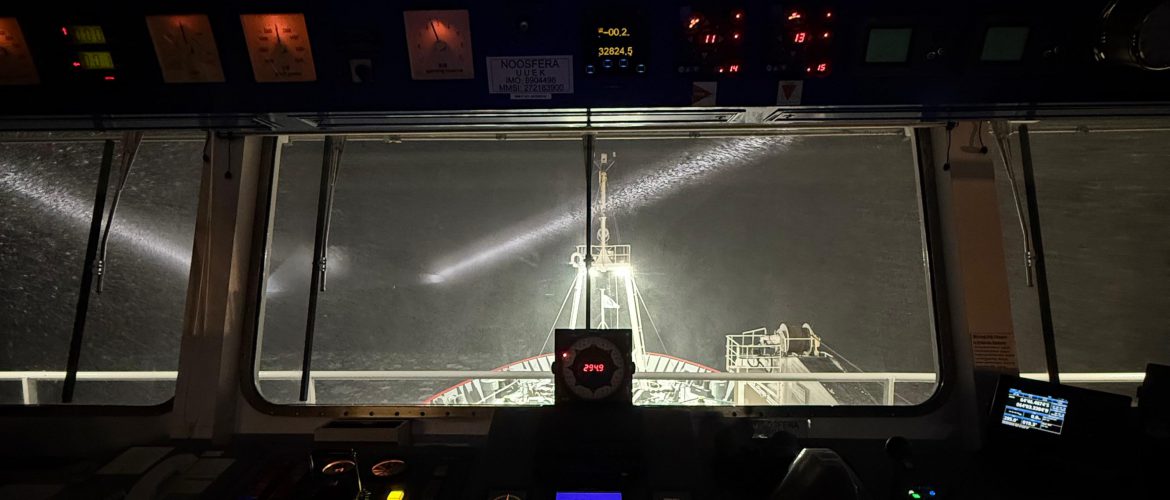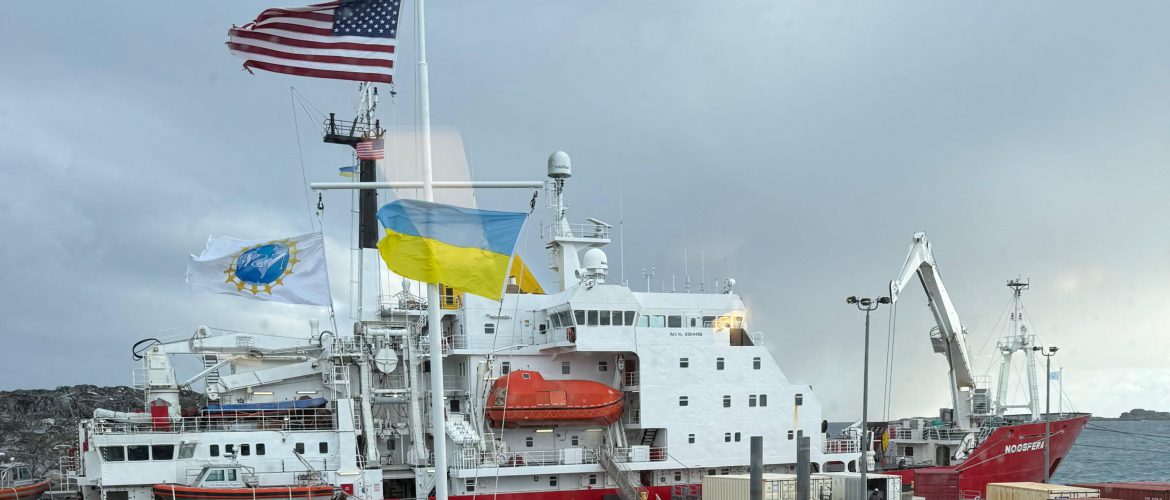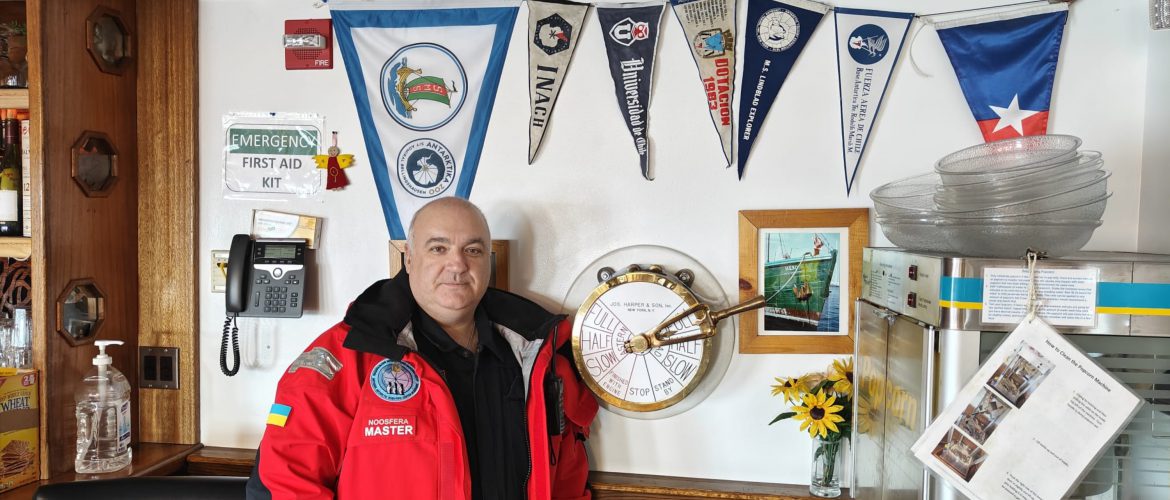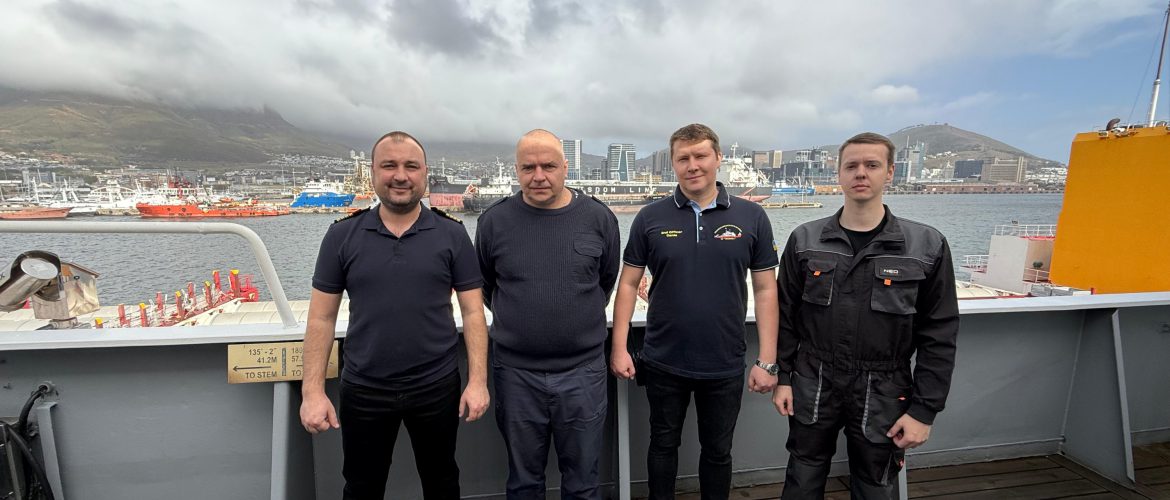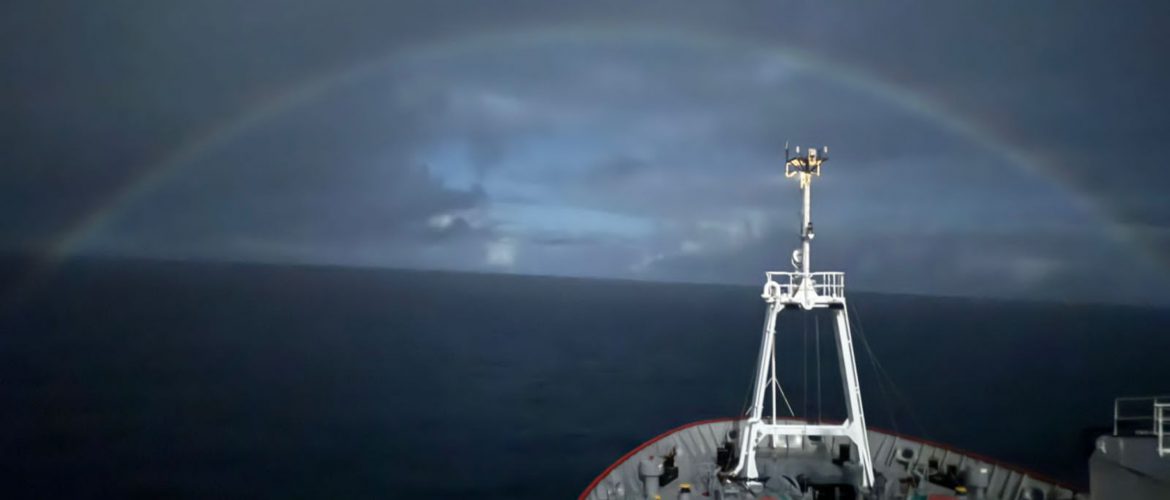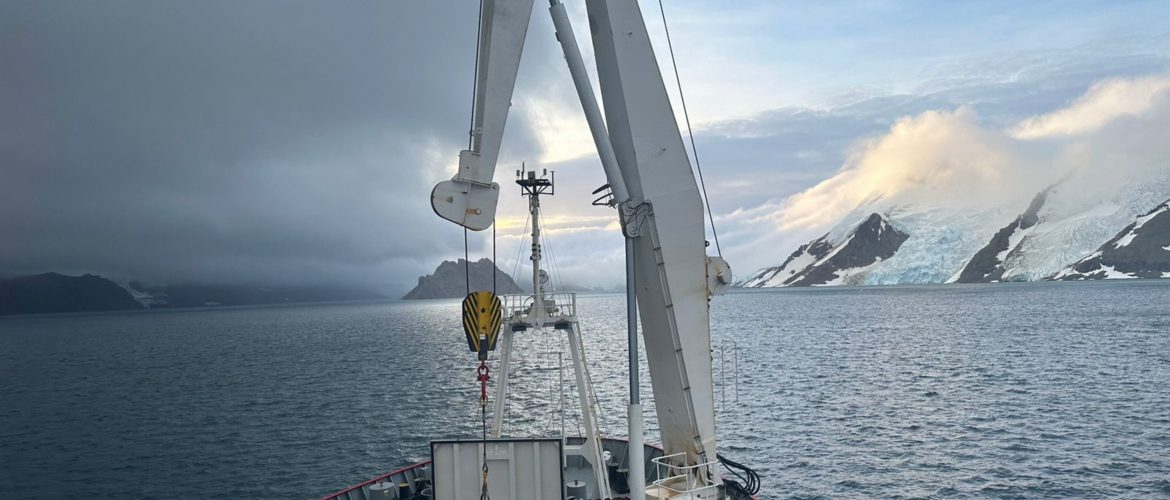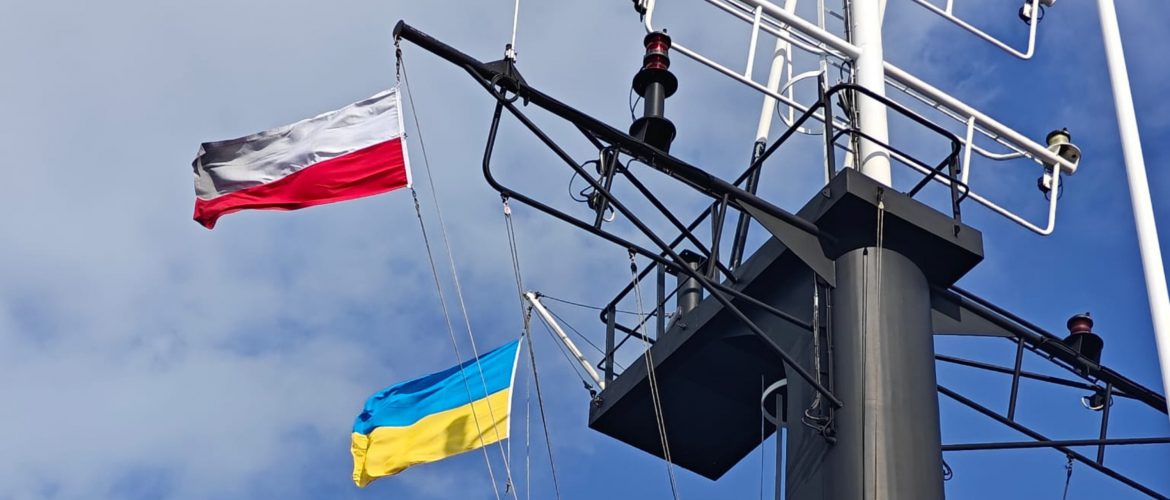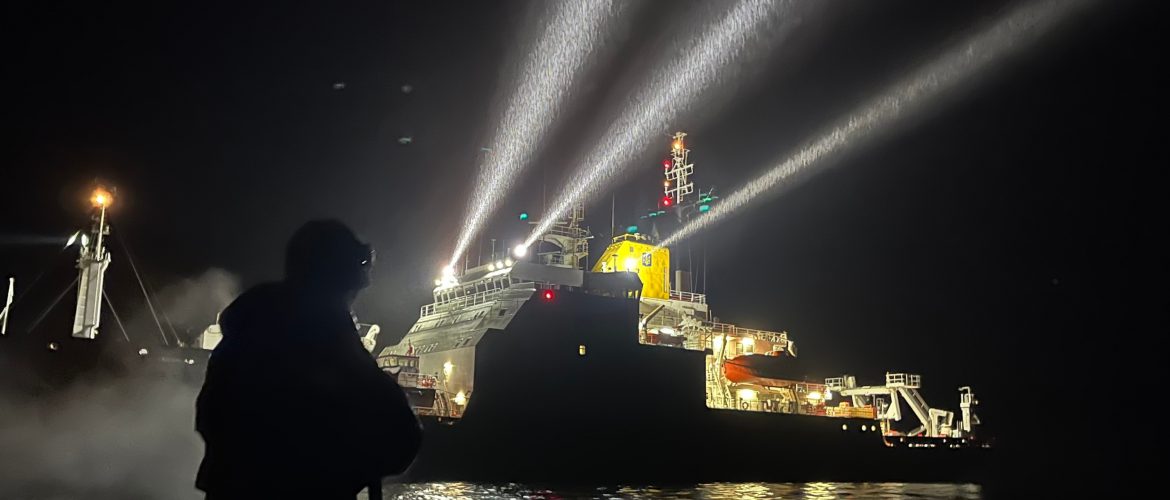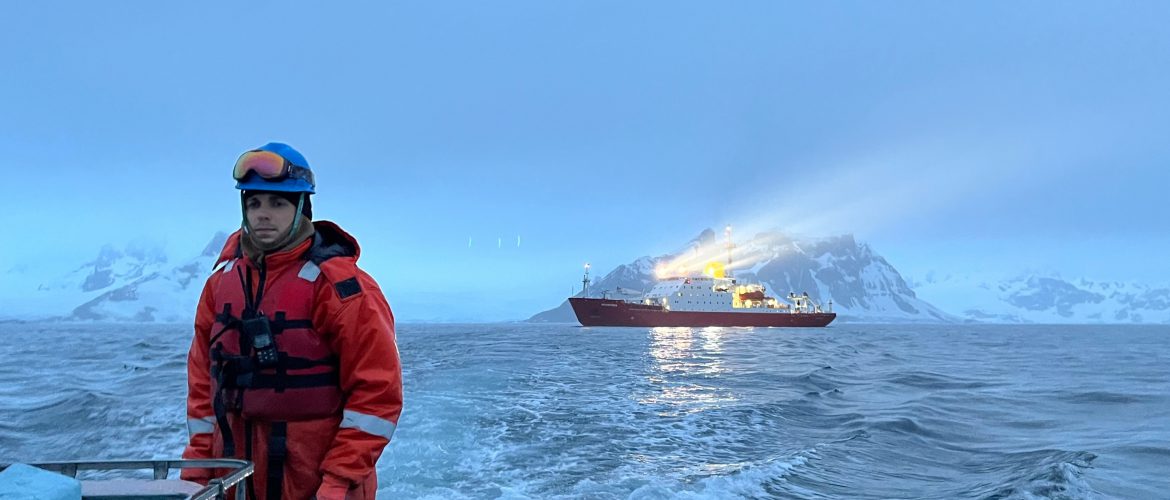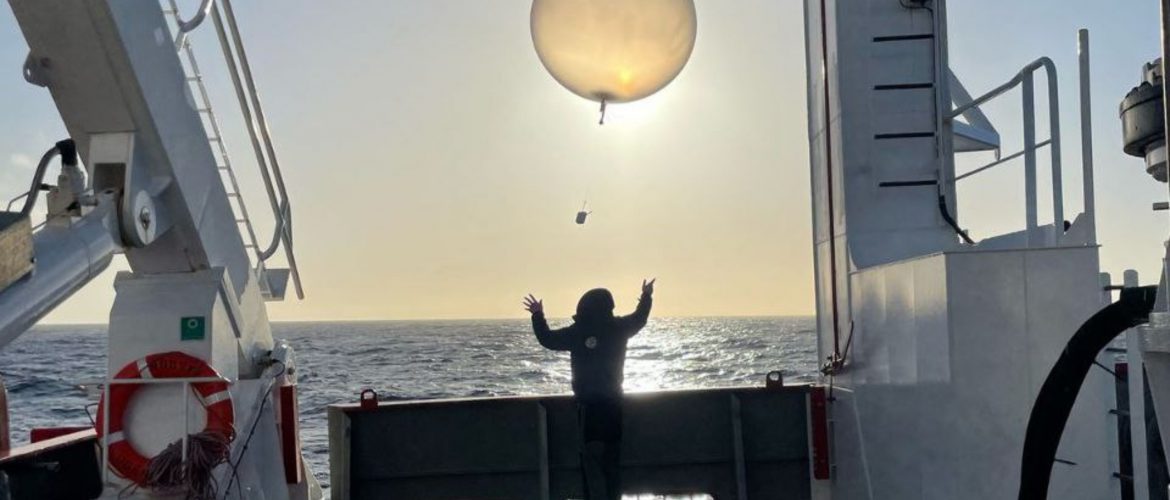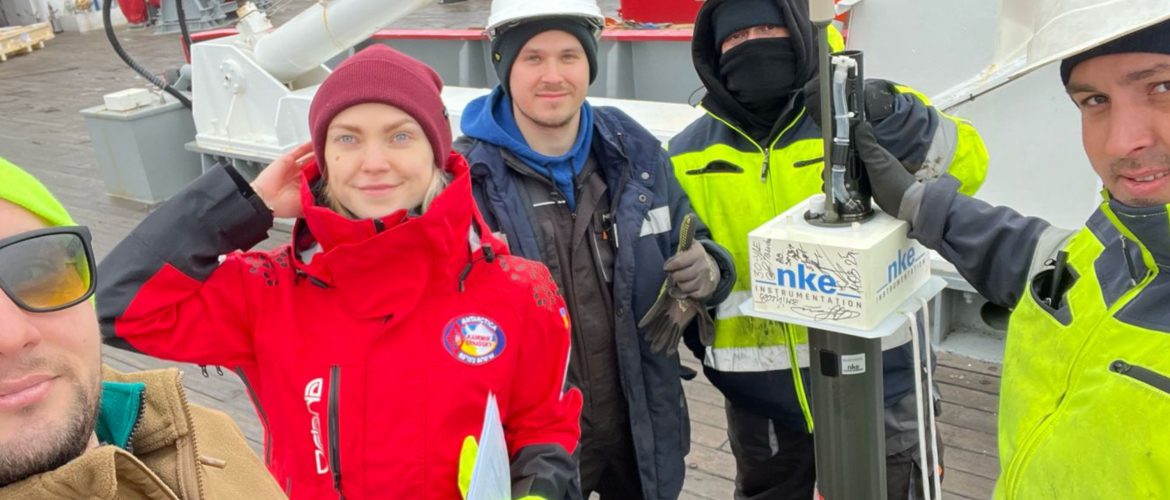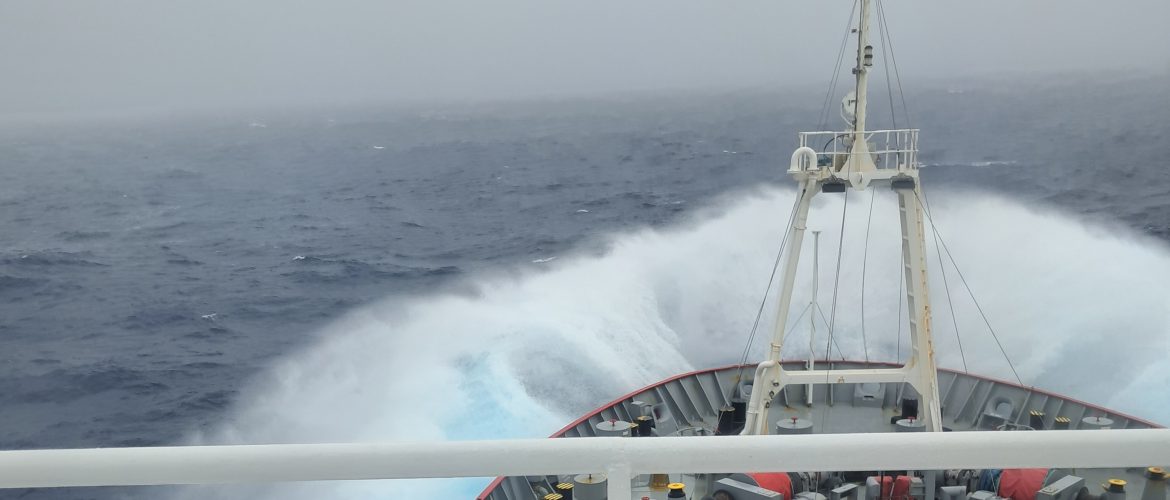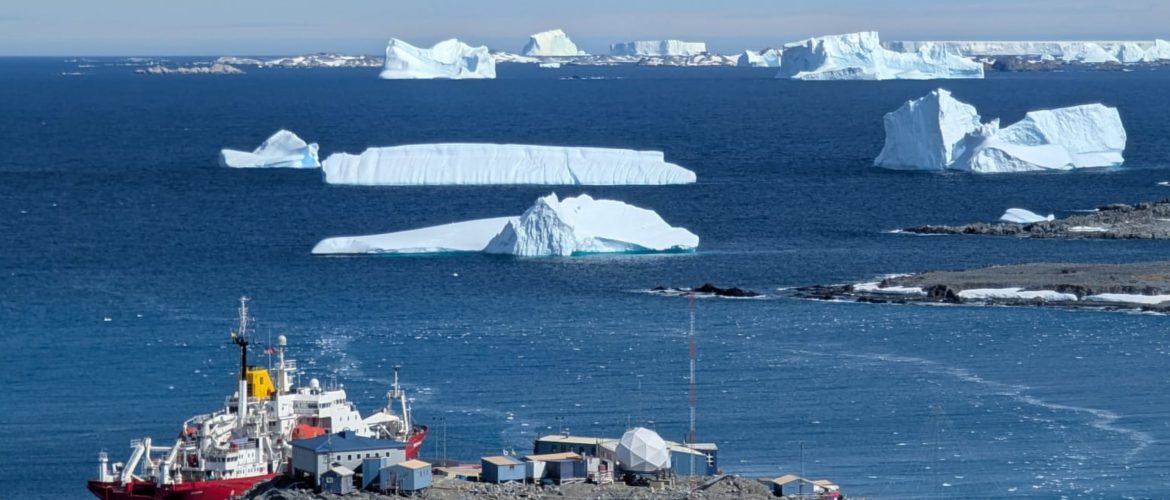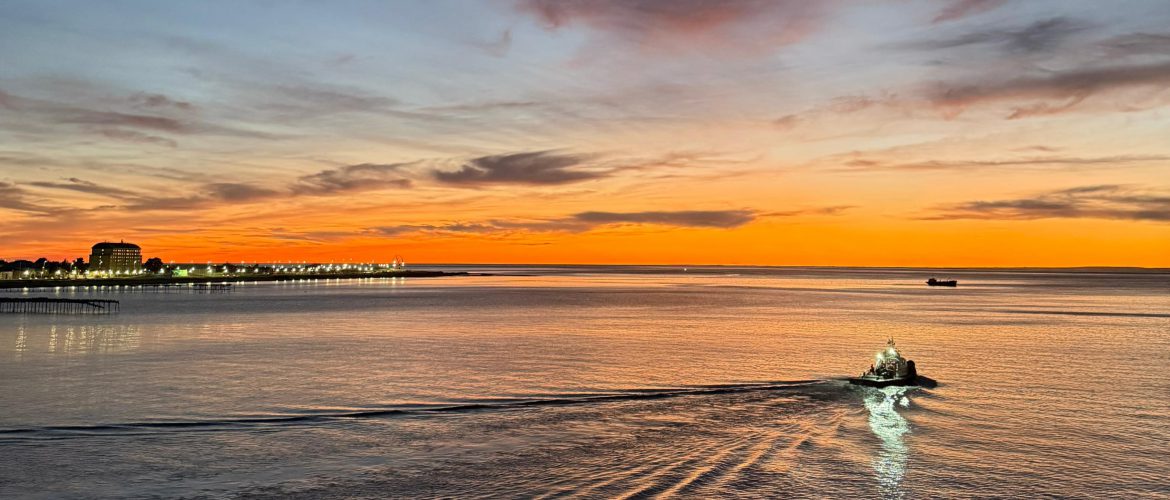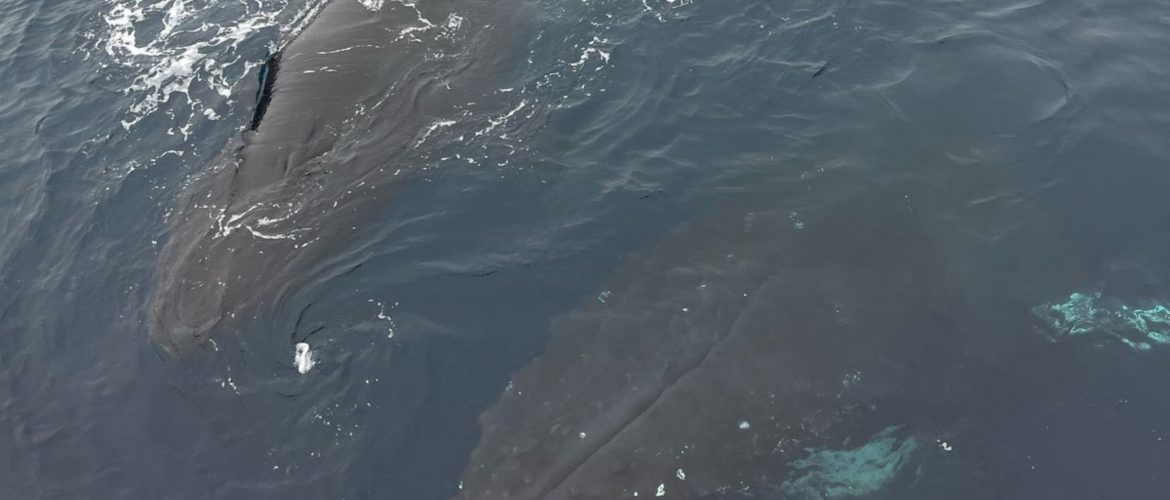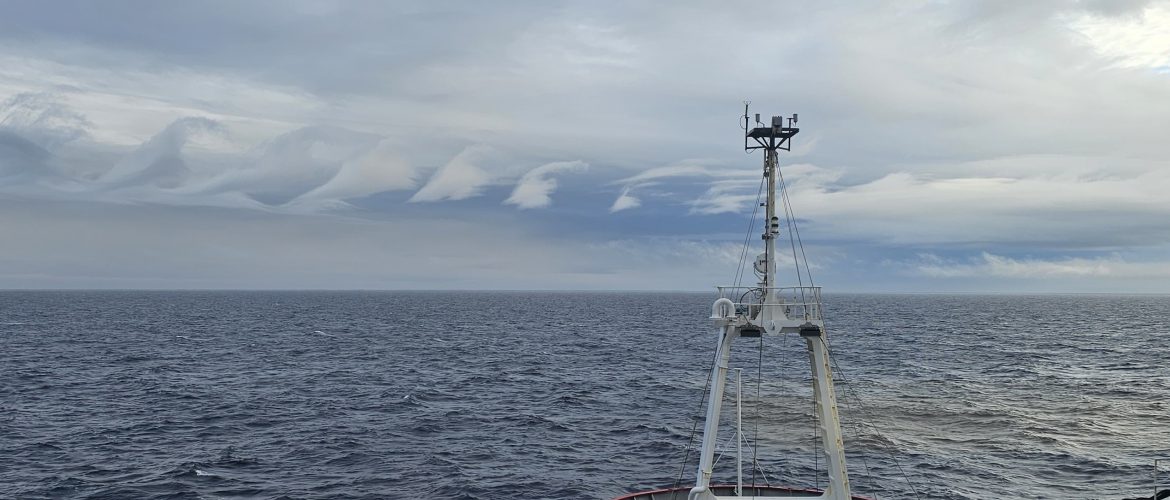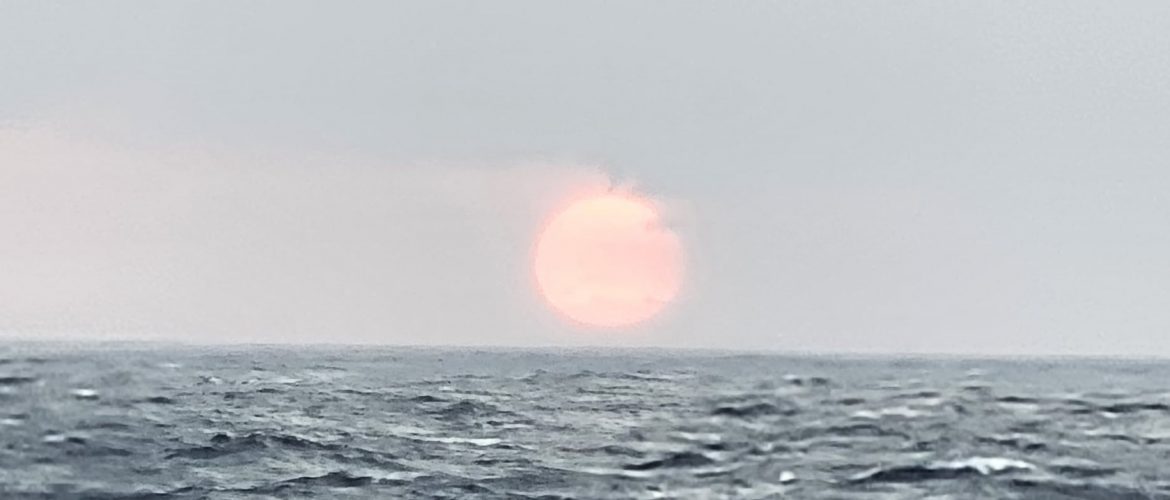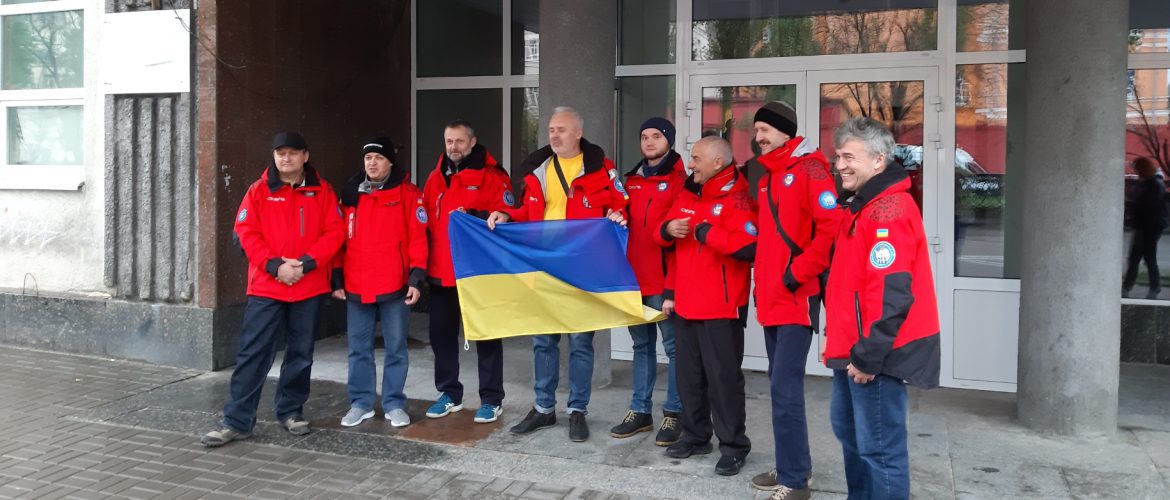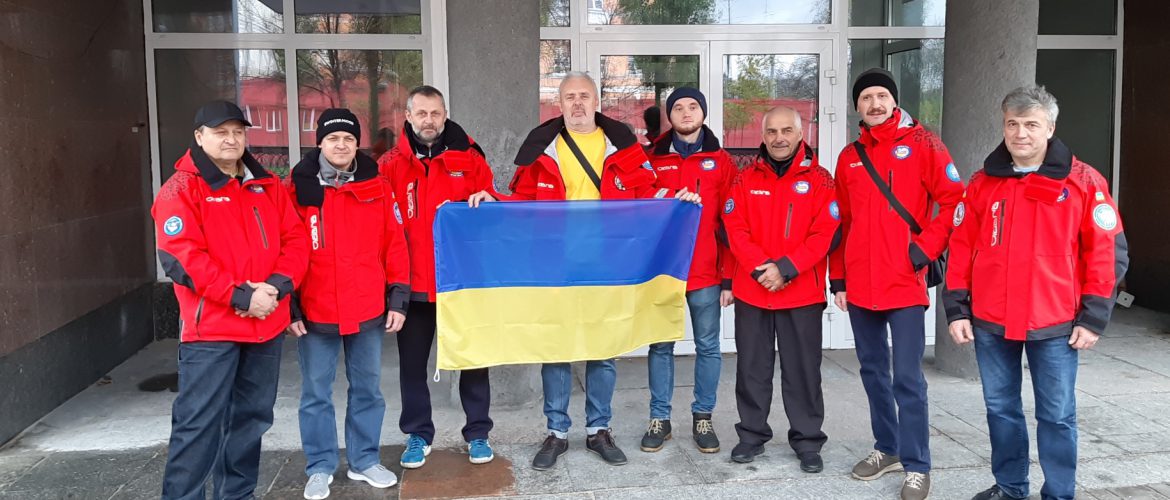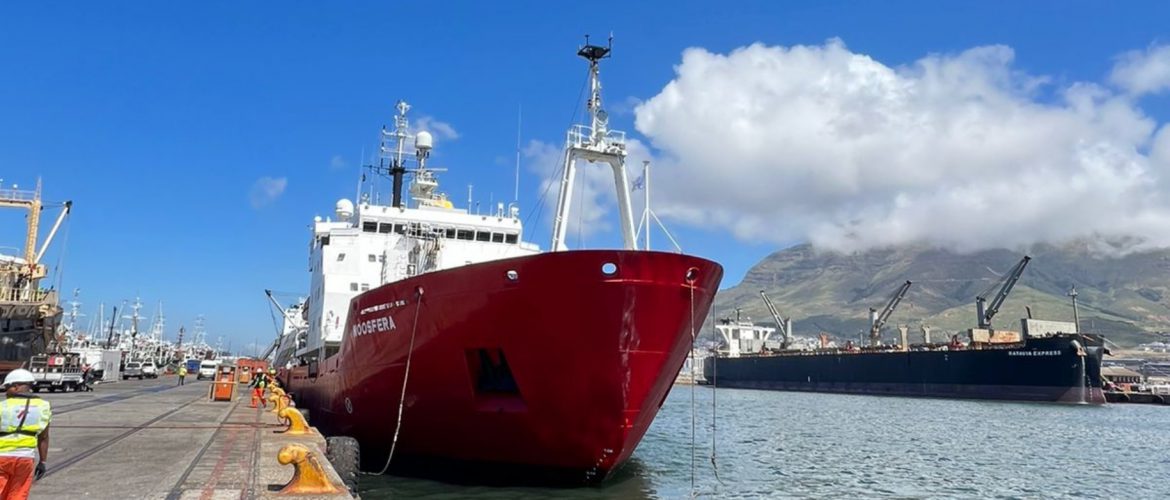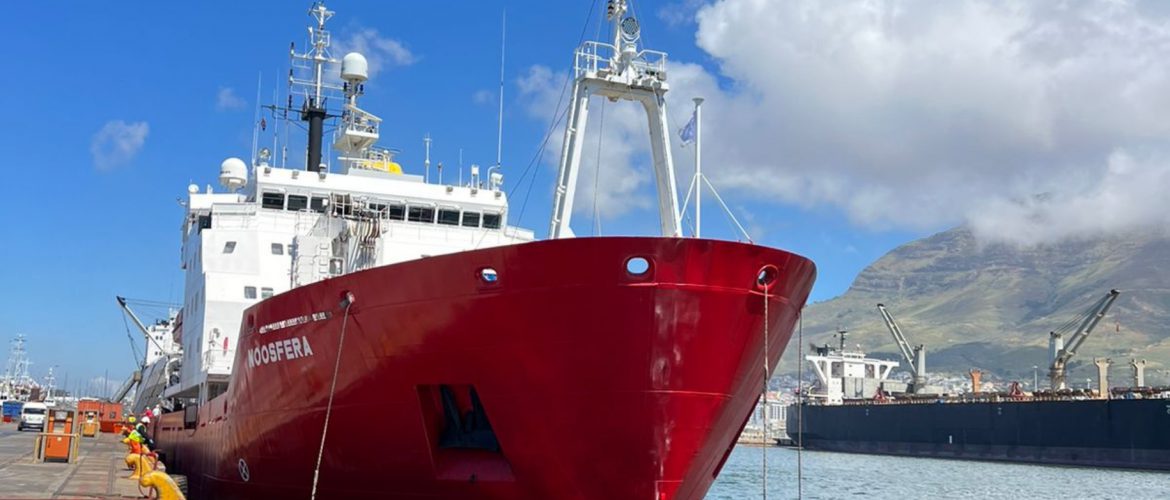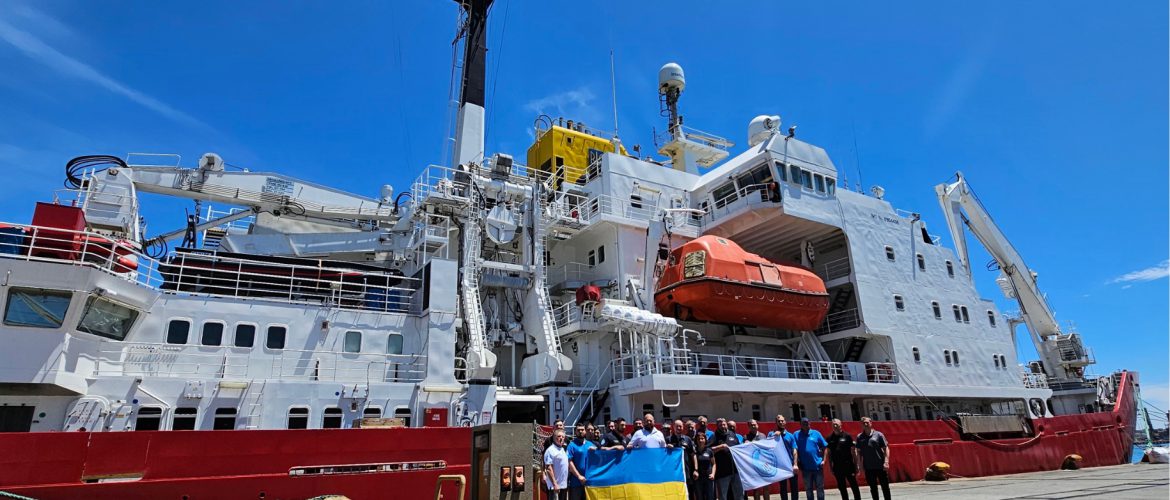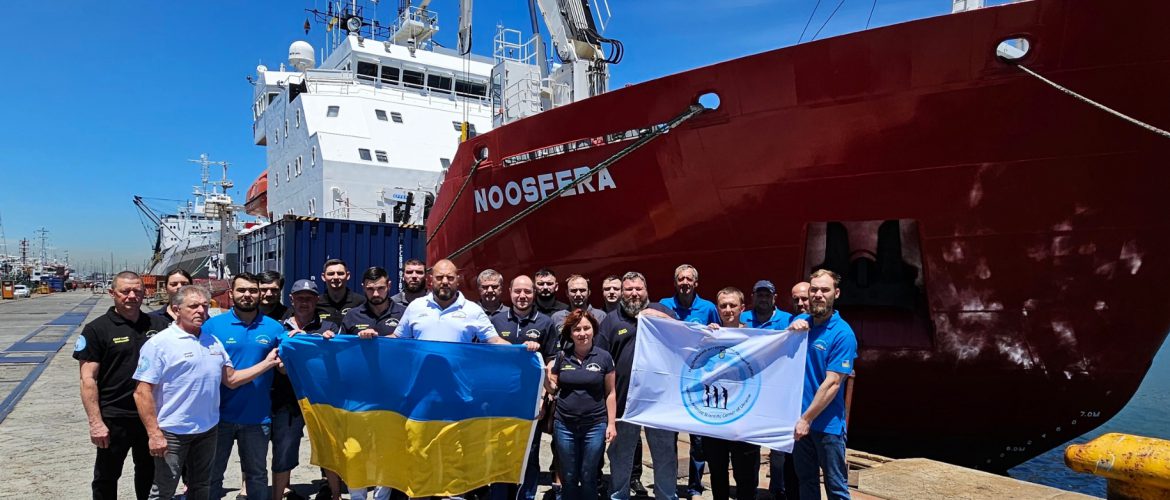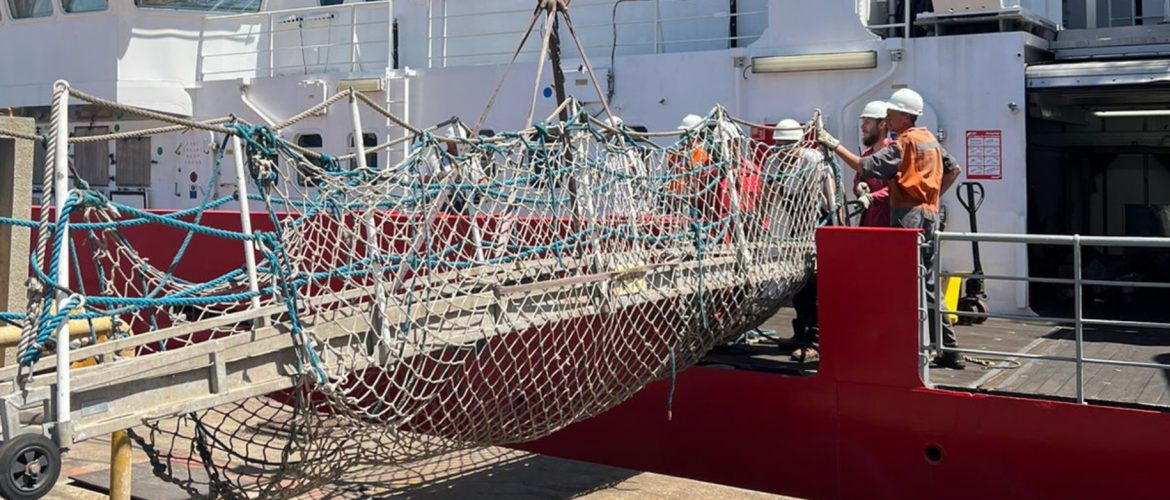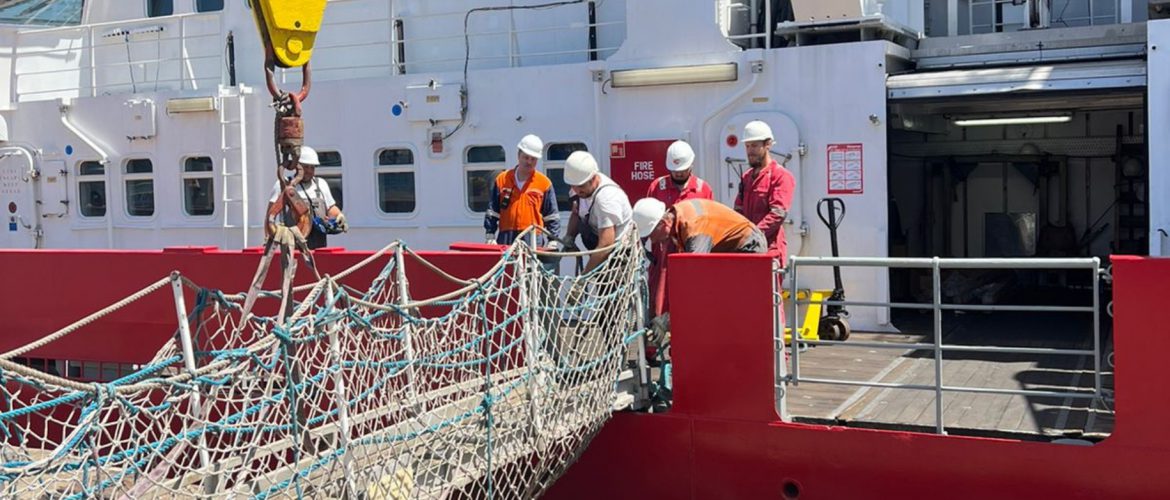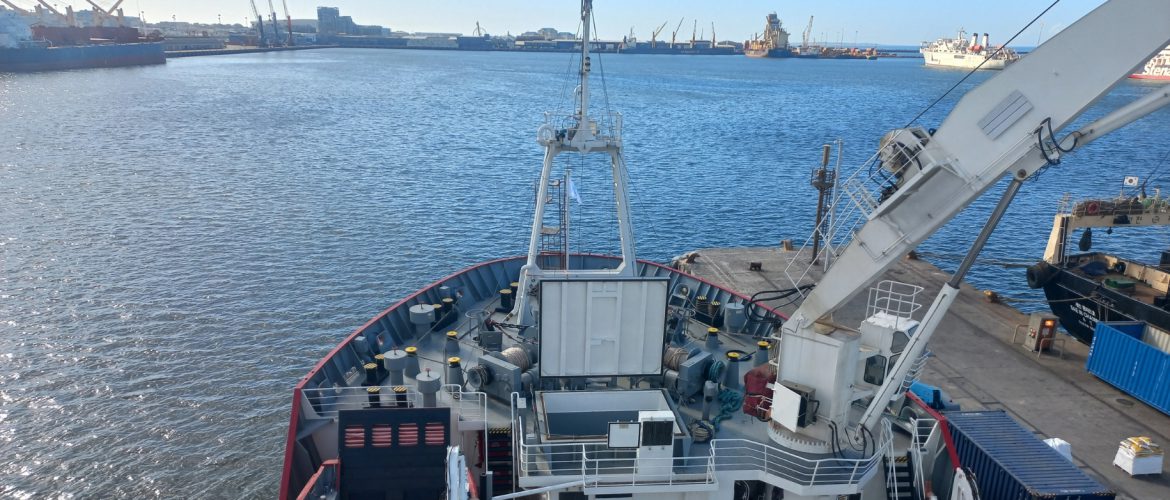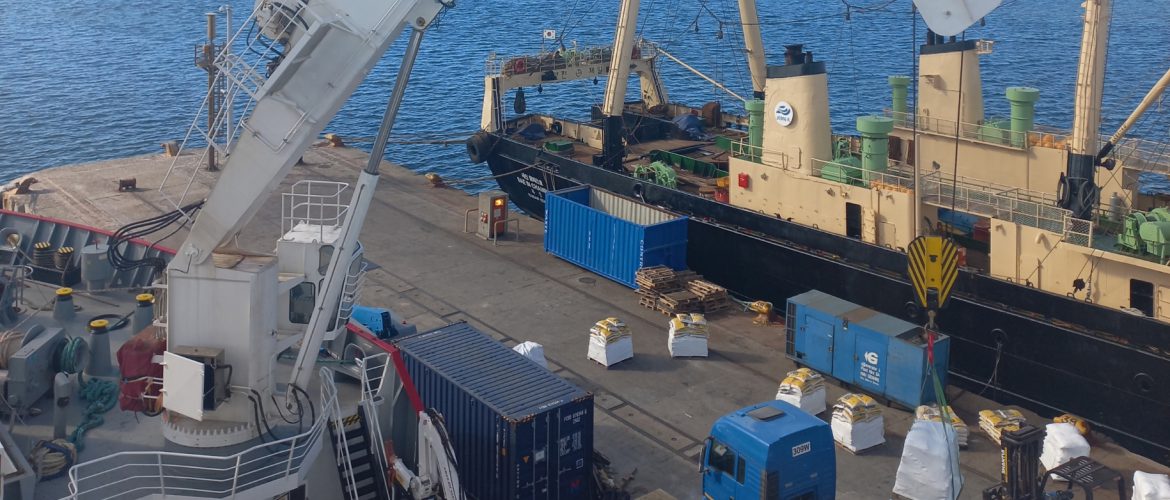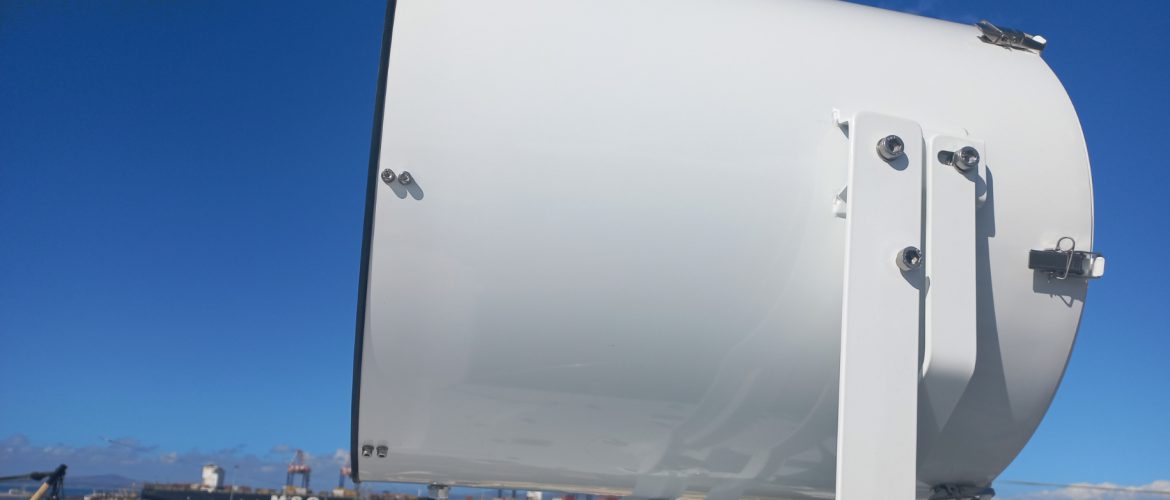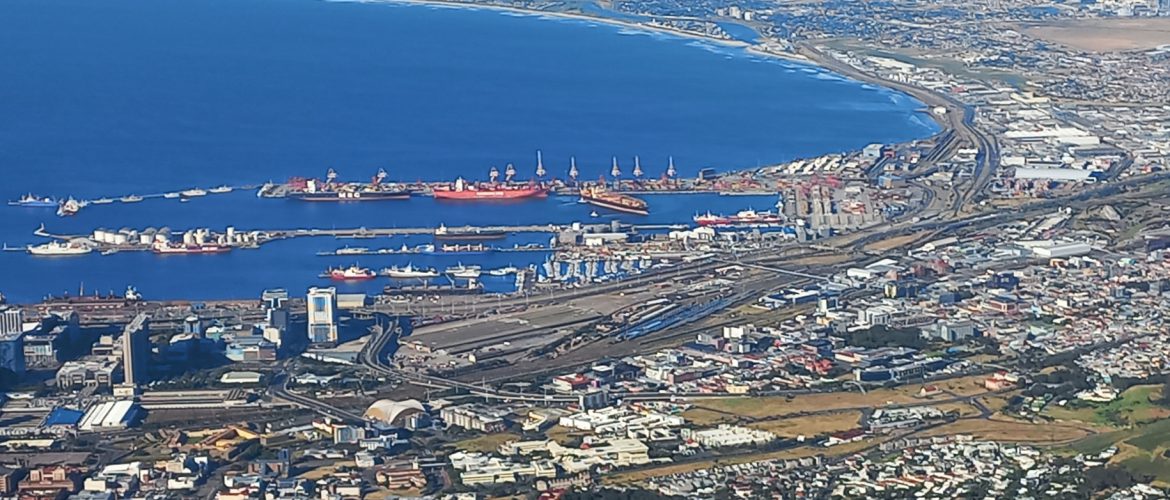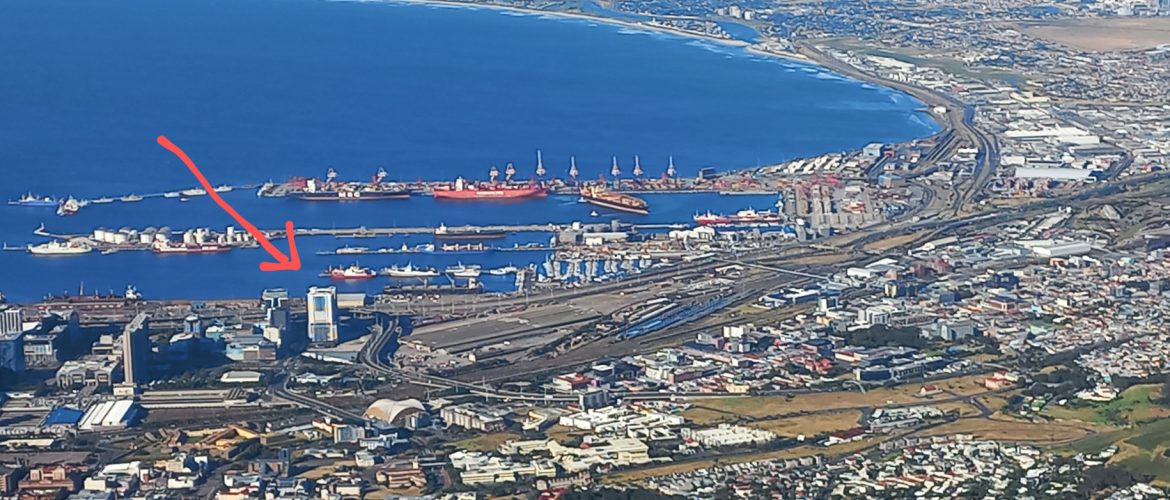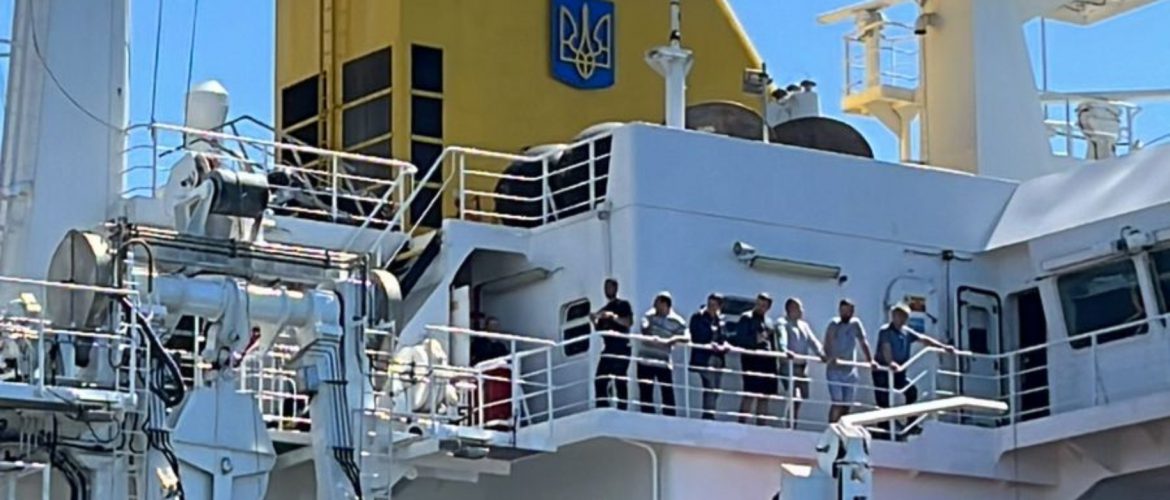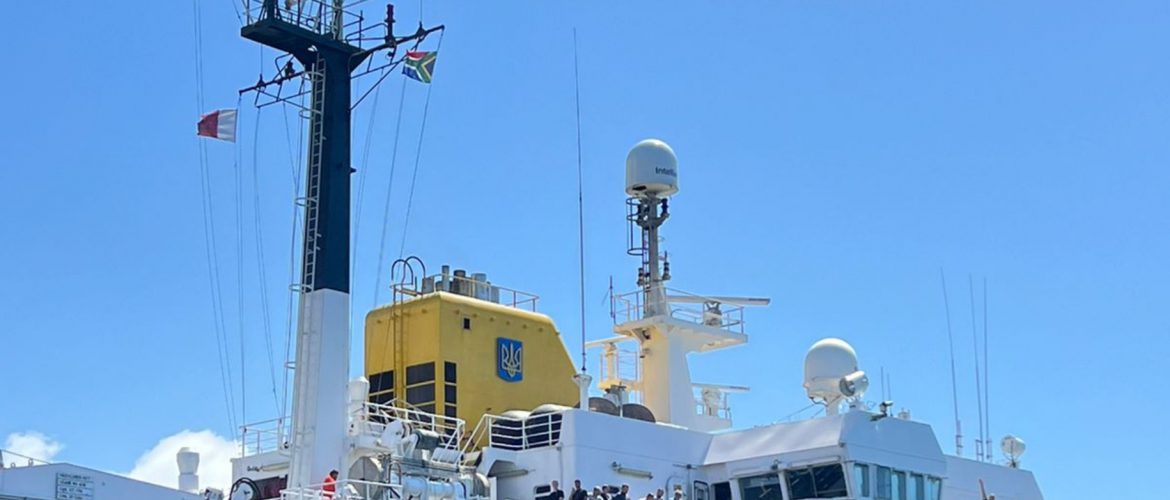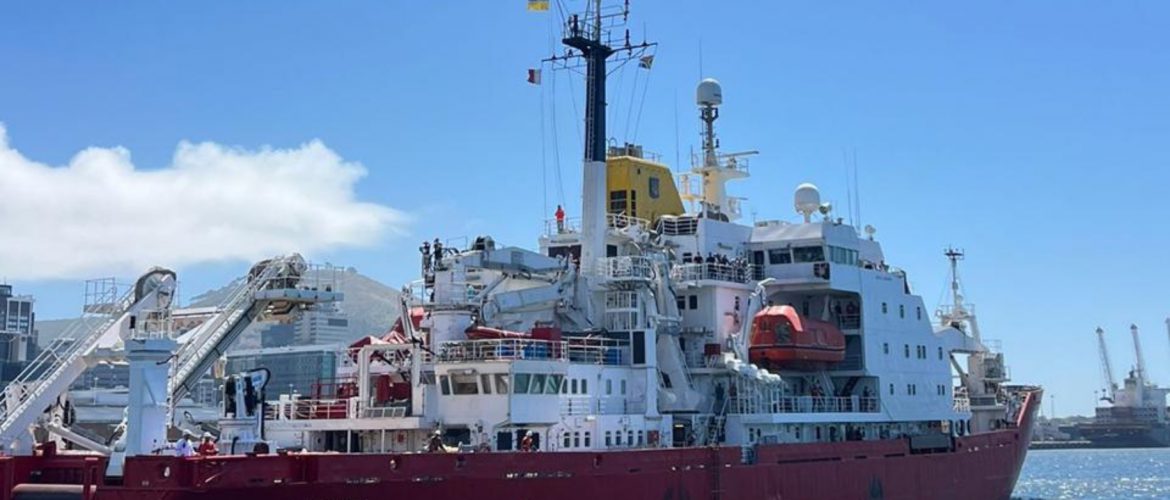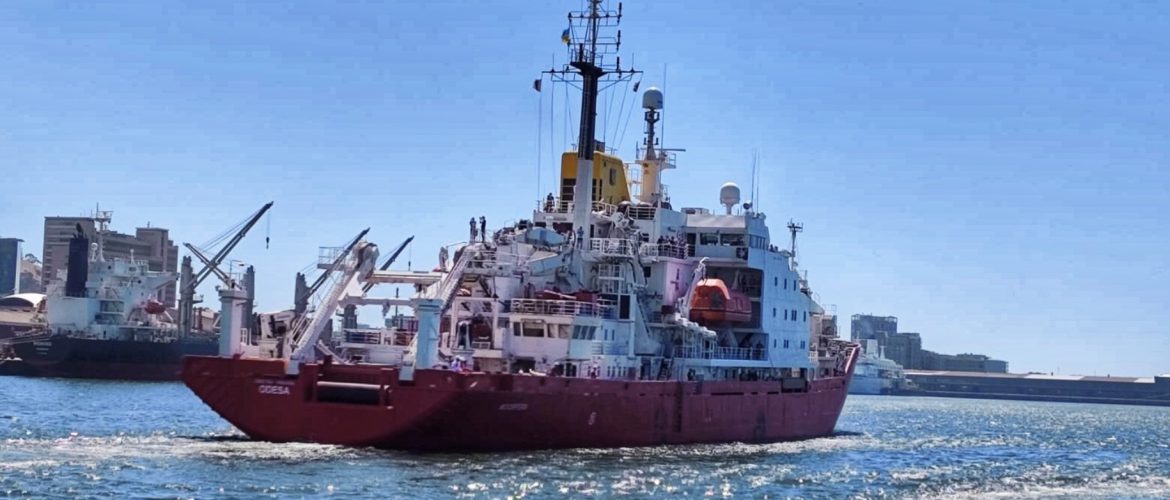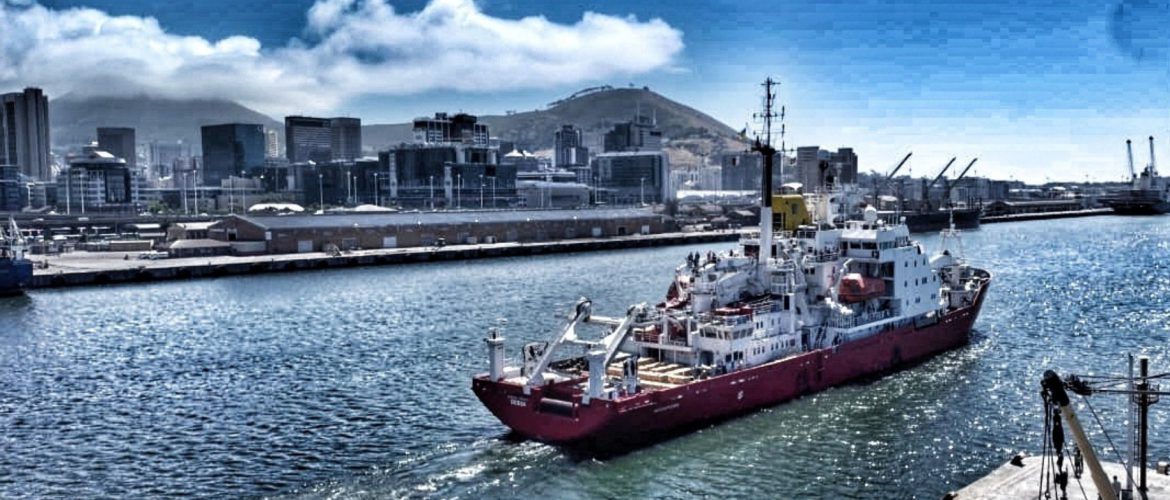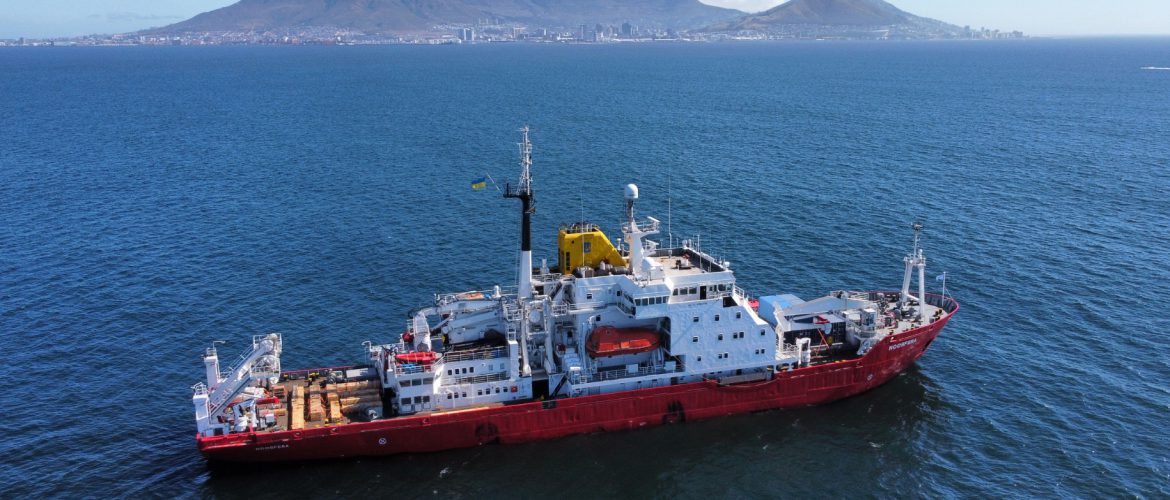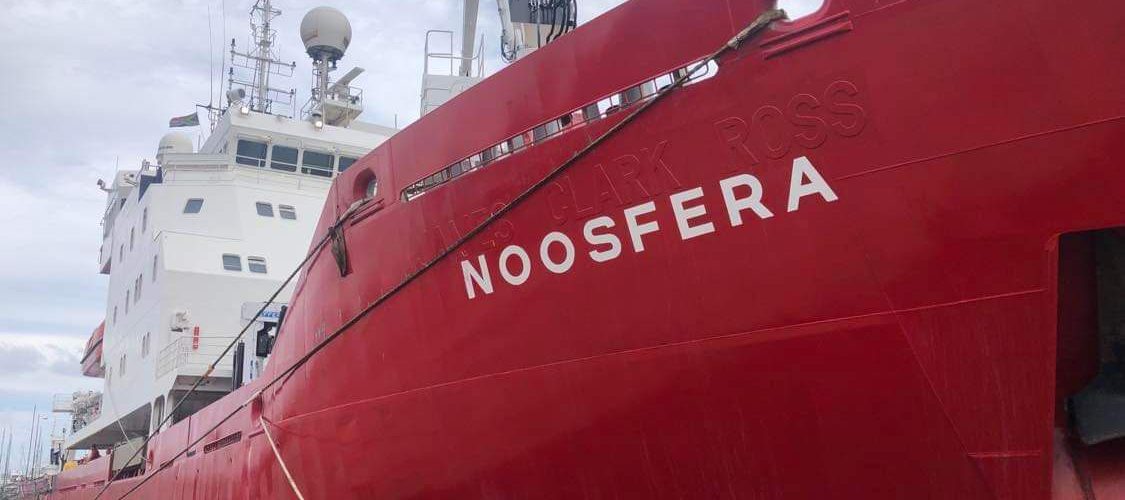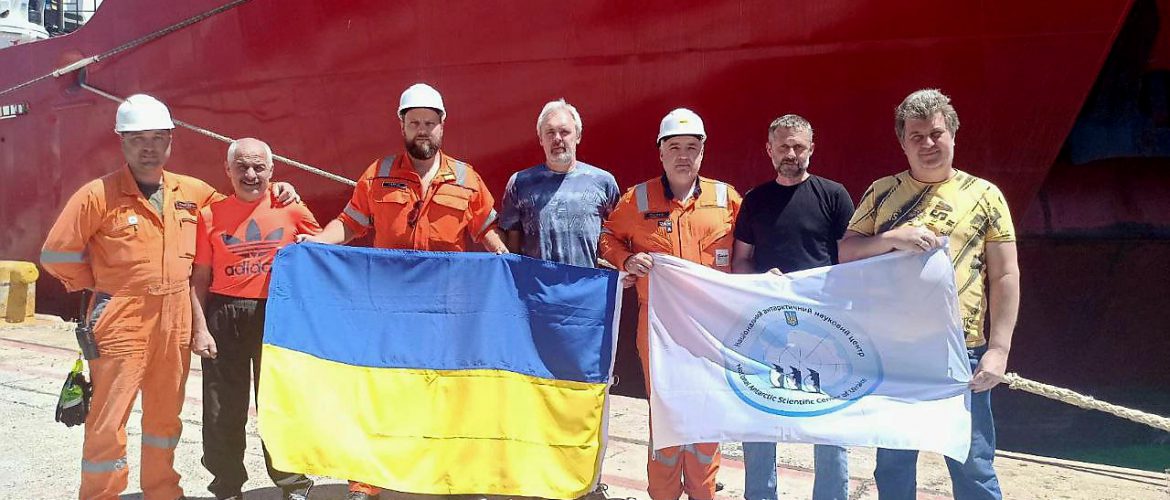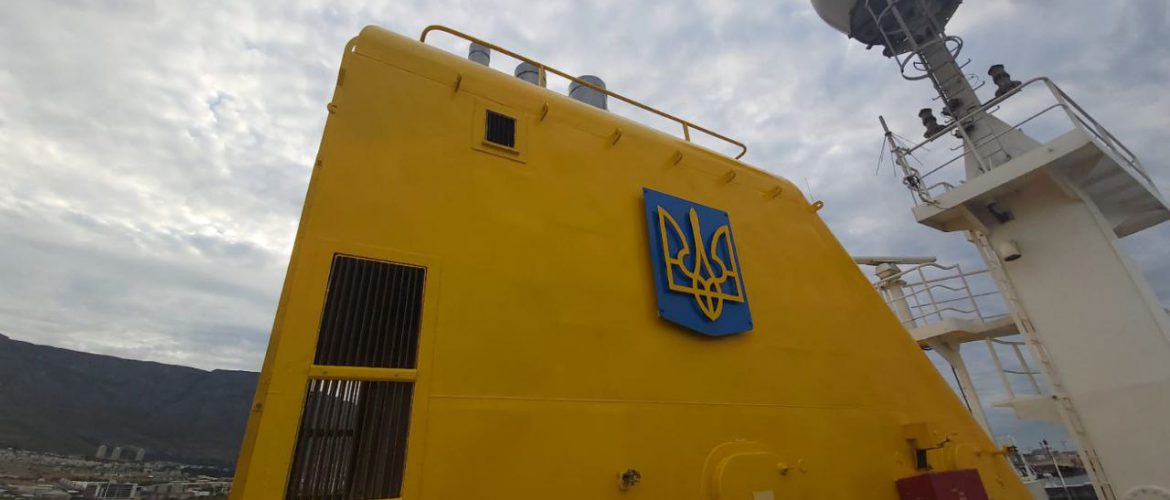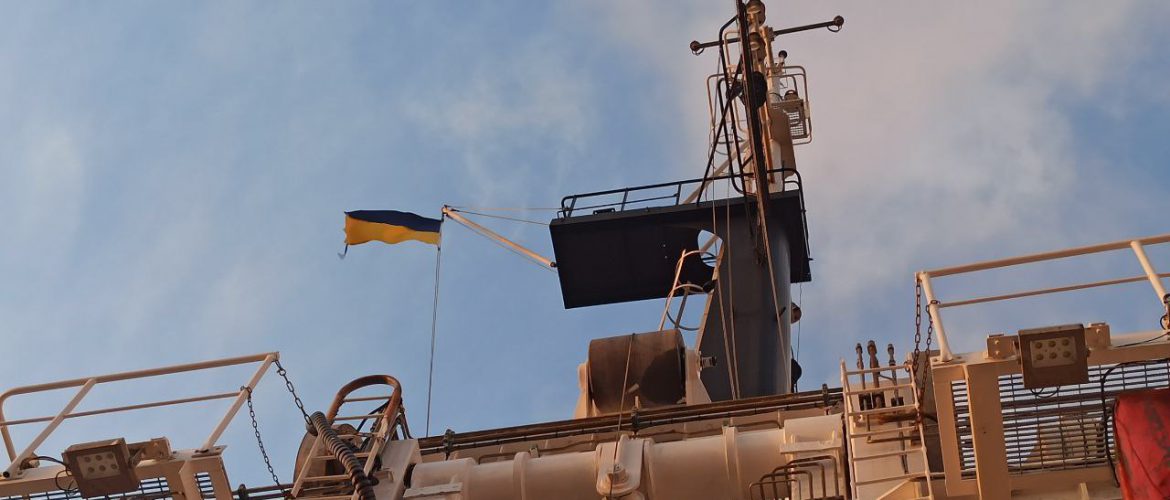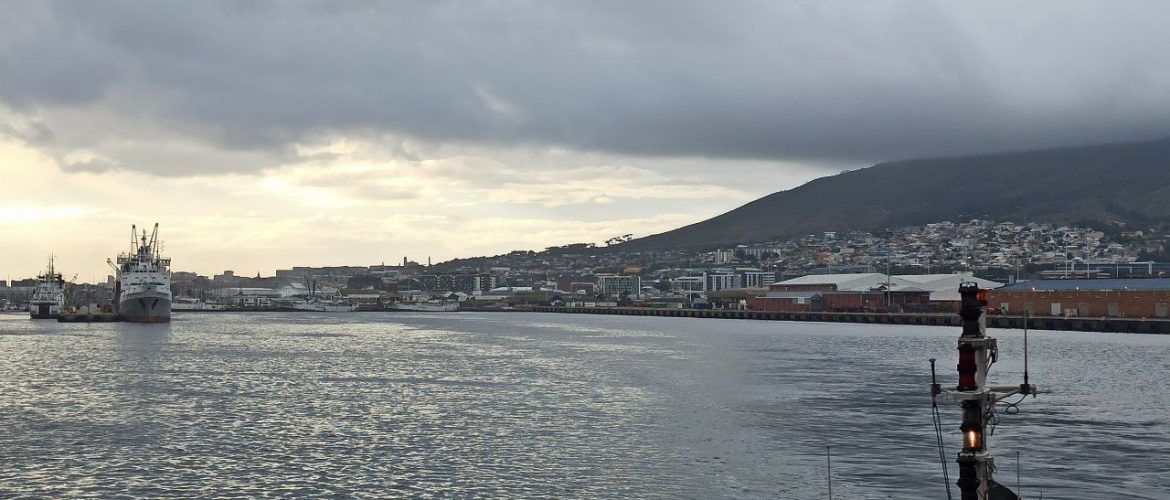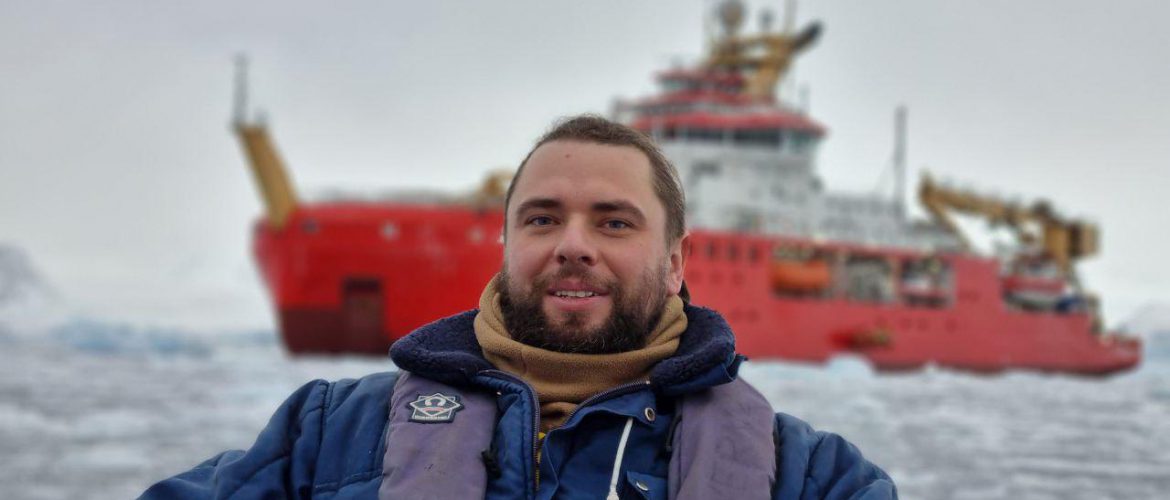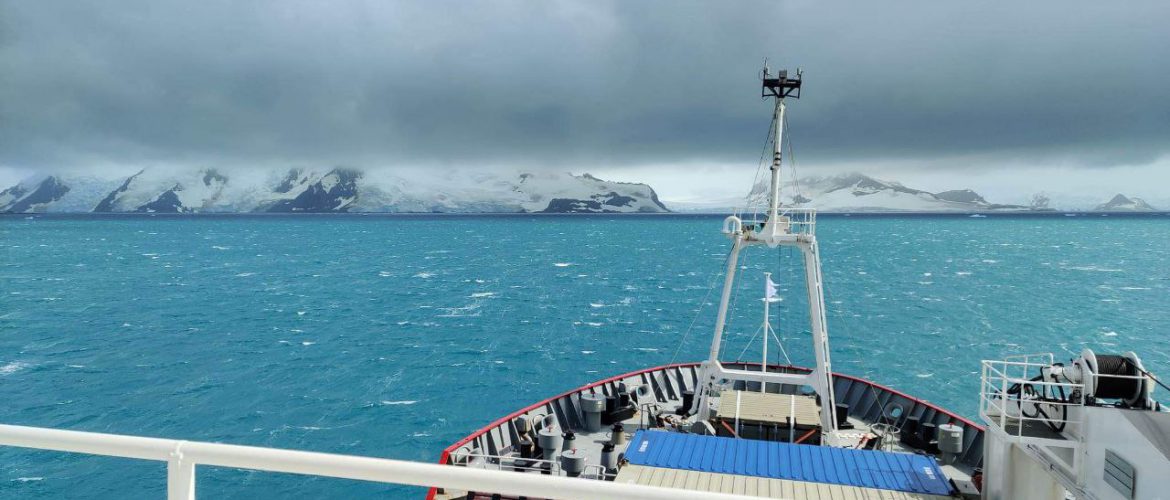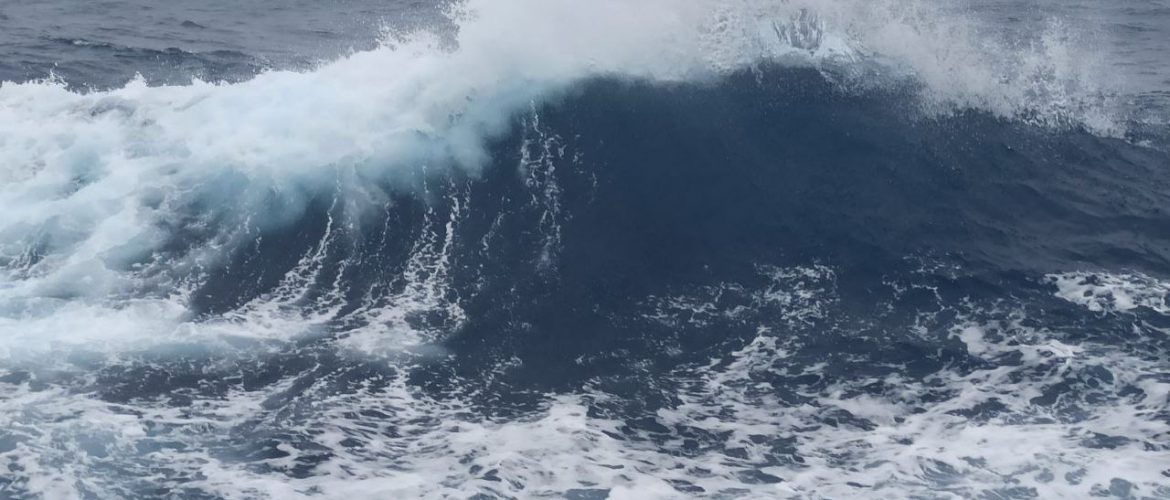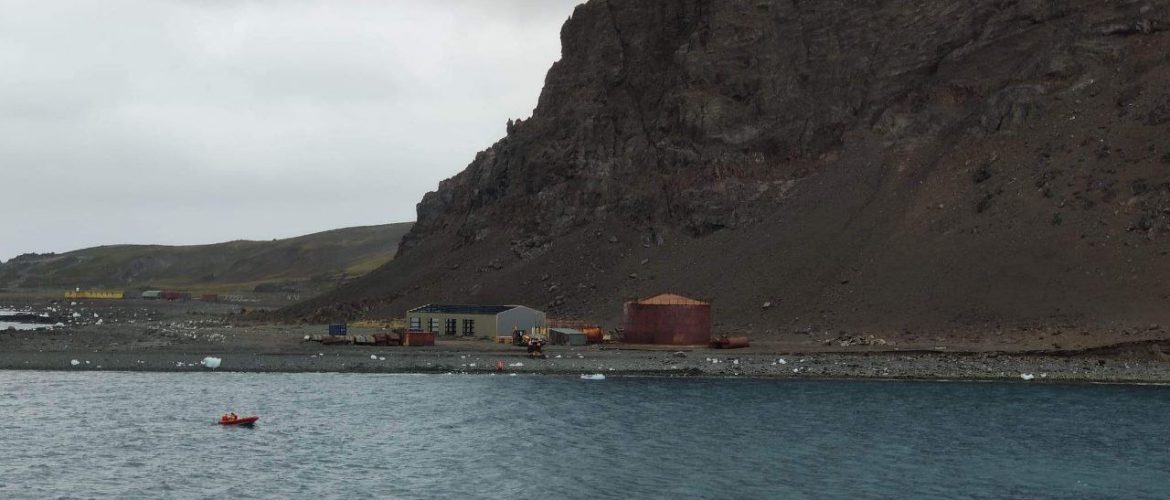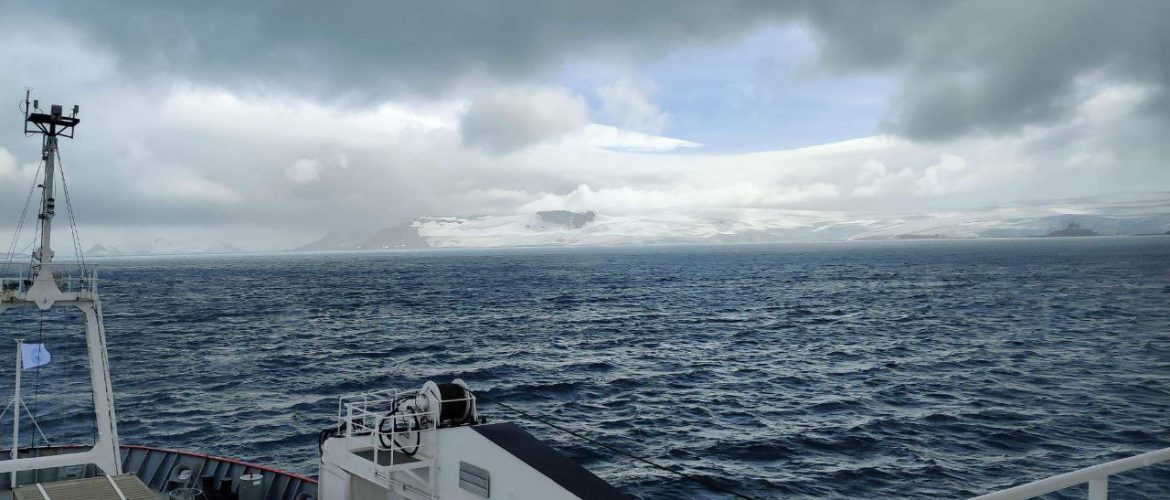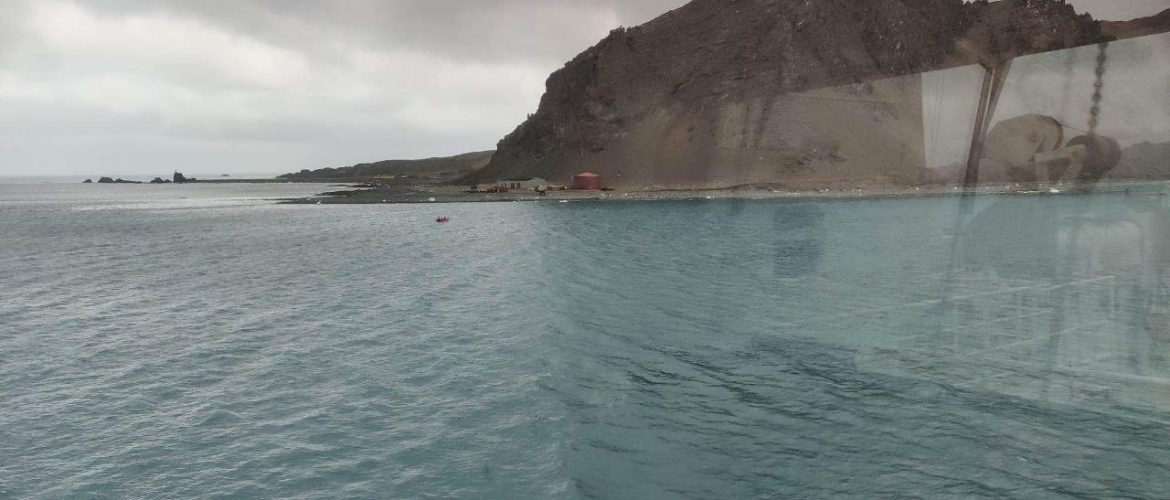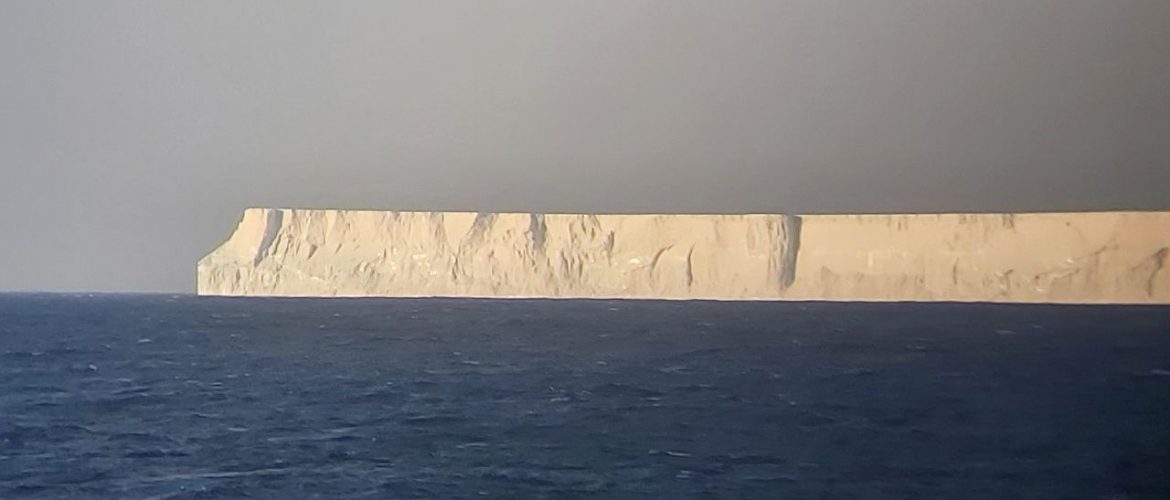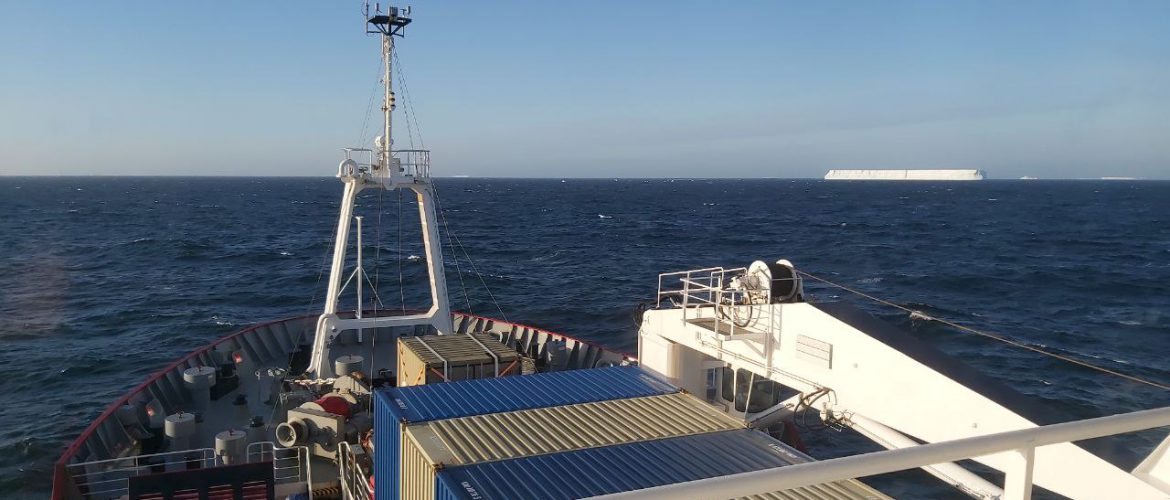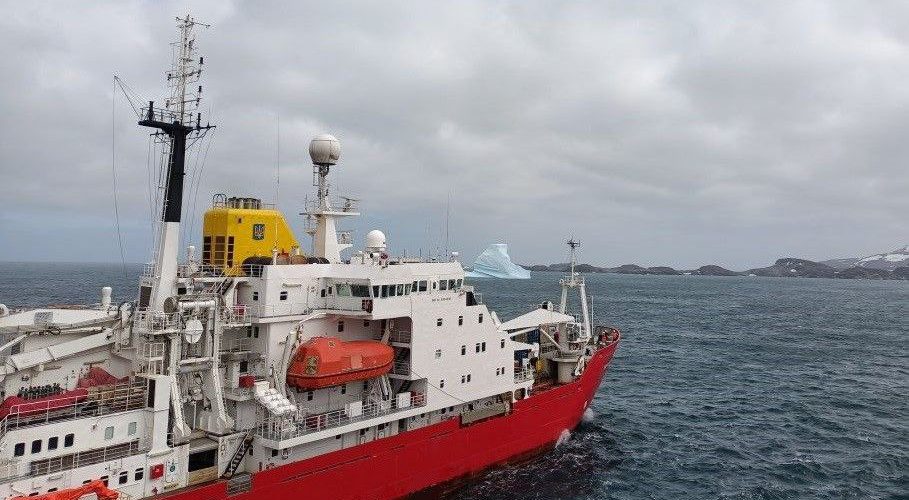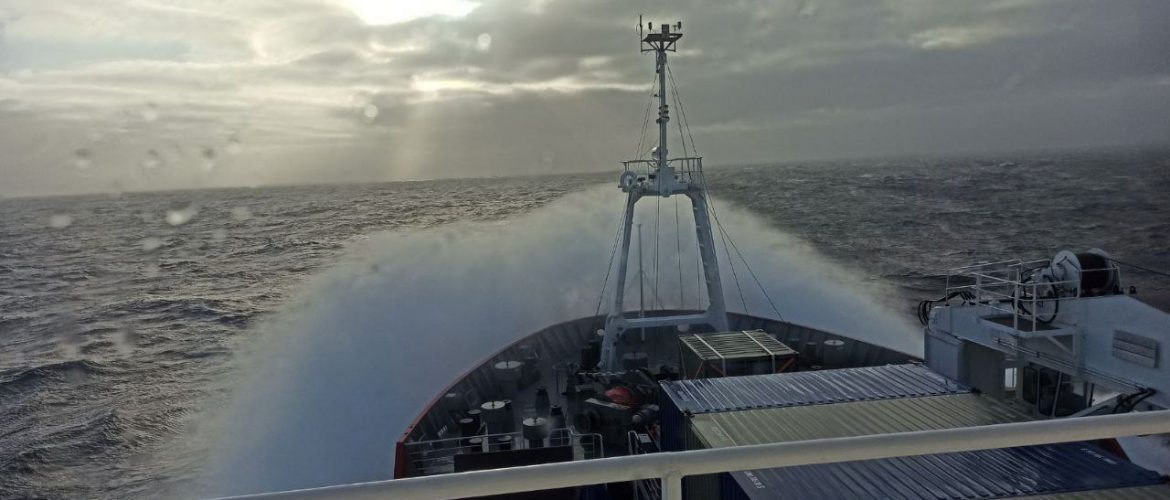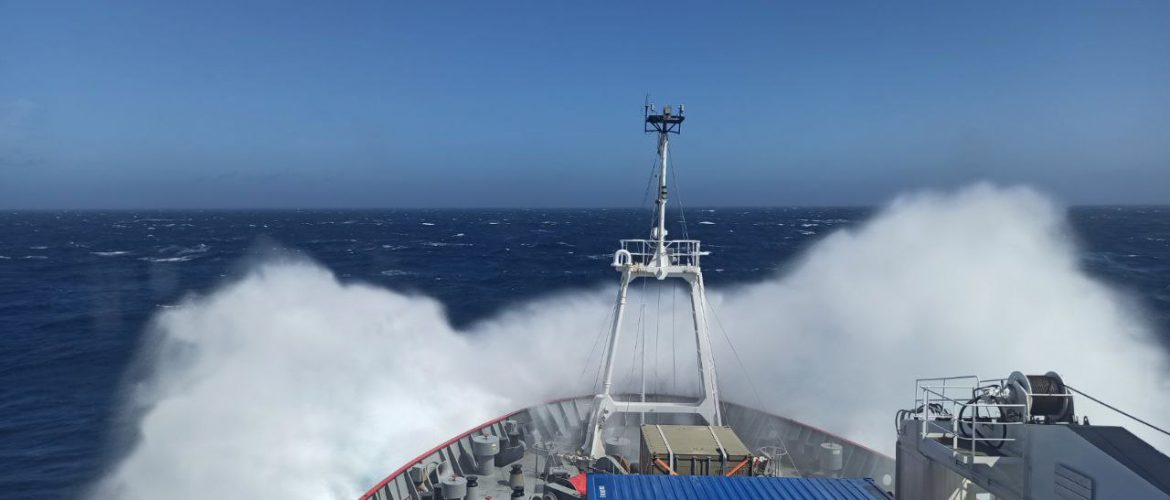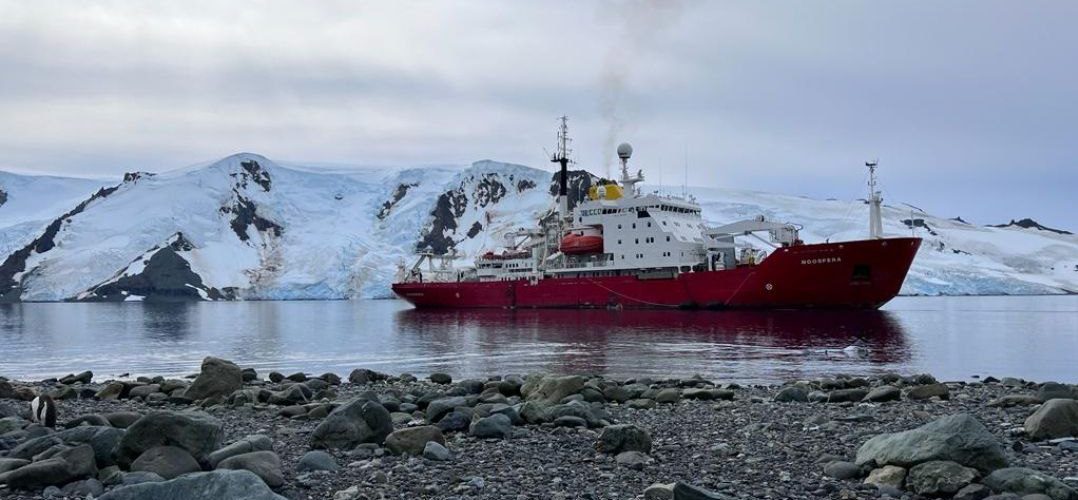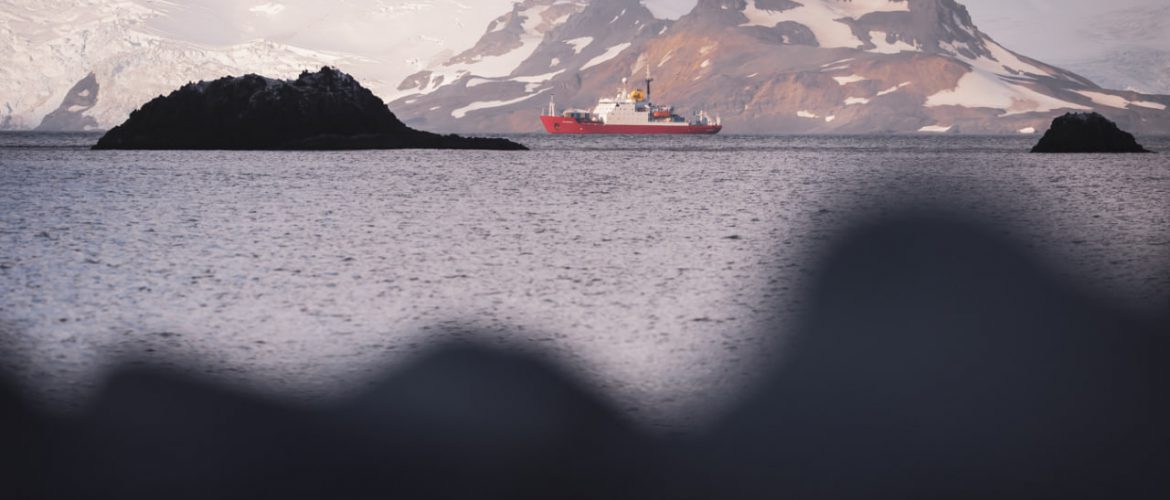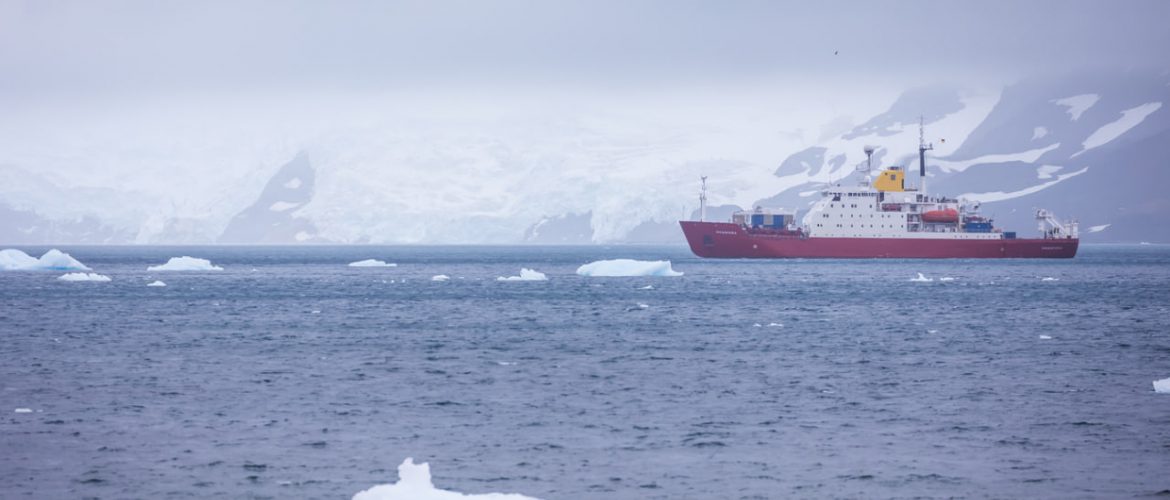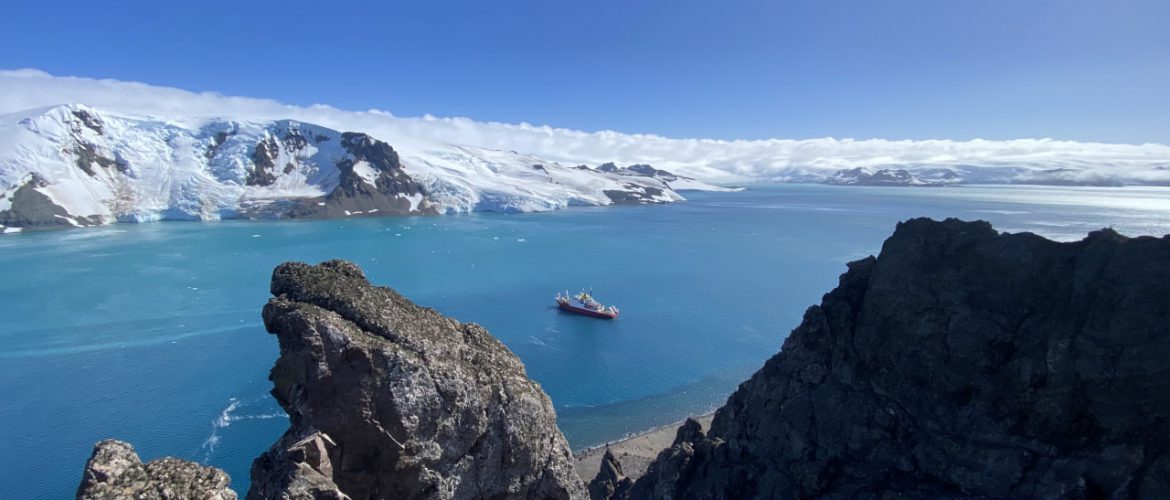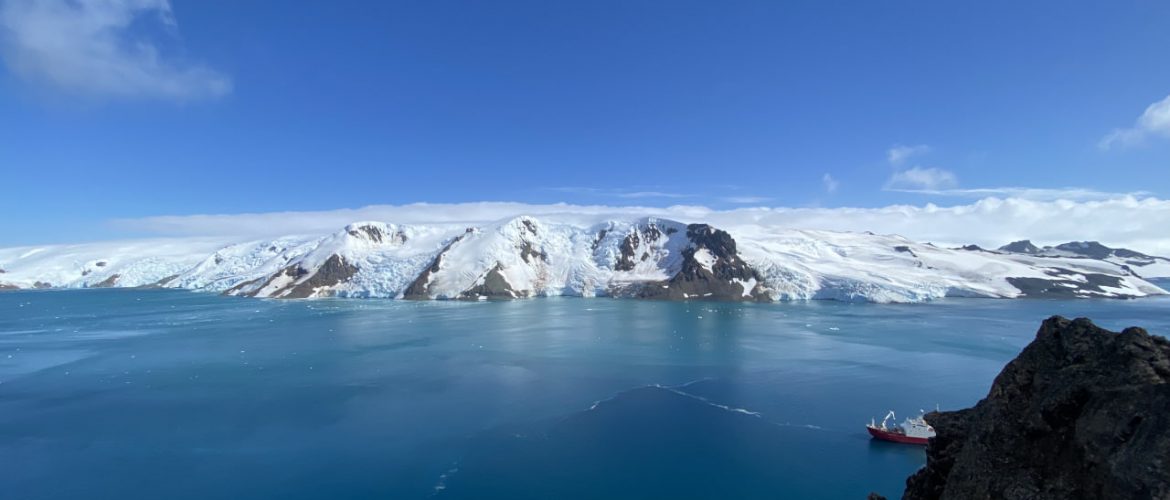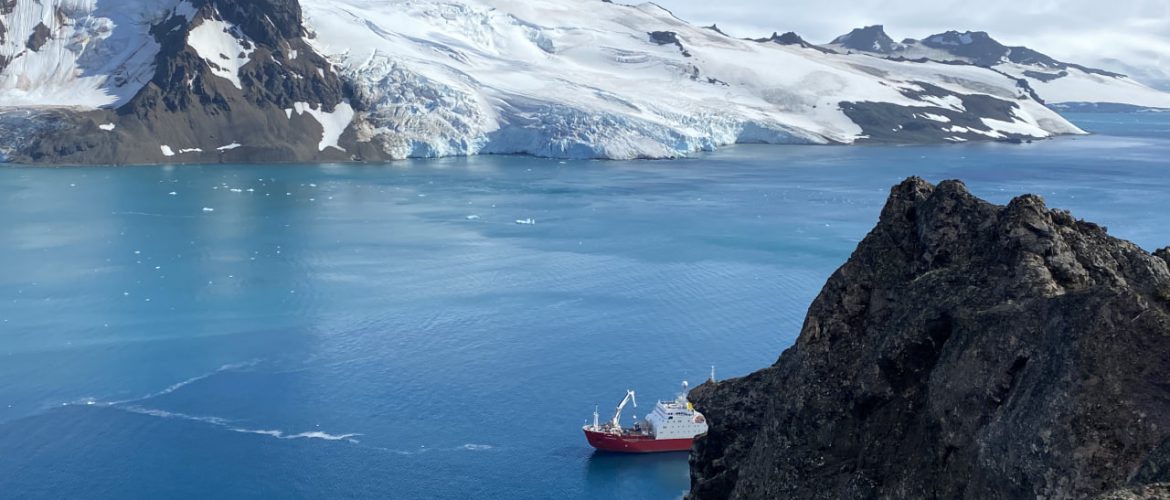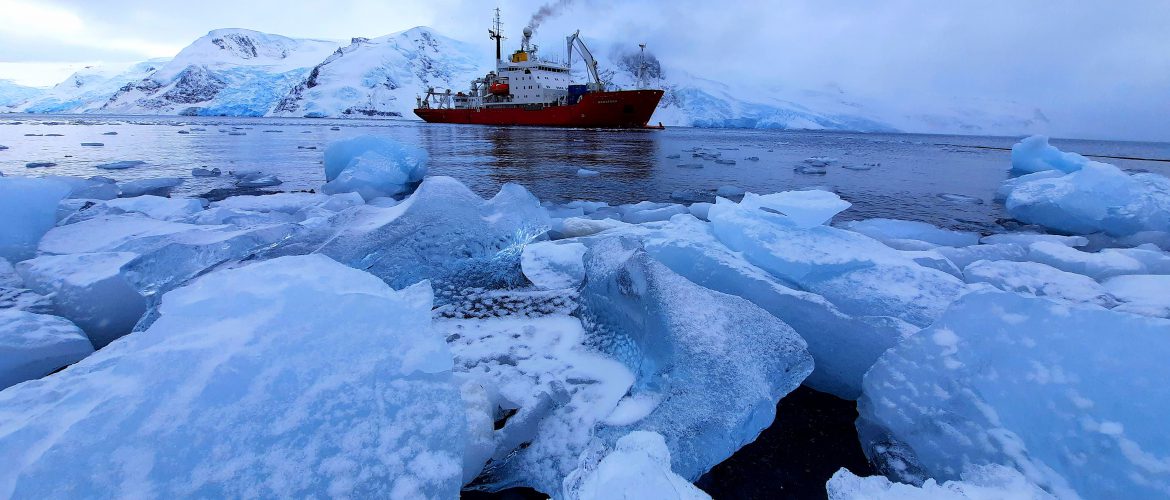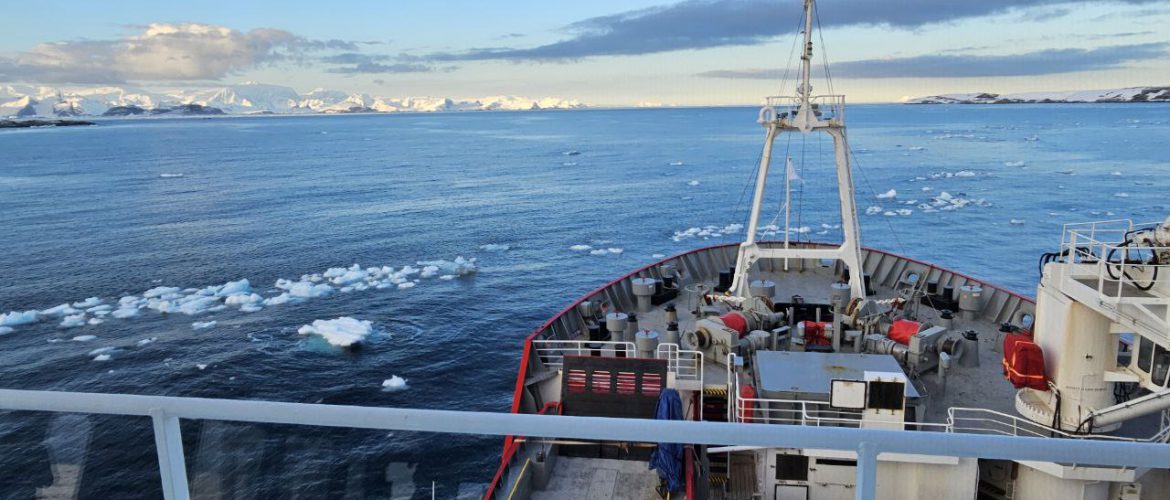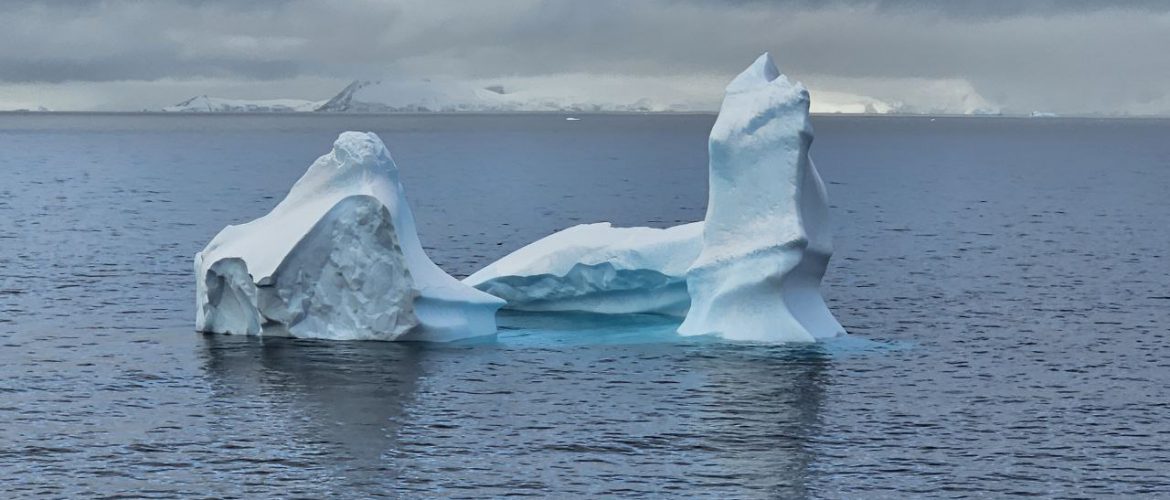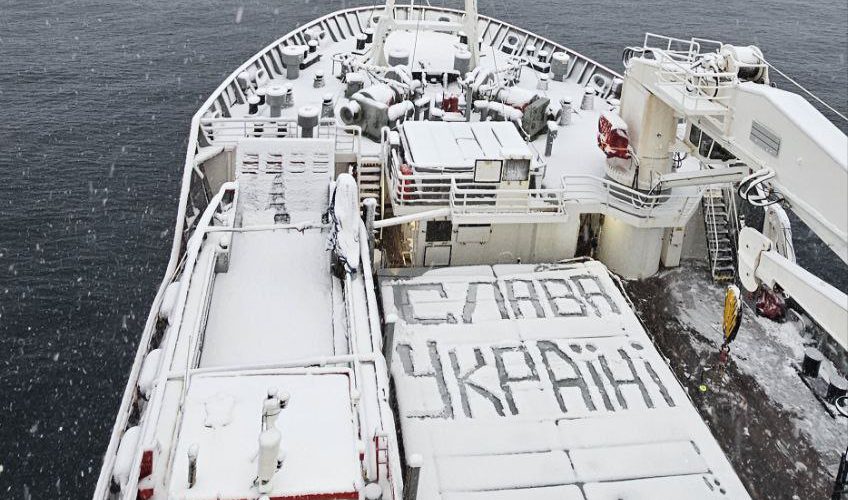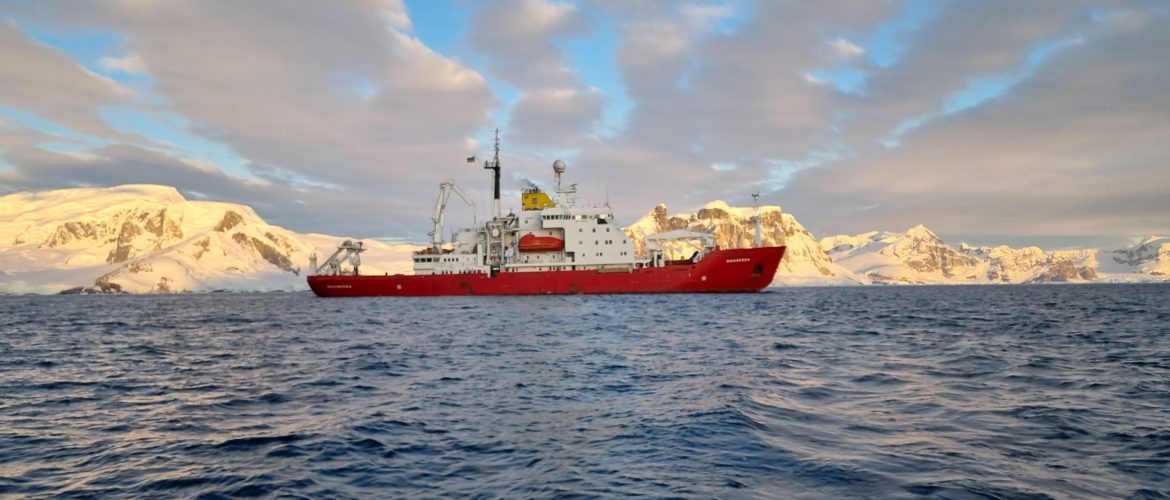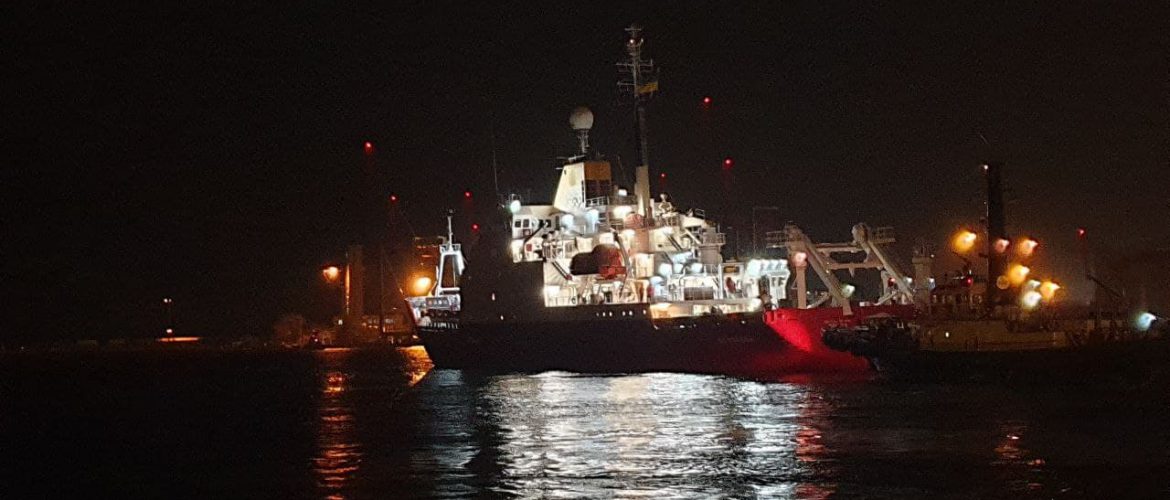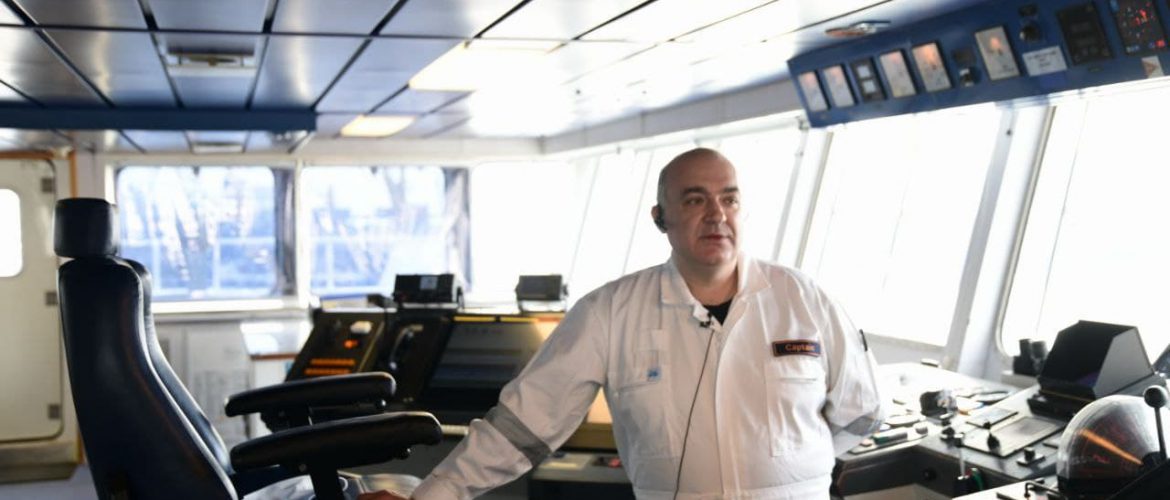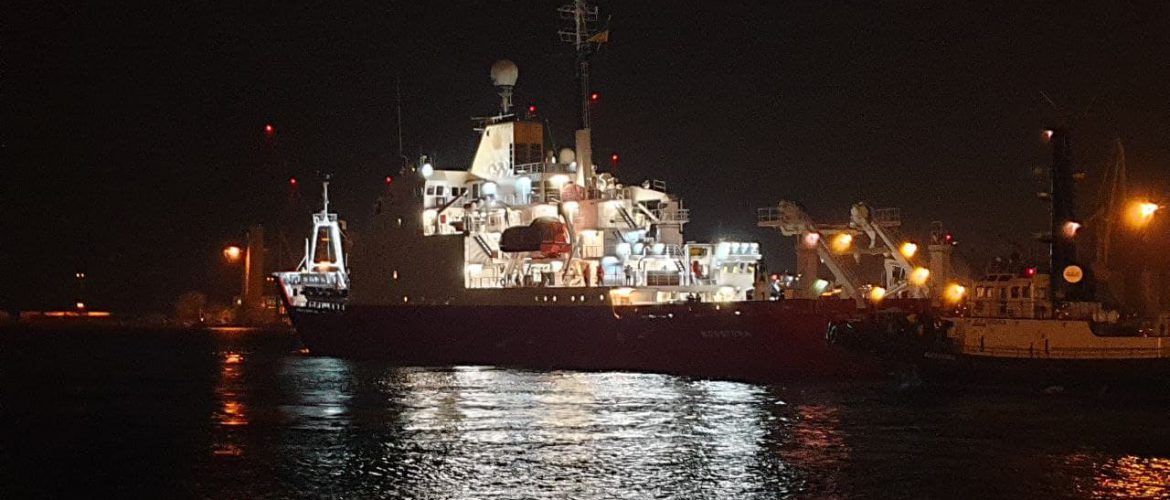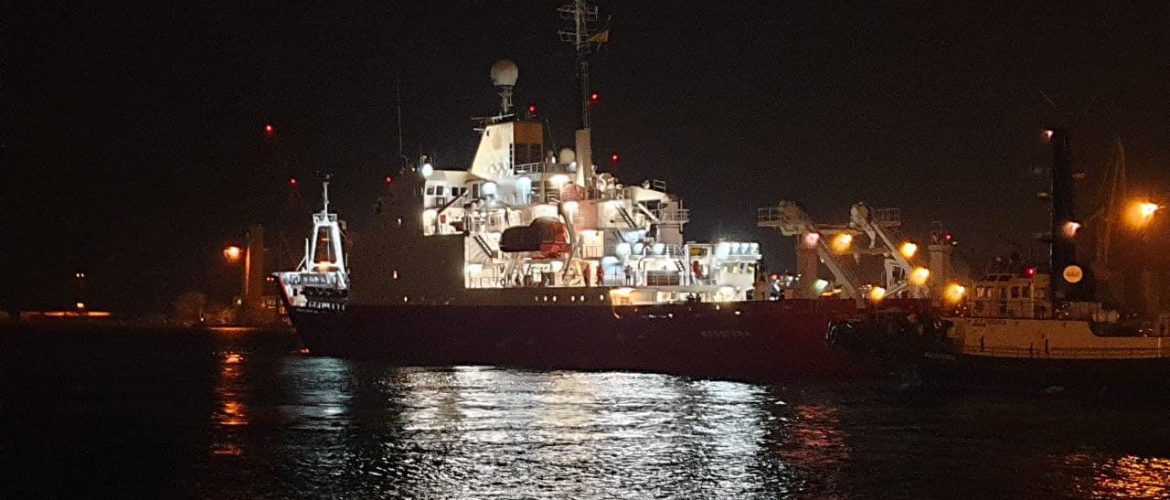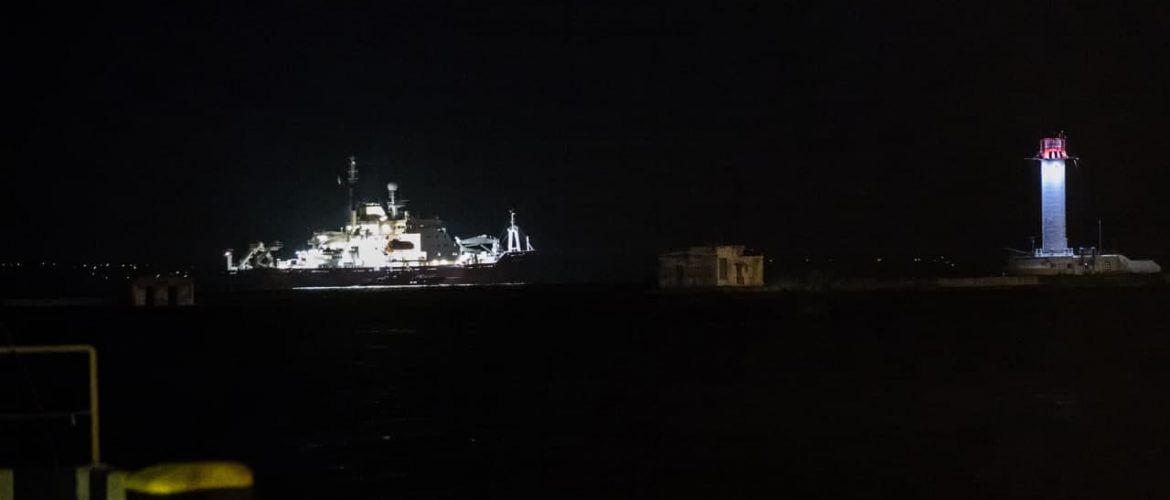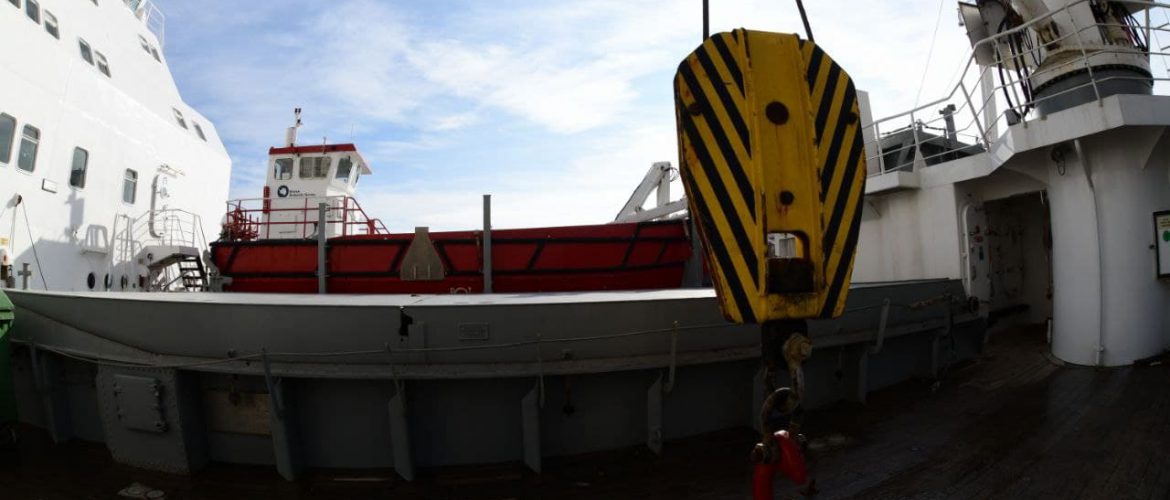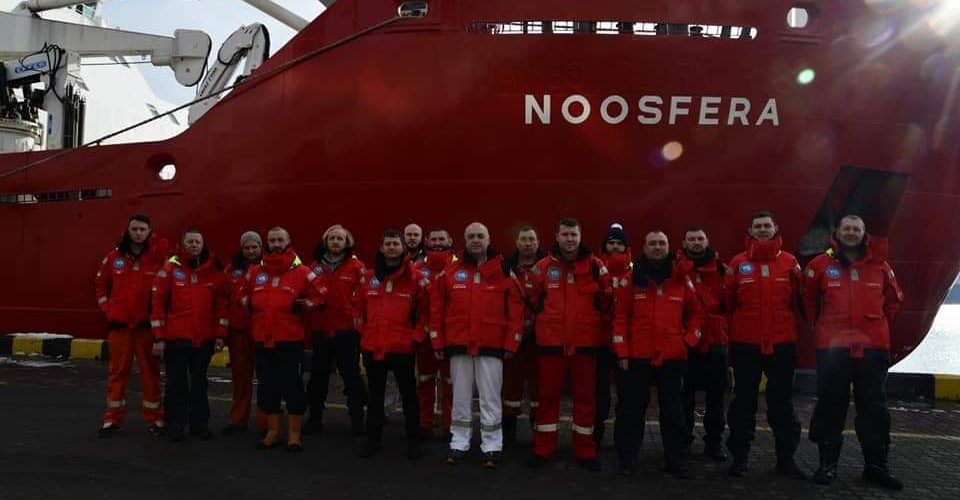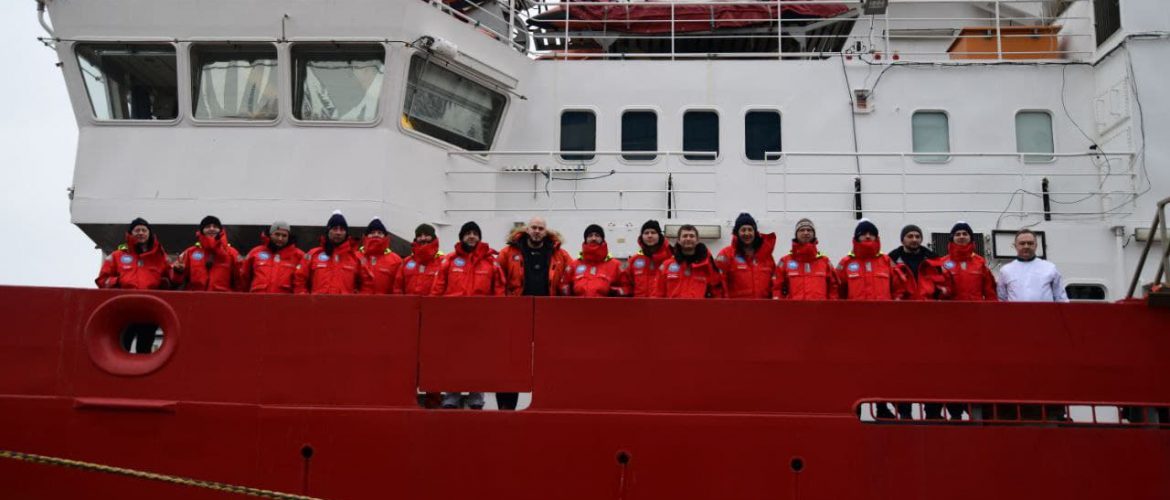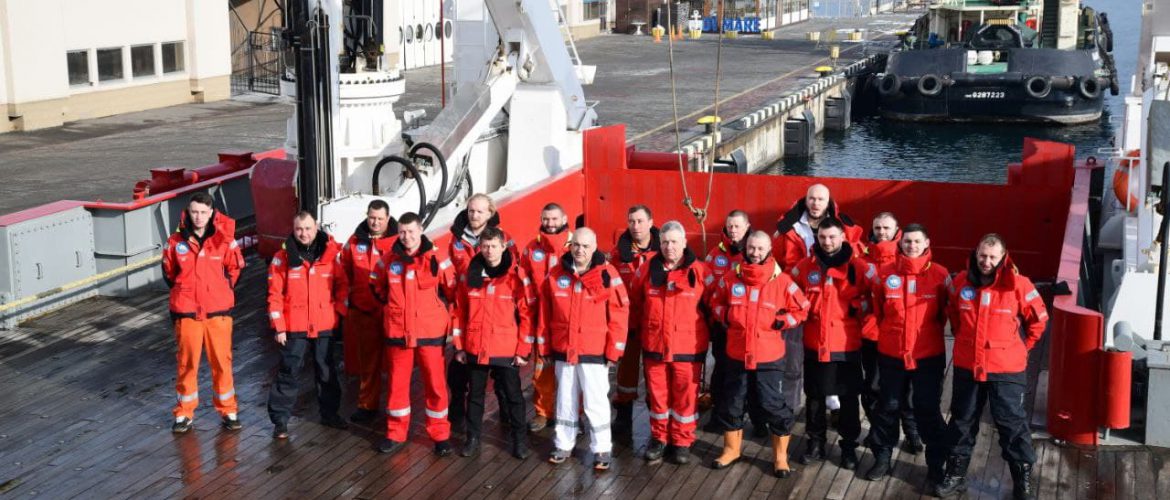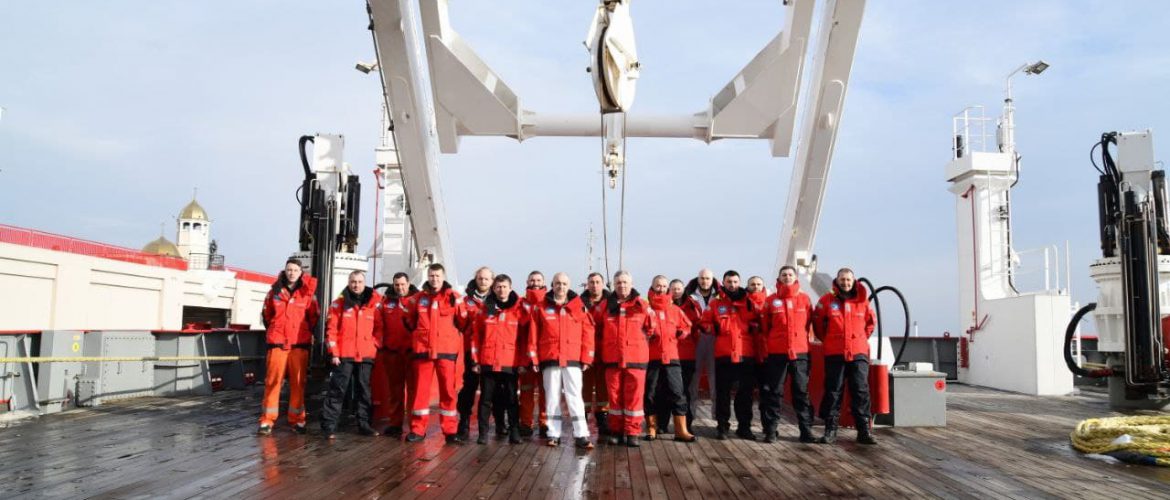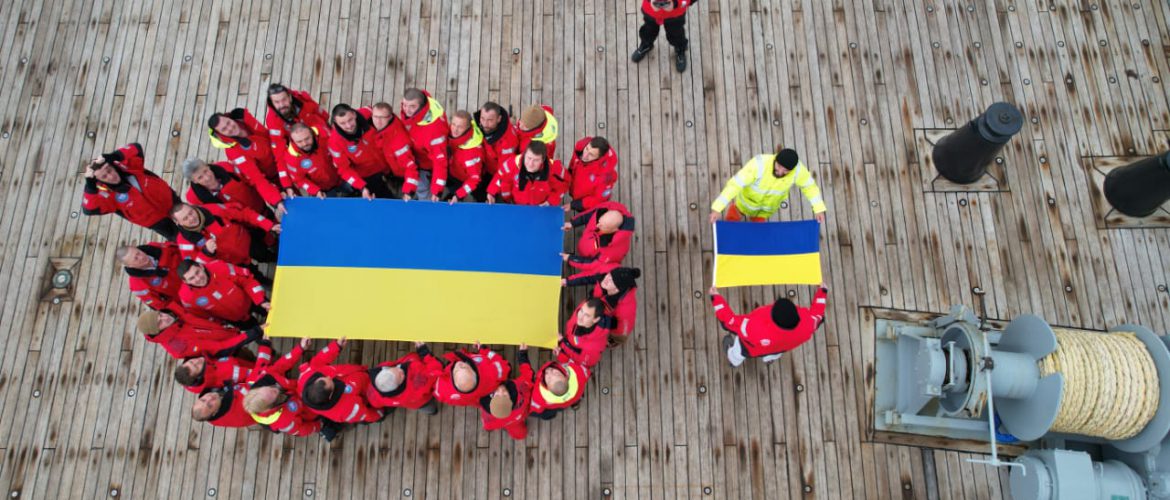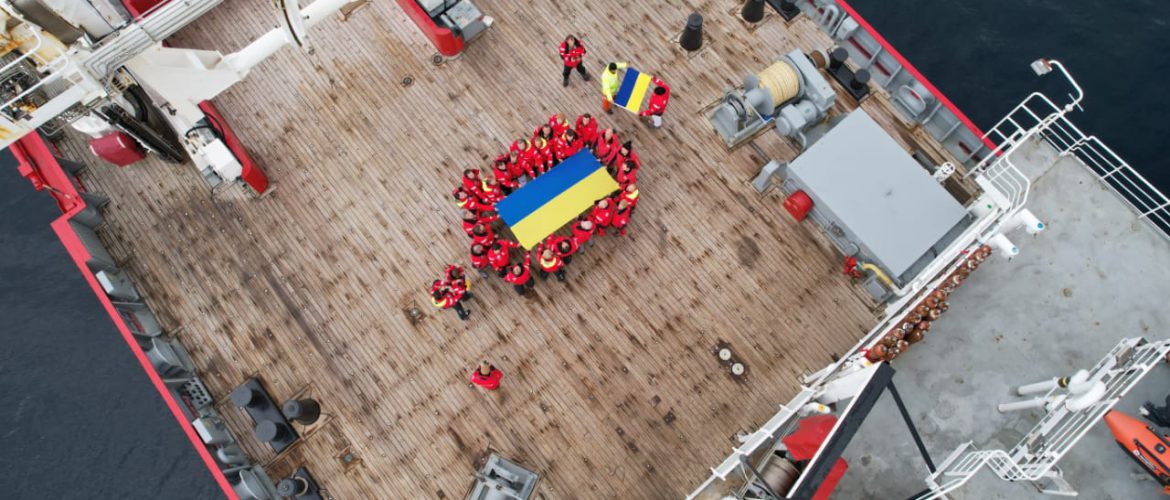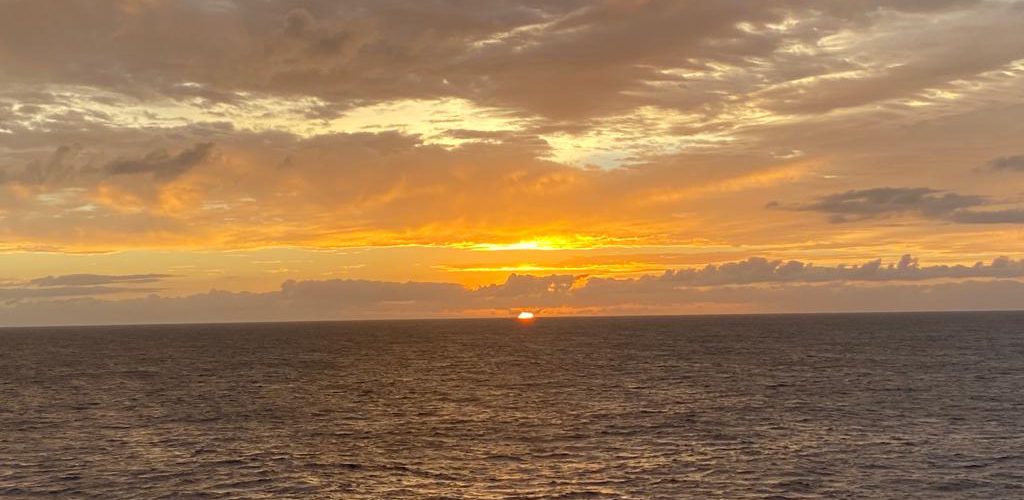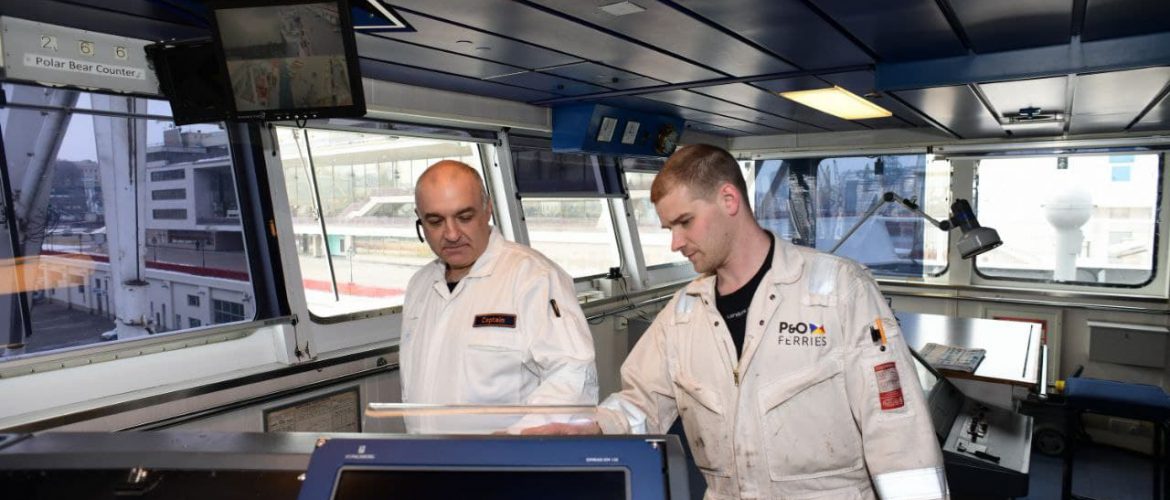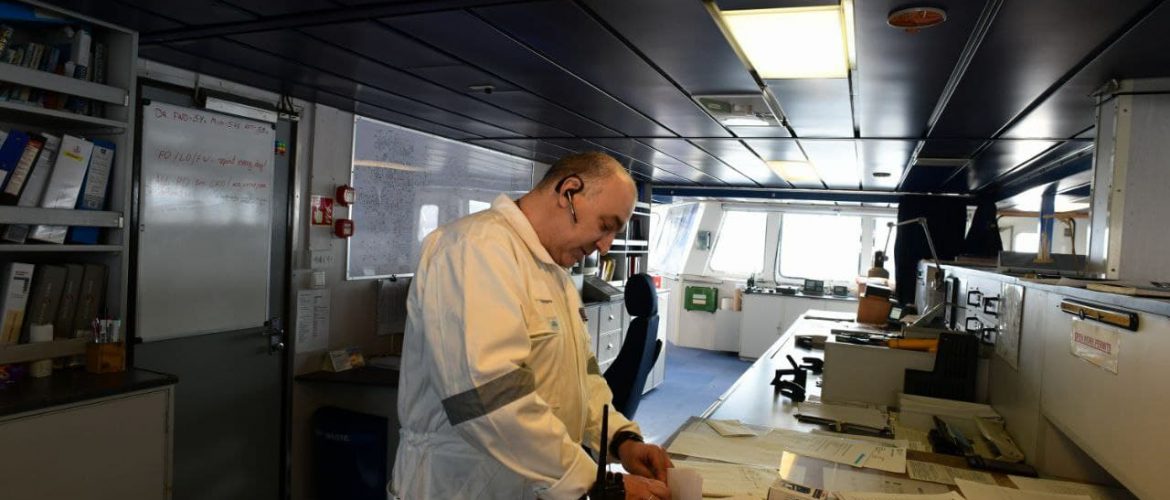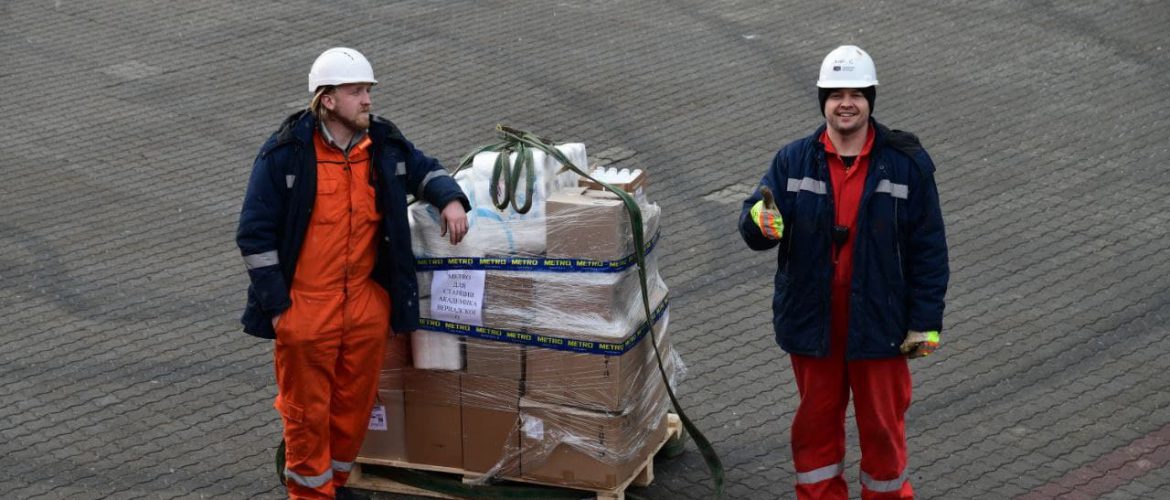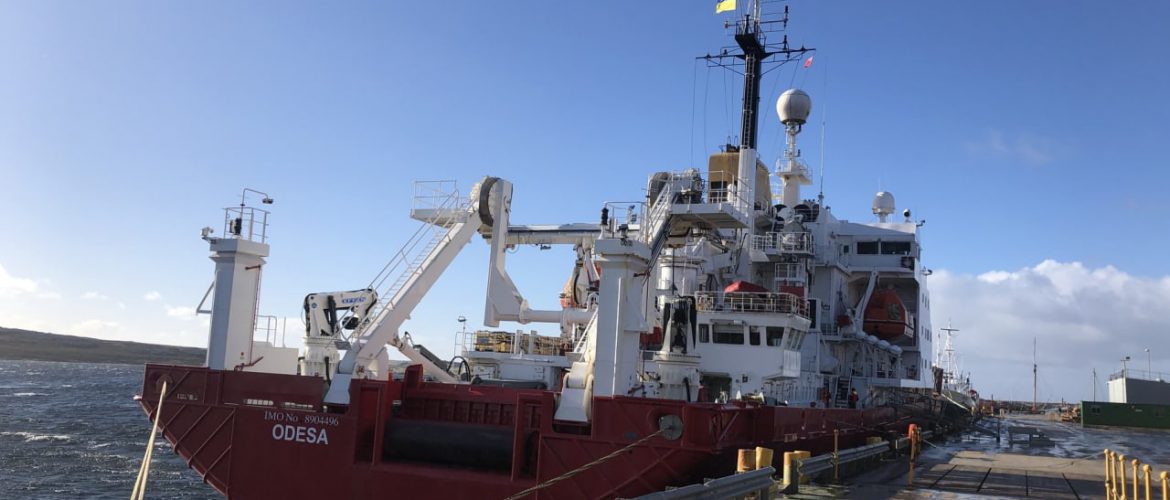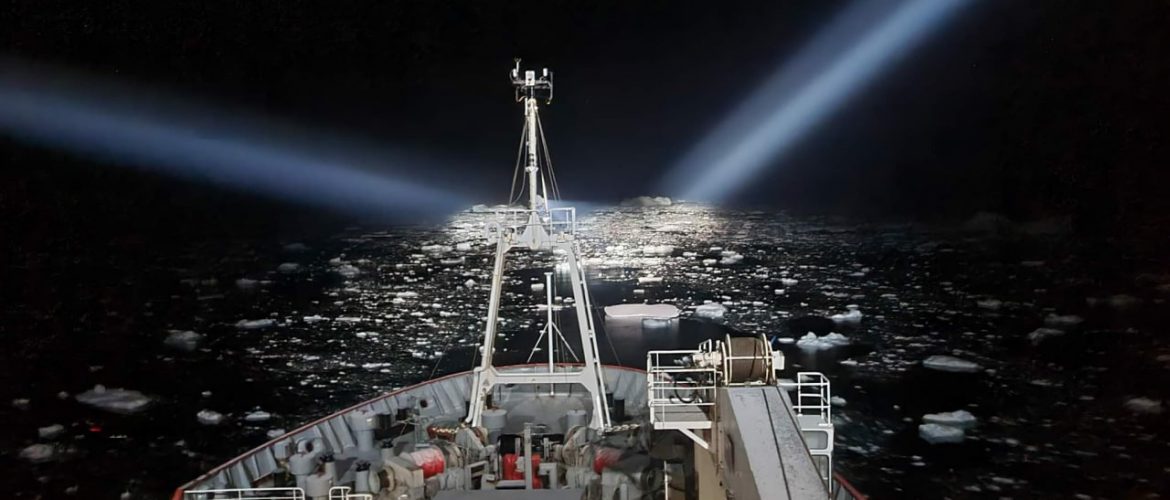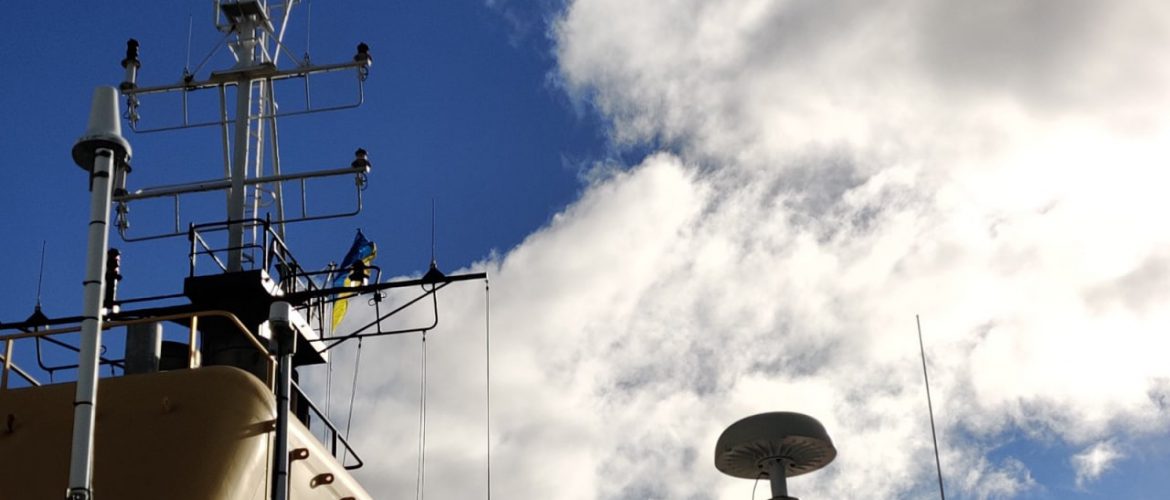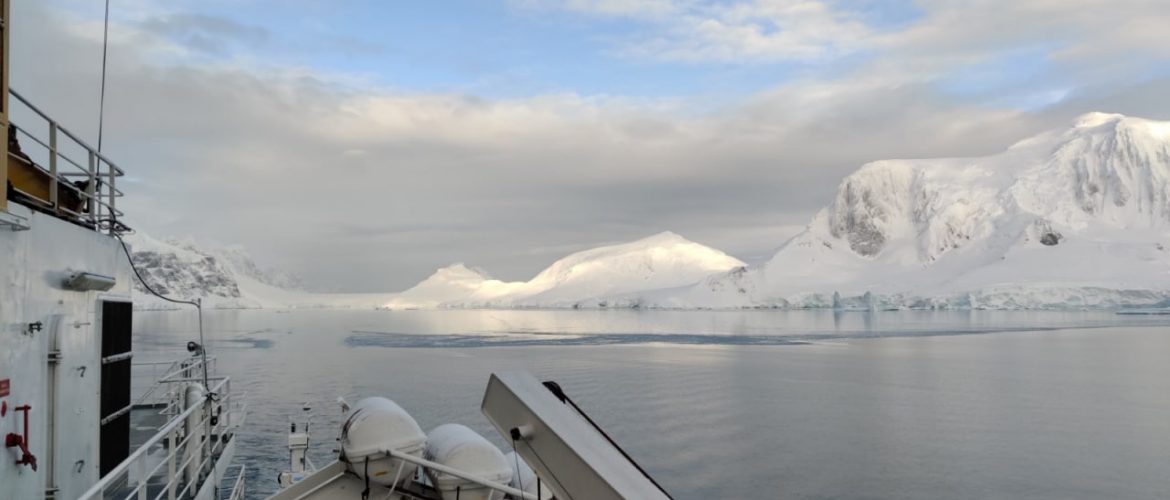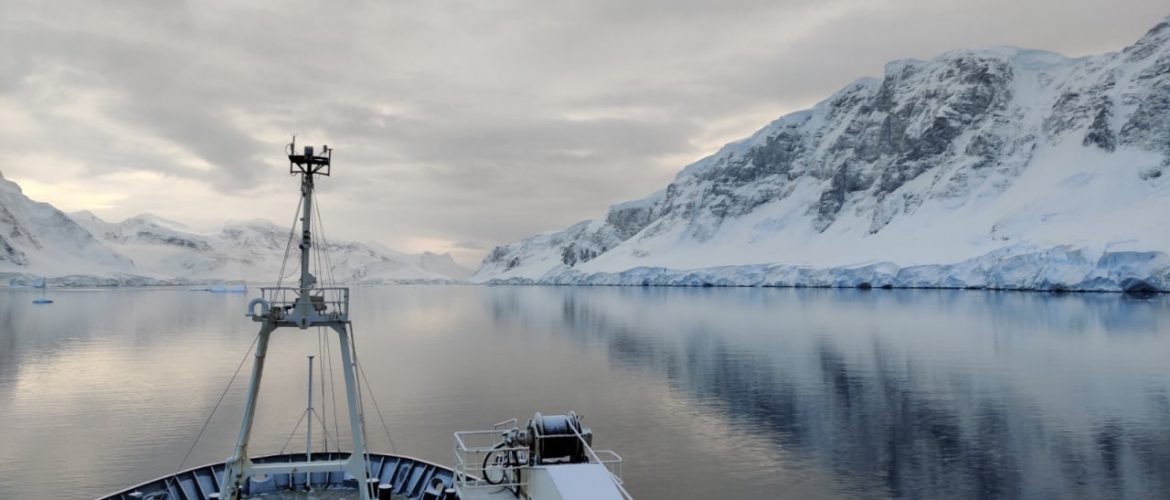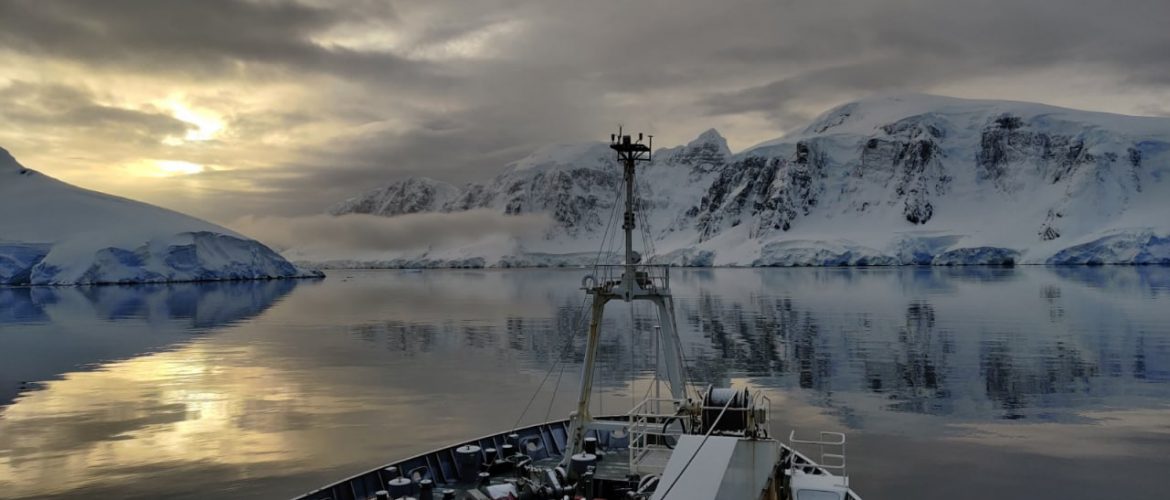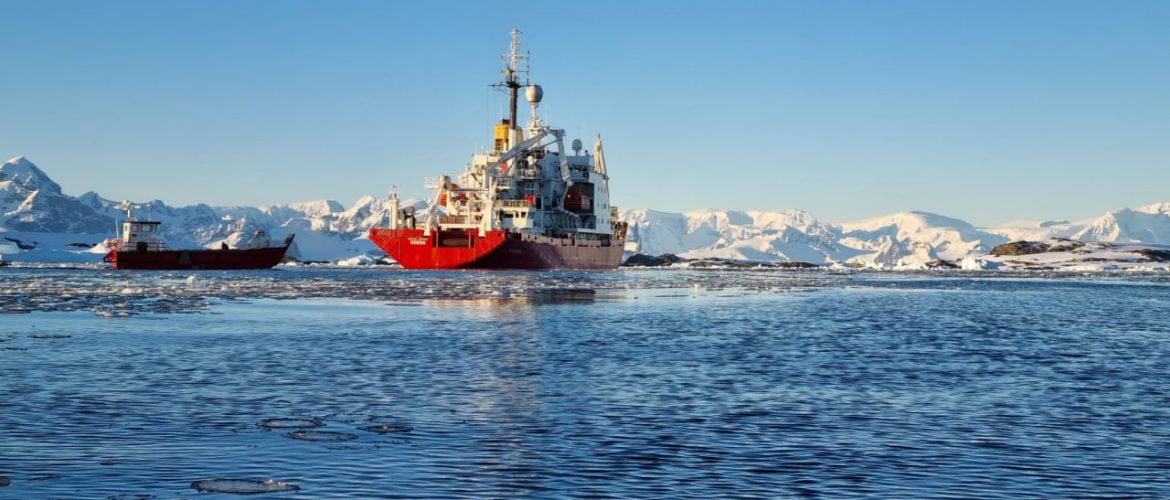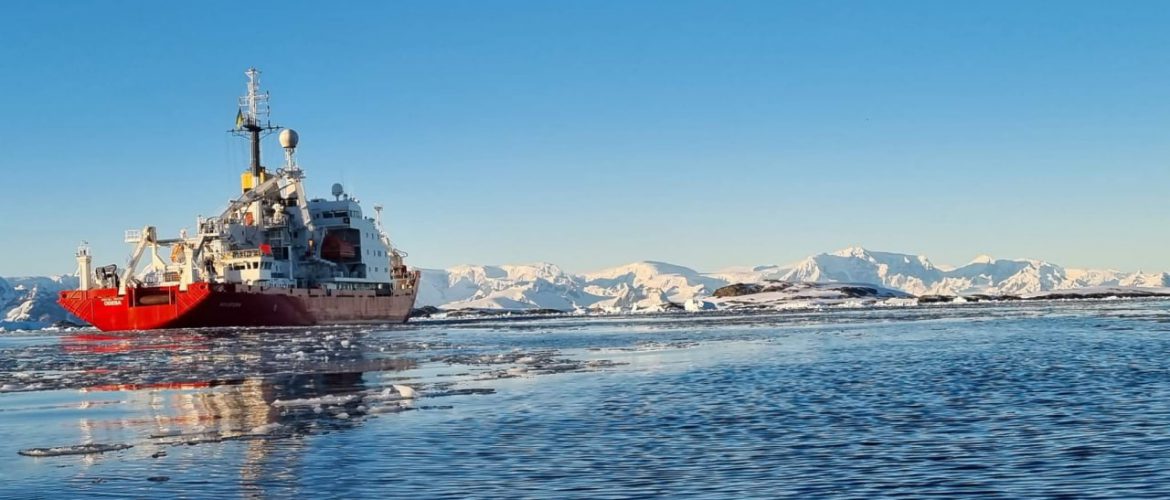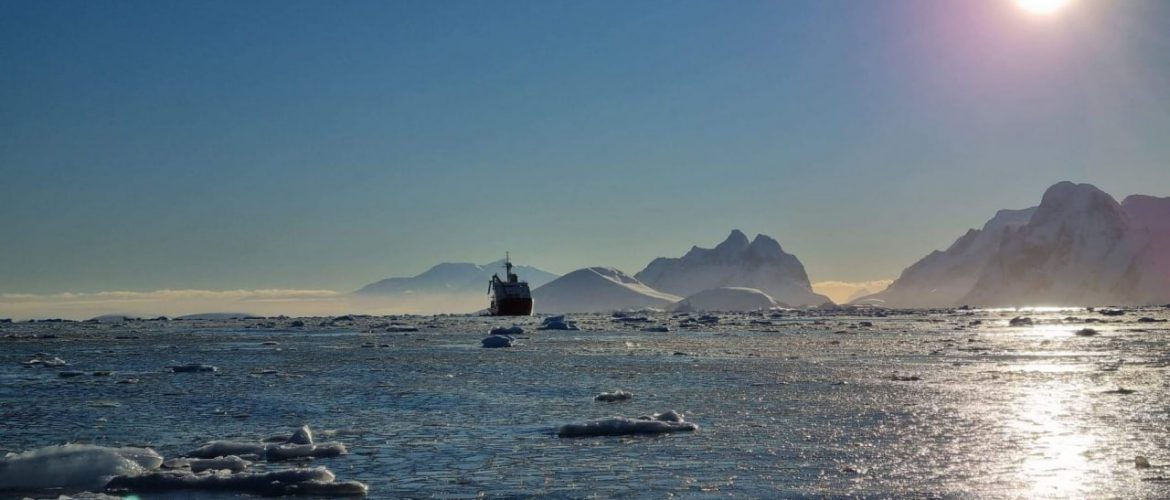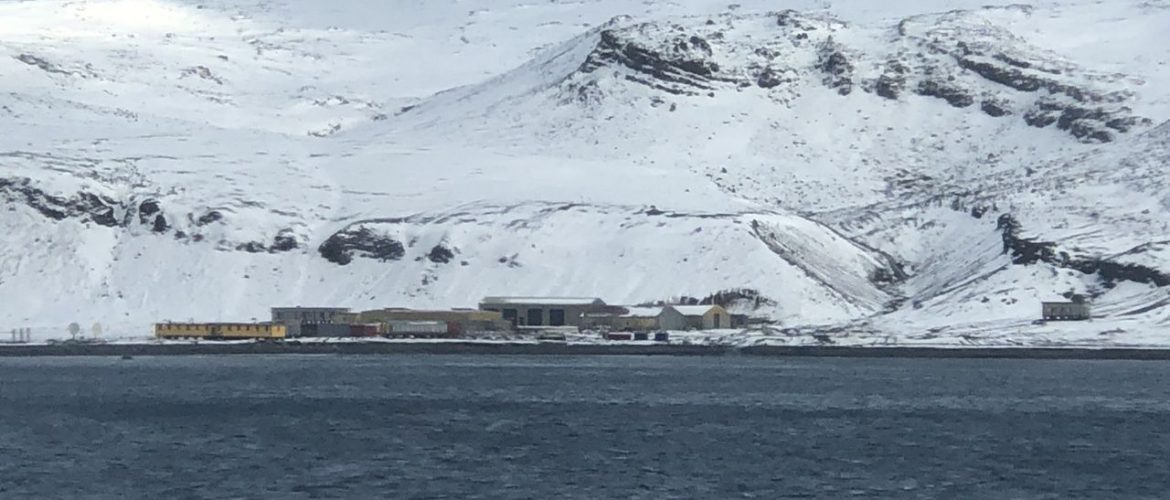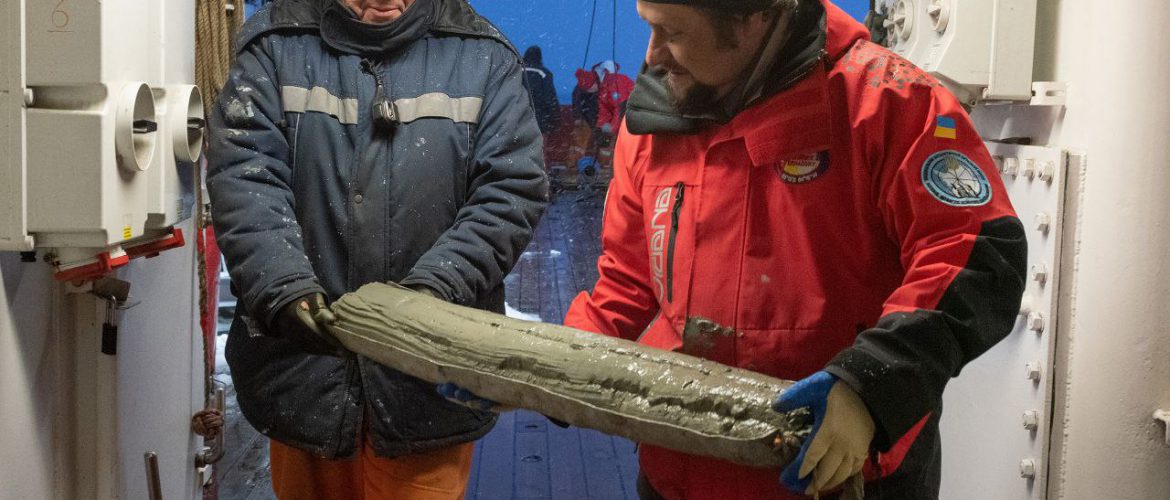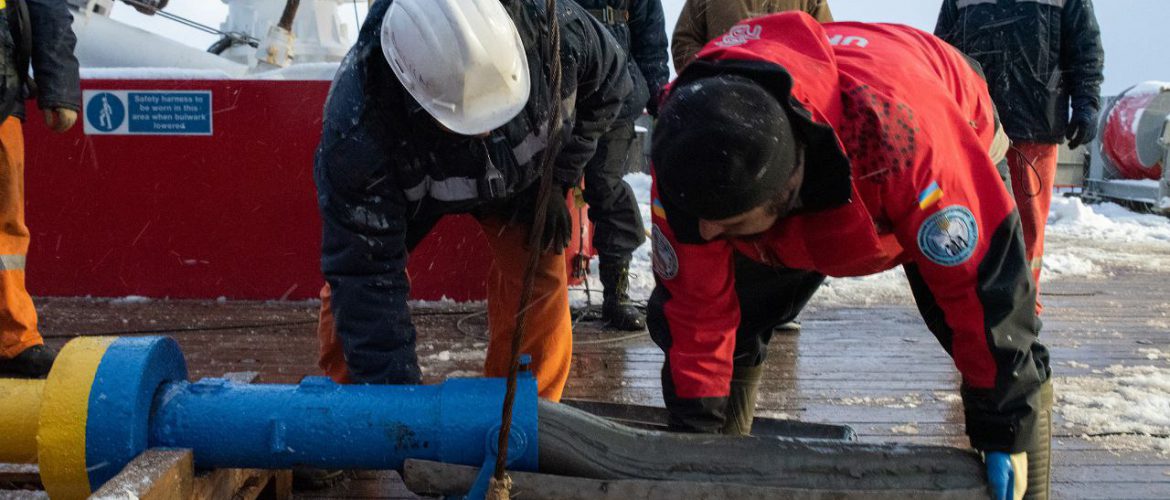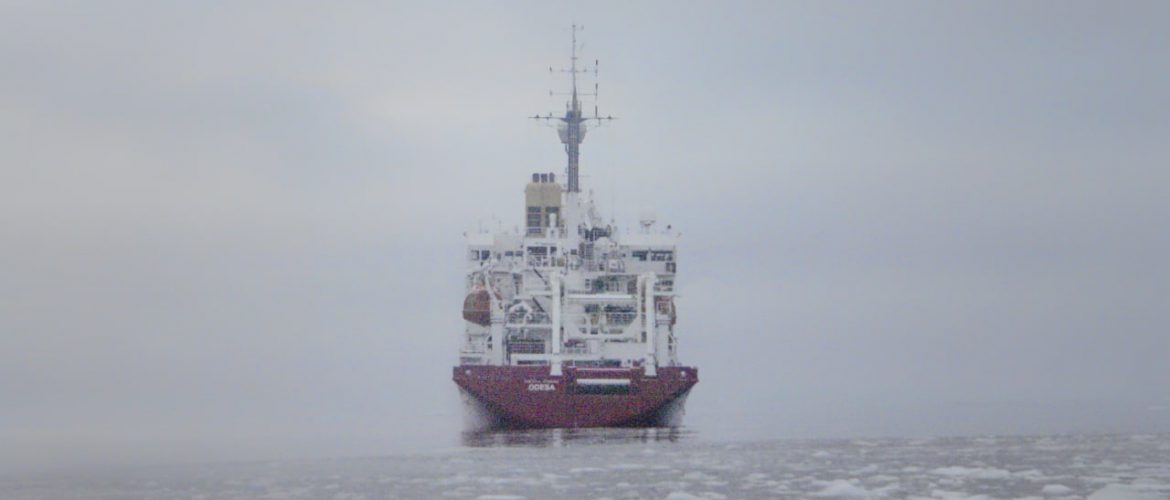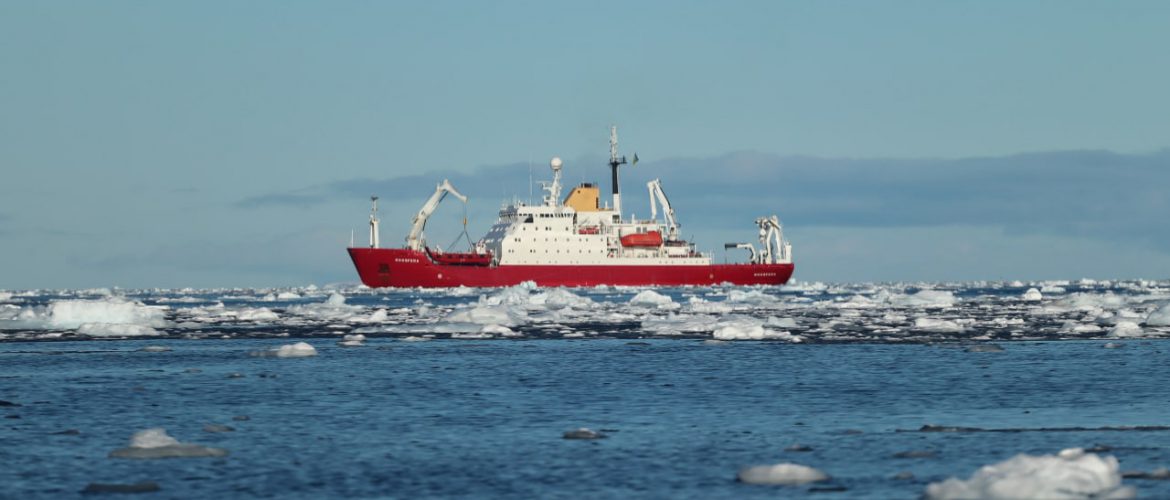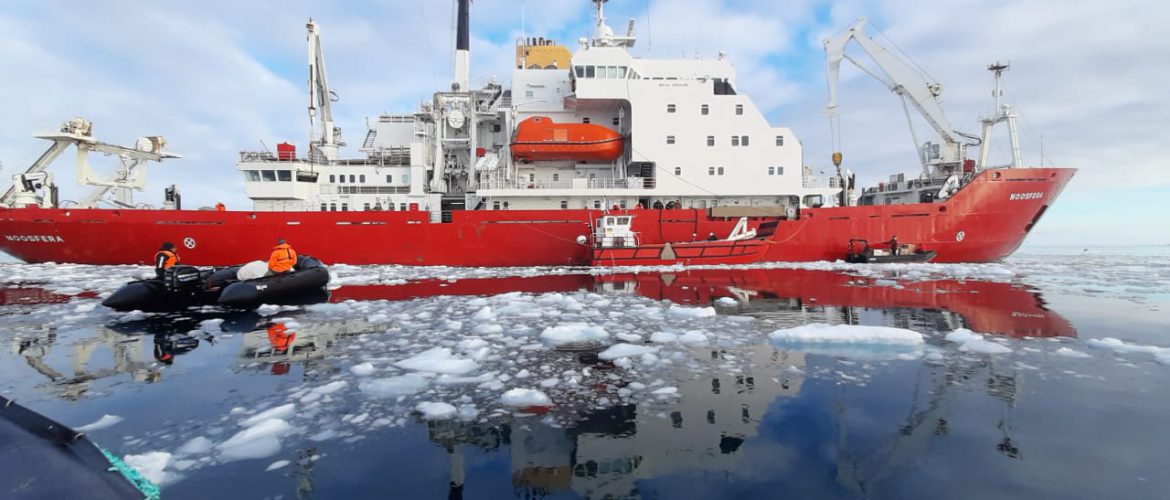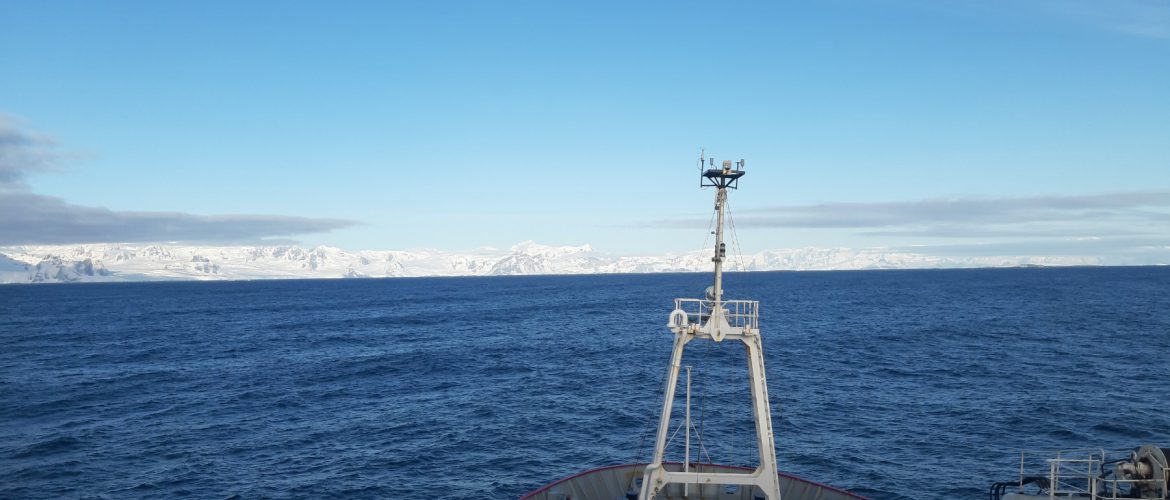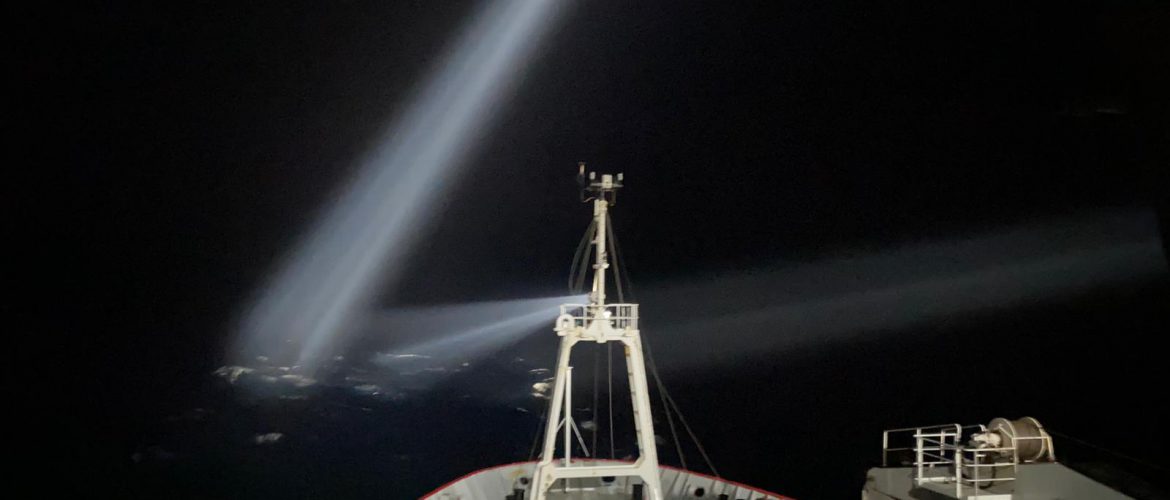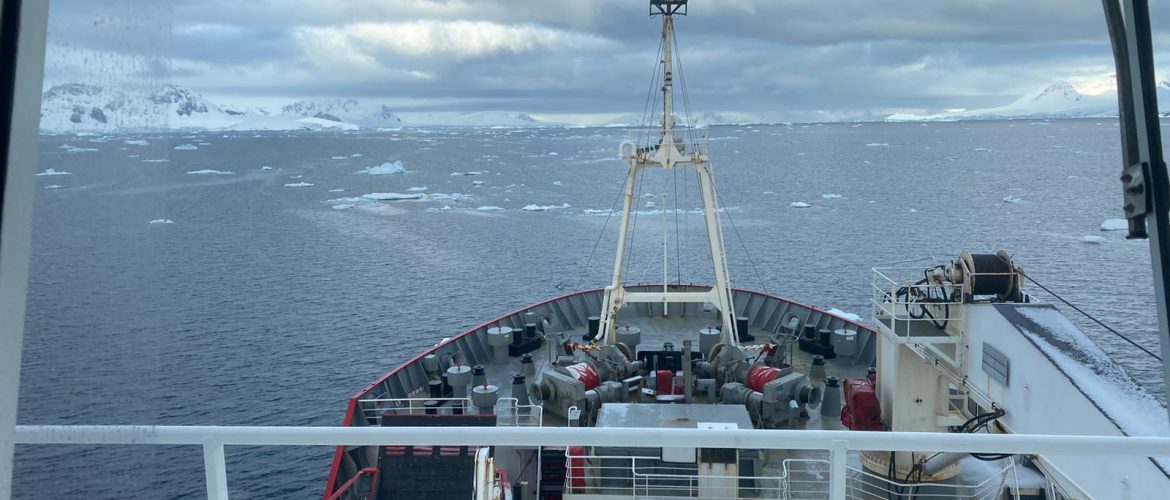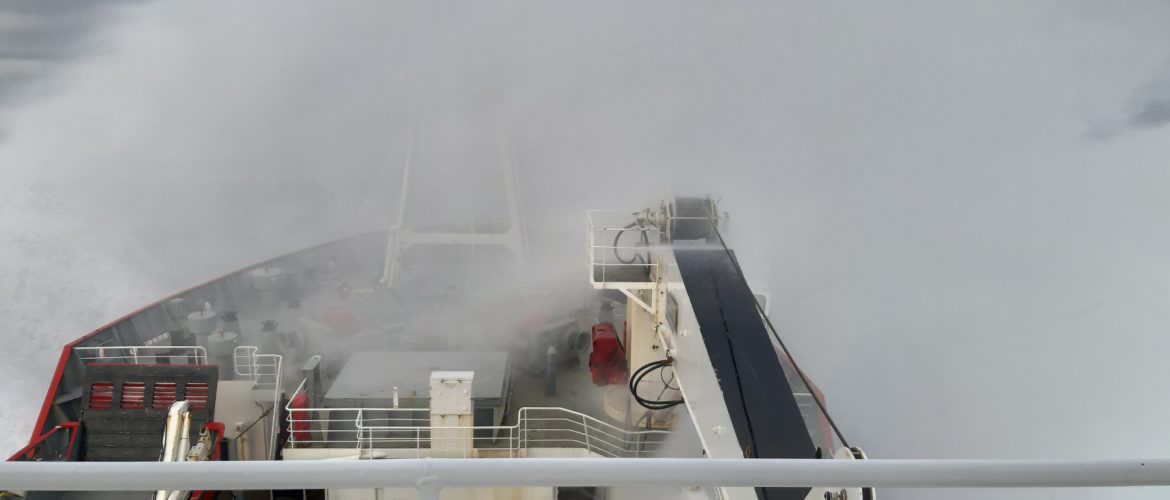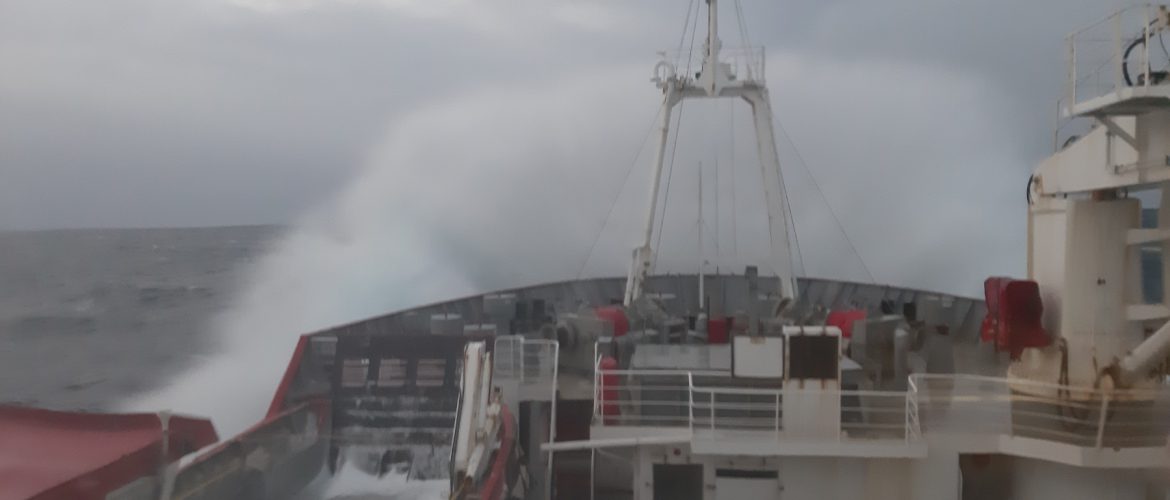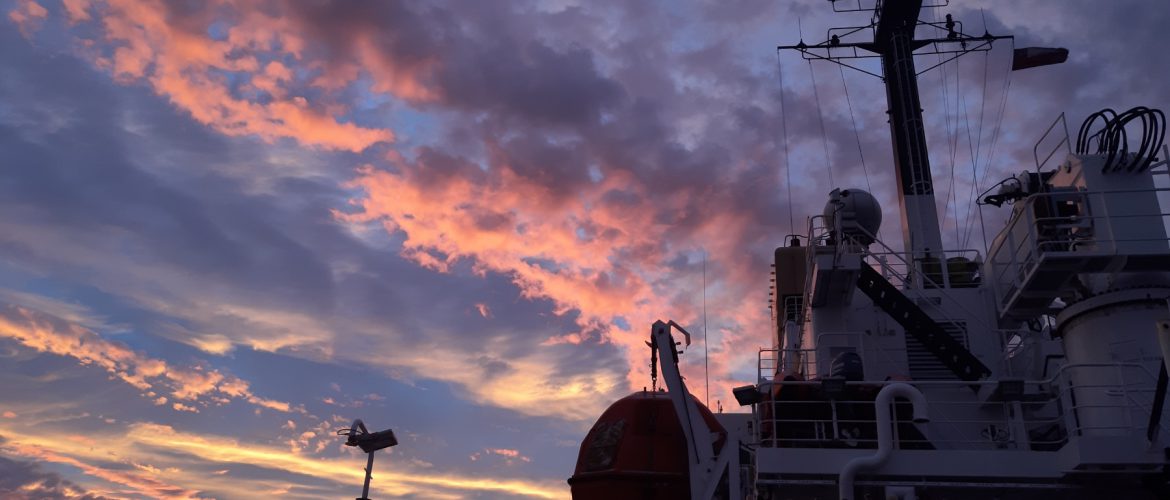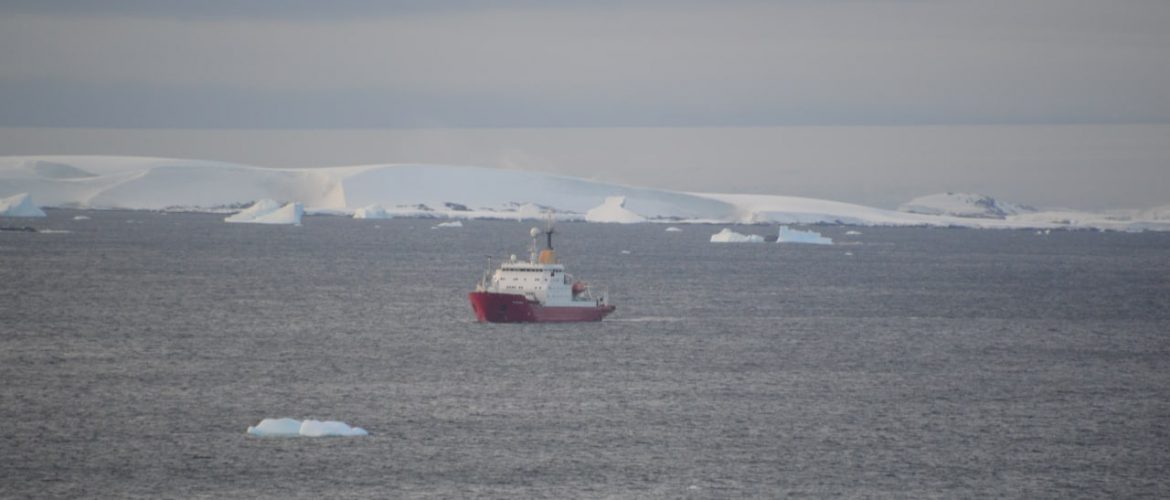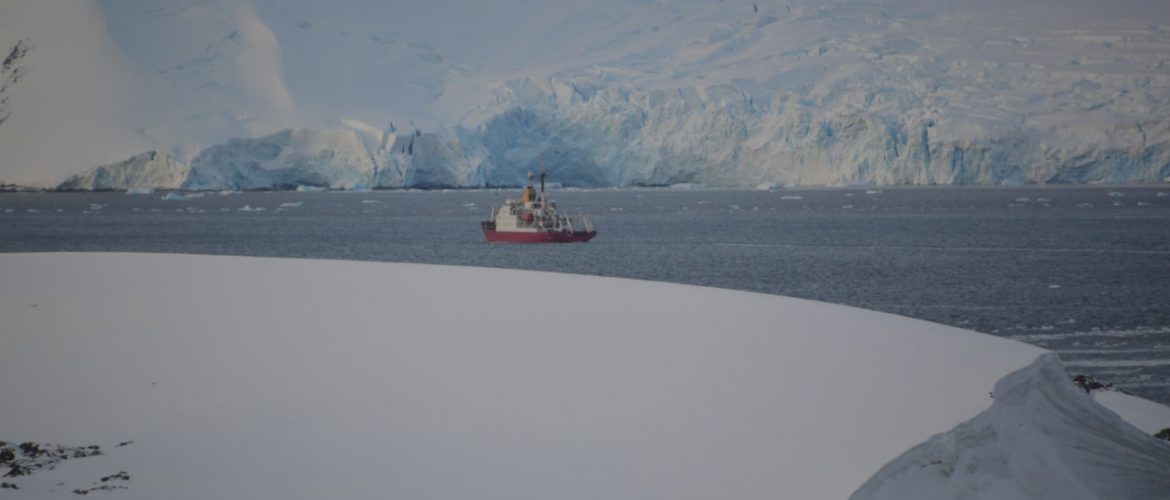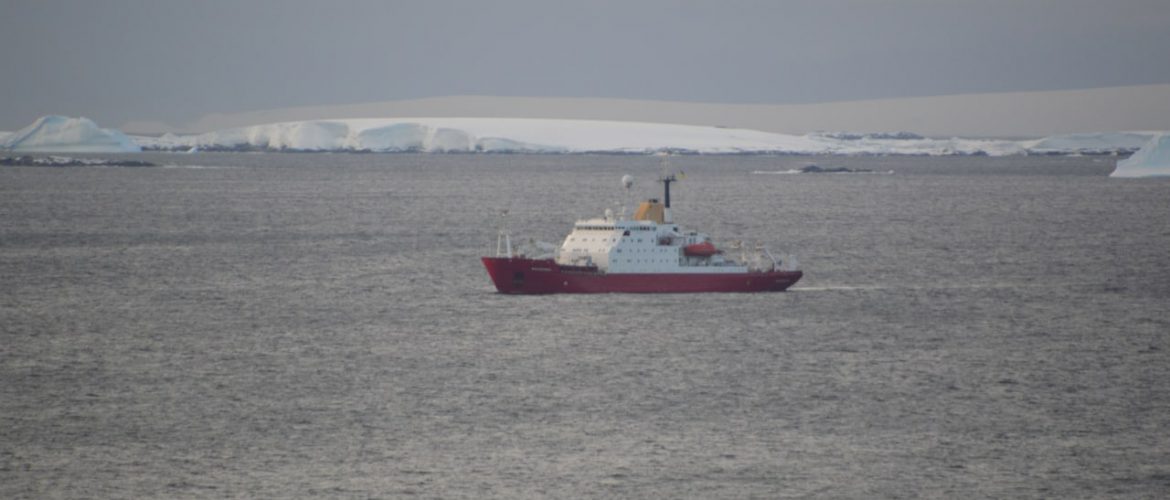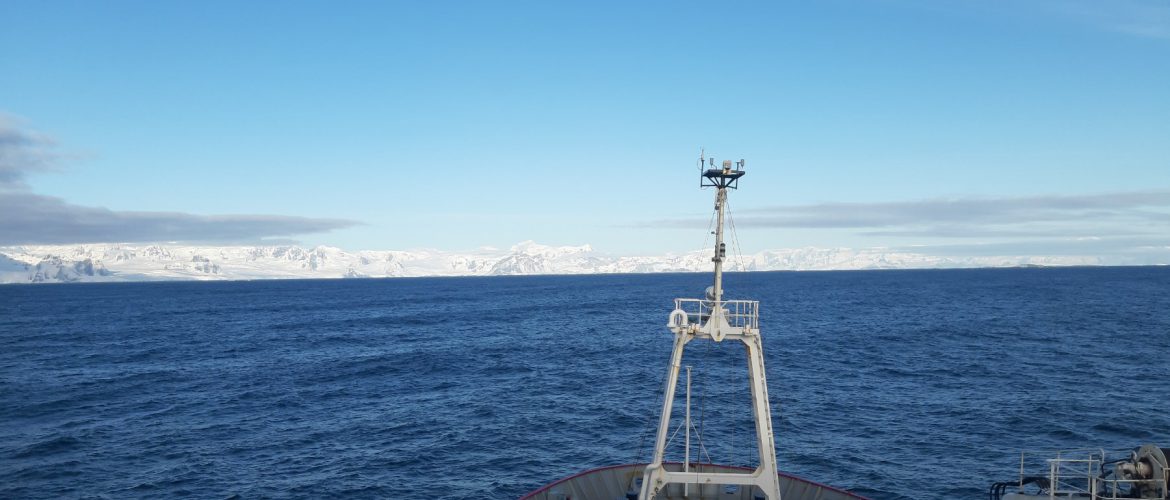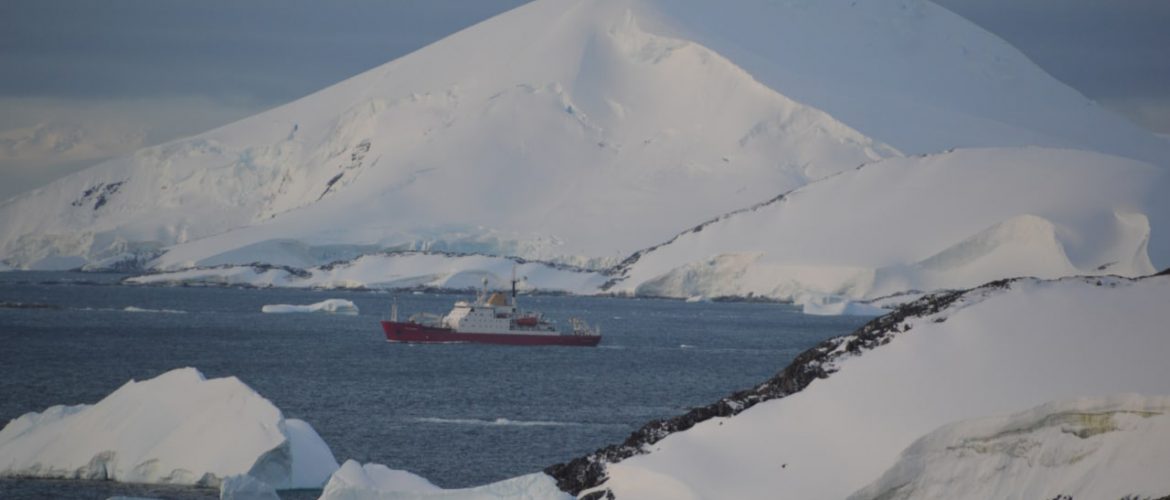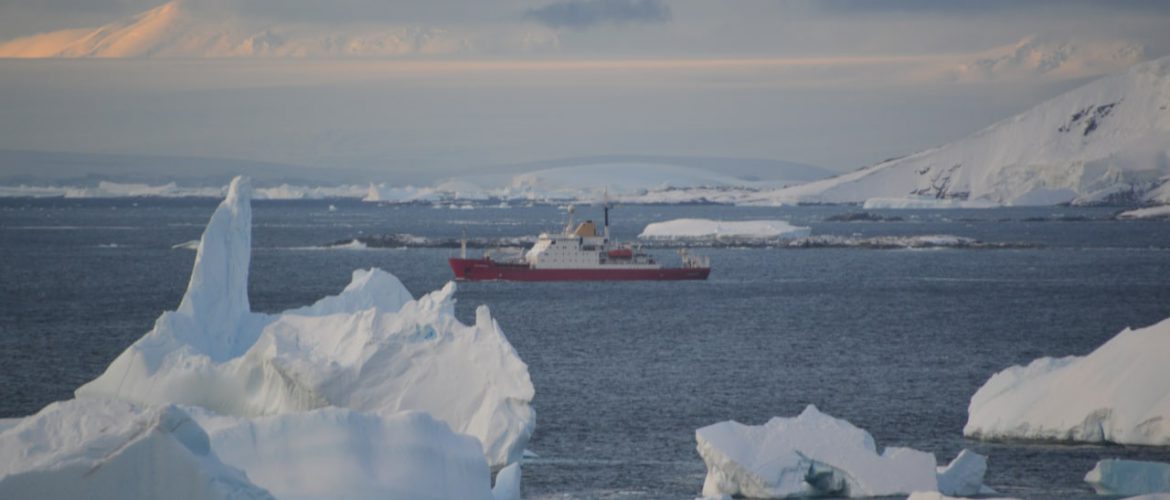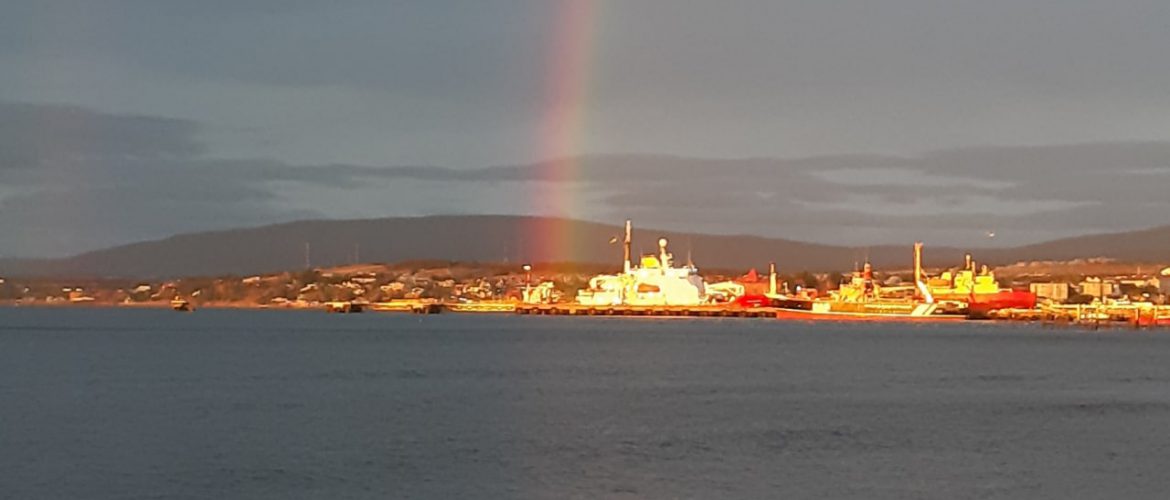Ice class r/v “Noosfera”
On the eve of the 30th anniversary of Independence – August 19, 2021 – Ukraine acquired the former flagship of Britain’s Royal Scientific Navy – RRS James Clark Ross
Before that, for almost 20 years, our country did not have a scientific vessel for polar research: the last independent voyage of Ukraine in the Southern Ocean took place in 2001-2002. Now, using its own research icebreaker, Ukraine can:
● return to exploration of the World Ocean;
● to improve logistics and strengthen the capacity of expeditions to the Ukrainian Antarctic Akademik Vernadsky station;
● create scientific and logistics consortia with other countries;
● conduct research not only in Antarctica, but also in the Arctic and other regions of the planet.
On August 30, 2021, the blue-and-yellow flag was raised on the ship, and on October 5, she arrived from the city of Frederikshavn (Denmark) to Odessa.
On October 29, 2021, a ceremonial renaming of the vessel took place. In Ukraine, the icebreaker was named “Noosfera” – it is symbolic, since this term comes from the works of Volodymyr Vernadsky, after whom the Ukrainian Antarctic station is named. Thus, the names of the icebreaker and the station logically complement each other.
Now Noosfera is the flagship of the Ukrainian research fleet.
The length of the vessel is a little more than 99 meters, width – almost 19 meters, gross tonnage – 5732 tons. It is equipped with a suite of laboratories and winch systems that allows to study the seabed at a depth of 8 km. In addition to a crew of 27 people, the icebreaker can accommodate up to 50 scientists. The vessel’s autonomy of up to 2 months allows conducting research in any point of the World Ocean.
Historical background
The RRS James Clark Ross was built by Swan Hunter Shipbuilders in the UK and launched by HM The Queen in 1990. Named the RRS (Royal Research Ship) James Clark Ross in honor of the legendary British naval officer and polar explorer.
In 1996, when the United Kingdom handed over its Faraday station in Antarctica to Ukraine (now Akademik Vernadsky), it was this icebreaker that delivered the first Ukrainian Antarctic expedition to the icy continent.
For the past 30 years, the icebreaker has served as a global science platform for biological, oceanographic and geophysical research. For example, she participated in the first international study of krill recourse assessment in the Atlantic part of the Southern Ocean, and the data obtained are still used today.
The fourth Antarctic season, which lasted from December 12, 2024, to May 10, 2025, set records for both distance travelled and international cooperation.
During this season, the “Noosphera” has completed five Antarctic voyages, crossing the notoriously rough Drake Passage ten times and covering over 20,000 nautical miles (over 37,000 km), nearly equal to the Earth’s equatorial circumference.
The season’s achievements:
Rotation of the 29th and 30th Ukrainian Antarctic Expeditions and delivery of seasonal teams to Vernadsky;
Joint voyages with Polish, U.S., Spanish, and Czech Antarctic programs, expanding Ukraine’s research capabilities, including delivering additional cargo and specialists;
A series of geological, oceanographic, and meteorological studies. As part of the international OCEAN:ICE project, Ukrainian scientists have deployed six Argo floats in the Southern Ocean and conducted simultaneous atmospheric radiosounding from Vernadsky and “Noosphera”, studying cloud formation, precipitation, ocean, sea ice, and glacier melting.
This fourth season’s program was led by two Ukrainian captains from Odesa: Pavlo Panasiuk, who has commanded “Noosphera” since the first Antarctic mission in 2022, and Andriy Starish, in his first season as captain after proving himself as first officer.
On 10 May 2025, “Noosphera” returned to its temporary home port in Cape Town, South Africa. Due to Russian aggression, the vessel cannot return to its home port in Odesa.
The third Antarctic season lasted from November 17, 2023, to May 8, 2024. It was the longest season in terms of voyage duration and scientific program so far.
The ice-class vessel has completed the following routes:
Cape Town (South Africa) – Antarctica (Polish Arctowski Station and Ukrainian Akademik Vernadsky) – Punta Arenas (Chile), under Captain Oleksandr Hryshko’s leadership;
Punta Arenas – Antarctica (Akademik Vernadsky) – Punta Arenas – Antarctica (Arctowski) – Cape Town, under Captain Pavlo Panasiuk’s leadership.
During the second part, different types of research were conducted en route to and from Vernadsky, including:
Sampling bottom sediments to study Earth’s geological history and climate change impact;
Collecting marine fauna from the Southern Ocean floor (in collaboration with Polish colleagues);
Gathering unique material on the acoustic communication of rare whale species – southern right whales;
Sampling krill and phytoplankton for international studies on the occurrence of silicon in Antarctica;
Collecting comparative samples of isolated freshwater invertebrate populations, vascular plants, and rocks at Deception and Christine Islands, Arthur Harbour.
The expedition was a joint Ukrainian-Polish effort, partially funded by the Polish Antarctic Program.
The second season of Noosfera lasted 4 months and consisted of 2 parts.
In December 2022, the vessel set off from Cape Town to Antarctica, delivering a team of Polish polar explorers to Arctowski station, and a team of Ukrainian technical specialists to Akademik Vernadsky station. Also, cargo was delivered to both bases. Then Noosfera left Antarctica and arrived in Punta Arenas (Chile). The icebreaker overcame this part of the journey under the leadership of Captain Pavlo Panasyuk.
At the end of March, the vessel left for Antarctica again with the 28th Ukrainian Antarctic Expedition on board and the cargo necessary for the wintering of the new team. Having ensured the rotation of annual expeditions at Vernadskyi station and having taken the Polish winterers from Arctowski station, the icebreaker set off for Cape Town. This part of the journey was led by Captain Oleksandr Gryshko.
“Noosphera” arrived in Cape Town on April 29. Its return to Ukraine is not planned until the end of the full-scale war.
On January 28, 2022, the research vessel Noosfera, set off on its first trip from Odesa to Antarctica. The icebreaker’s crew consists of 26 people – both Ukrainian and foreign specialists, who previously worked for the British Antarctic Survey. The crew was led by Captain Pavlo Panasyuk.
Unfortunately, because of the war, it was not possible to do all planned surveys on the first trip on the vessel. Despite the difficulties, polar scientists have managed to conduct the following types of surveys:
- geological (granulometric, mineral, chemical, and microfaunistic composition of the bottom sediments) in the water around the Antarctic peninsula;
- geospatial (fixation of powerful lightings) and radiooceanographic (testing the models of marine waves) not only in the Atlantic sector of Antarctica but also along the whole route of the vessel.
Despite all problems, “Noosfera” has successfully completed the rotation of the Ukrainian polar team at the station “Academic Vernadsky” as well as the rotation of the Polish Antarctic expedition. After this, the vessel went to a long stop in Capetown, Southern African Republic, as far as it could not return to Ukraine because of the war.


